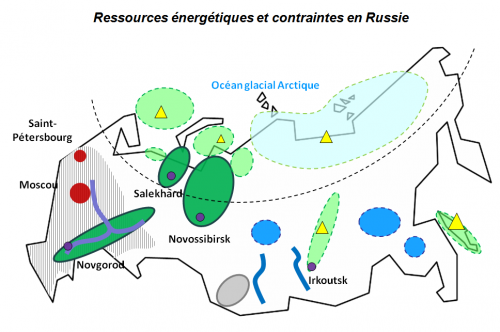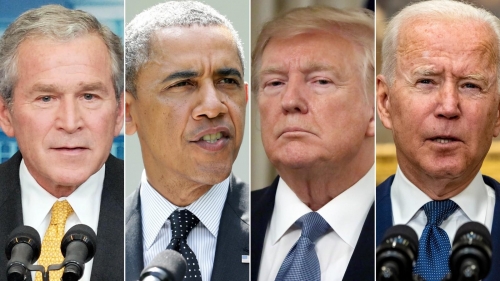mercredi, 06 juillet 2022
Les causes de la guerre en Ukraine remontent à de nombreuses années avant Poutine

Les causes de la guerre en Ukraine remontent à de nombreuses années avant Poutine
par Giacomo Gabellini
Source : DiariodelWeb & https://www.ariannaeditrice.it/articoli/le-cause-della-guerra-in-ucraina-nascono-molti-anni-prima-di-putin
Dans cette interview avec DiariodelWeb.it, Giacomo Gabellini, auteur du livre 1991-2022. Ucraina. Il mondo al bivio (= "1991-2022. Ukraine, le monde à la croisée des chemins"), retrace les origines lointaines dans le temps du conflit.
propos recueillis par Fabrizio Corgnati
Le déclenchement officiel de la guerre en Ukraine remonte au 24 février, avec l'invasion de la Russie. Mais si l'on en est arrivé à cette escalade, c'est en vertu de causes qui s'accumulent depuis de nombreuses décennies, et qu'il faut comprendre en profondeur si l'on veut vraiment saisir les enjeux de ce conflit. Giacomo Gabellini, écrivain et chercheur sur les questions historiques, économiques et géopolitiques, a écrit à ce sujet dans son dernier livre "1991-2022". Ukraine, le monde à la croisée des chemins", publié par Arianna Editore, qu'il présente dans cet entretien avec DiariodelWeb.it.
Giacomo Gabellini, vous remontez loin dans le temps pour trouver les causes du conflit en Ukraine.
Il y a précisément un siècle, en 1922, lorsque Staline a été nommé commissaire des nations de l'Union soviétique. C'est à ce titre qu'il a commencé à concevoir un projet impérial. Il s'est rendu compte que pour maintenir ensemble un État aussi diversifié sur le plan ethnique, linguistique et confessionnel, il était nécessaire de renforcer le pouvoir central.
De quelle manière ?
En empêchant la création de groupes ethniques surpuissants au sein de chaque république fédérée. En flanquant les groupes ethniques majoritaires d'autres groupes tout aussi nombreux. Peut-être lié à la proximité des groupes ethniques dominants dans les républiques voisines.

En d'autres termes, empêcher la consolidation d'identités ethniques distinctes dans des nations individuelles ayant un sentiment d'appartenance.
Exactement. Soit par le déplacement de populations entières, soit par la modification continuelle des frontières. Ainsi, des groupes ethniques qui n'avaient pas grand-chose en commun se sont retrouvés à vivre avec un sentiment de méfiance mutuelle, dû à l'extranéité.
Cela ressemble un peu à la conception de la société mondialiste...
Oui, le plan était basé sur une idée similaire. Et l'Ukraine est l'un des exemples les plus flagrants, car les populations russes étaient intégrées dans la partie sud et est du pays. Plus tard, en 1954, Khrouchtchev a également annexé la Crimée, habitée principalement par des Russes, à l'État ukrainien.
En avançant de quelques décennies, Kiev s'est donc retrouvé à contrôler des morceaux de territoire qui n'avaient rien à voir avec la culture, la langue ou le sentiment d'appartenance ukrainiens.
L'Ukraine est un État très composite. Elle compte plusieurs groupes ethniques en son sein, dont, par exemple, les Polonais et les Hongrois, et ceux-ci ont rarement vécu en harmonie les uns avec les autres. Lorsque la situation économique se dégrade, ces vieilles rivalités ont tendance à refaire surface avec vigueur.

Quelqu'un a-t-il délibérément attisé les flammes de ces rivalités pour faire monter les tensions ?
Sans aucun doute. Déjà au lendemain de l'effondrement de l'URSS et de l'indépendance de l'Ukraine, un essai de Soljénitsyne soulignait comment les élites ukrainiennes tentaient progressivement de marginaliser la langue russe. Ce qui n'était pas une mince affaire, pour un pays qui comptait des millions et des millions de citoyens ne parlant que cette langue. Zelensky lui-même était russophone et a dû apprendre l'ukrainien. À partir de 2008, même l'ukrainien a été imposé par la loi comme seule langue officielle: un peu comme si dans notre Tyrol du Sud on décidait de n'imposer que l'italien.
Ces dernières années, cette épuration ethnique, que je ne sais comment définir autrement, a pris des contours encore plus violents.
Sans l'ombre d'un doute. Au fur et à mesure que le conflit s'aggrave, on assiste à un durcissement des mesures contre ces minorités. La fermeture des écoles, l'unification des chaînes de télévision par la loi martiale, l'érection de statues de personnages controversés de la Seconde Guerre mondiale, l'interdiction de dizaines de partis accusés de collaborer avec la Russie, y compris le principal bloc d'opposition, le Bloc pour la vie. Toutes ces mesures n'ont pas aidé à la coexistence, mais ont exacerbé les différences.
Mais les Ukrainiens ont-ils adopté cette stratégie de leur propre gré ou sous une certaine pression internationale ?
Une partie de la population ukrainienne, notamment dans la région de Lviv, est fortement nationaliste. Et ils s'inspirent des idées de personnes comme Stepan Bandera et Jaroslav Stec'ko, qui avaient collaboré avec les forces d'occupation allemandes dans les années 1940 et étaient responsables du massacre de dizaines de milliers de personnes. Lorsque l'Union soviétique est parvenue à vaincre les nazis, l'agence américaine OSS, dont les résidus ont donné naissance plus tard à la CIA, a pris soin d'offrir à ces personnages l'hospitalité aux États-Unis et en Allemagne de l'Ouest. Lorsque l'URSS s'est effondrée, la femme de Stec'ko est retournée en Ukraine et a fondé le parti nationaliste ukrainien, qui défendait les mêmes positions que son mari.
Vous êtes en train de me dire qu'il y a eu une aide active des États-Unis ?
Oui. Ce qui n'a pas seulement impliqué l'Ukraine mais aussi, comme on le sait, de nombreux hiérarques nazis et anticommunistes, recyclés par la suite en conseillers de dictatures militaires sud-américaines pro-US.
Pourquoi, dans le récit le plus répandu, cette responsabilité américaine disparaît-elle et seule celle de Poutine subsiste ?
Parce que les États alliés européens n'ont que formellement gagné la Seconde Guerre mondiale. Pour l'essentiel, ils étaient occupés par les États-Unis, politiquement, militairement et surtout en termes de renseignements. À partir de 1945, il y a eu un alignement plus ou moins rigide sur les États-Unis, en fonction des pays, qui se sont dégradés au niveau de colonies.
En d'autres termes, nous portons la version officielle américaine parce que nous sommes des succubes des États-Unis.
Oui, nous nous plions à leurs diktats et suivons leurs orientations stratégiques. Même lorsqu'ils entrent en conflit avec nos intérêts.
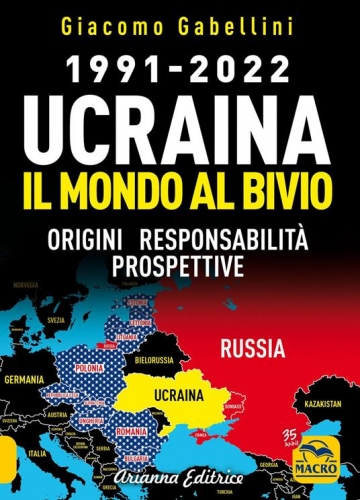
Comme c'est le cas avec cette guerre, pour laquelle on ne voit pas bien ce que nous avons à gagner.
Nous avons tout à perdre. En particulier, les économies manufacturières comme l'Allemagne et l'Italie ont besoin de matières premières bon marché pour maintenir la compétitivité de leurs produits. Ce que la Russie a garanti jusqu'à présent, notamment les hydrocarbures, auxquels nous devrons désormais renoncer. Dans le meilleur des cas, ces approvisionnements seront remplacés par du gaz de schiste américain, qui coûte beaucoup plus cher et pèsera sur le prix final des produits européens. Cela entraînera une perte de compétitivité et donc d'emplois.
Quel est le scénario le plus probable à ce stade : une escalade vers une guerre mondiale ou un atterrissage en douceur, avec un armistice ?
Arriver à un armistice aussi équitable que possible est certainement dans l'intérêt de l'Europe occidentale. Pas de ceux de l'Est, qui aspirent exactement au contraire: l'intention des États baltes et de la Pologne est d'infliger un coup éventuellement mortel à la Russie, de l'affaiblir et de la mettre en position de ne pas nuire.
Ce qui a très peu de chances d'arriver.
De mon point de vue, c'est absolument impossible. Quant aux États-Unis, ils n'ont aucun intérêt dans une solution pacifique. Leur perspective est de combattre la Russie jusqu'au dernier Ukrainien, de creuser un fossé aussi infranchissable que possible entre elle et l'Europe occidentale. Dans la vision géopolitique anglo-américaine, l'objectif a toujours été de prévenir et de consolider les synergies politico-économiques de la puissance démographique et de la richesse matérielle russes avec la technologie occidentale.
Ce faisant, cependant, ils envoient la Russie dans les bras de la Chine. Ne s'agit-il pas d'une erreur stratégique ?
En effet, il existe des observateurs, tels que Henry Kissinger, qui ne peuvent certainement pas être soupçonnés d'être poutinistes...
...ou même pacifistes.
Exactement. Kissinger, disais-je, a répété ad nauseam que poursuivre dans cette voie ne fait que lier Moscou et Pékin dans une alliance stratégique structurelle, capable de créer un bloc économique gigantesque. Autour duquel des dizaines de pays de ce que l'on appelle le sud du monde ont tendance à graviter : l'Inde, le bloc Brics, les économies latino-américaines en plein essor comme le Mexique.
Les États-Unis continuent de considérer le monde comme bipolaire, dans la perspective de l'ancienne guerre froide, mais ne se rendent pas compte qu'il est aujourd'hui devenu multipolaire.
Le problème est justement là. Les apparatchiks américains ont grandi avec la logique de la guerre froide et ne peuvent concevoir autre chose. La Russie, à leurs yeux, ne peut en aucun cas être un allié potentiel. Elle reste un ennemi à vaincre, après quoi, à mon avis, leur dessein sera de passer à la Chine. Mais la position de Kissinger montre que même les élites américaines sont plutôt divisées sur l'approche à adopter.
19:31 Publié dans Actualité, Affaires européennes, Entretiens, Géopolitique | Lien permanent | Commentaires (0) | Tags : entretien, ukraine, europe, affaires européennes, russie, politique internationale, géopolitique |  |
|  del.icio.us |
del.icio.us |  |
|  Digg |
Digg | ![]() Facebook
Facebook
mardi, 05 juillet 2022
L'OTAN et la déstabilisation du monde
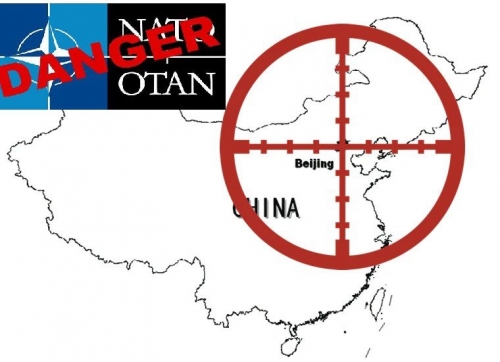
L'OTAN et la déstabilisation du monde
par Daniele Perra
Source : Daniele Perra & https://www.ariannaeditrice.it/articoli/la-nato-e-la-destabilizzazione-mondiale
J'ai jeté un rapide coup d'œil au "nouveau concept stratégique" de l'OTAN issu de la récente réunion de Madrid. On y lit : "La Fédération de Russie a violé les normes et les principes qui ont contribué à un ordre de sécurité européen stable et prévisible [...] Nos concurrents testent notre résilience (un terme très cher aux élites atlantistes) et cherchent à exploiter l'ouverture, l'interconnexion et la numérisation de nos nations. Ils s'ingèrent dans nos processus démocratiques et institutionnels [...] mènent des activités malveillantes dans le cyberespace et l'espace, promeuvent des campagnes de désinformation, instrumentalisent les migrations, manipulent les approvisionnements énergétiques et emploient la coercition économique. Ces acteurs sont également à l'avant-garde d'un effort délibéré pour saper les normes et les institutions multilatérales et promouvoir des modèles autoritaires de gouvernance".
Procédons dans l'ordre. Selon l'OTAN, la Russie a violé les normes et les principes qui contribuent à un ordre de sécurité européen. À cet égard, en 2007, Vladimir Poutine a déclaré : "Je pense qu'il est clair que l'expansion de l'OTAN n'a aucun rapport avec la modernisation de l'alliance elle-même ou avec les garanties de sécurité en Europe. Au contraire, elle représente une provocation sérieuse qui réduit le niveau de confiance mutuelle. Et nous sommes en droit de demander : contre qui cette expansion est-elle dirigée ? Et qu'est-il advenu des assurances données par nos partenaires occidentaux après la dissolution du Pacte de Varsovie ? Où en sont ces déclarations aujourd'hui ? Personne ne se souvient même d'elles. Mais je permets de rappeler à ce public ce qui a été dit. Je voudrais citer le discours du Secrétaire général de l'OTAN, M. Wörner, prononcé à Bruxelles le 17 mai 1990. Il a déclaré à l'époque : "Le fait que nous soyons prêts à ne pas déployer une armée de l'OTAN en dehors du territoire allemand offre à l'Union soviétique une garantie de sécurité stable. Où sont ces garanties?".
En fait, nous sommes une fois de plus confrontés à deux modèles géopolitiques totalement opposés : l'un (celui que nous pourrions appeler "oriental") qui recherche des espaces de sécurité vitaux ; l'autre (celui qui est "occidental") qui les nie complètement. Le seul but de l'élargissement de l'OTAN relève justement de cette négation. Sans compter que cet élargissement, comme l'avait anticipé à l'époque Brzezinski (qui en était aussi l'architecte), n'est pas sans poser quelques problèmes de cohésion et d'efficacité s'il n'est pas accompagné de la réforme de l'article 5 et de la suppression du droit de veto des Etats membres (souvent peu respectueux des obligations de l'alliance). Brzezinski lui-même, paradoxalement, était convaincu que la dissuasion militaire devait s'accompagner de la poursuite du dialogue. Dans un discours au Wilson Center en 2014, par exemple, il a affirmé qu'il était nécessaire de coucher sur le papier le fait que l'Ukraine n'aurait jamais dû rejoindre l'OTAN afin d'éviter un conflit qui, malgré les efforts occidentaux pour armer Kiev de systèmes défensifs et pour miner l'économie de Moscou, aurait pu accorder à la Russie des avantages territoriaux évidents.
Continuons. Le document de l'OTAN stipule que les ennemis s'ingèrent dans les processus institutionnels et démocratiques des États membres. Venant d'une organisation qui fonde son existence sur la souveraineté limitée de ses membres, à l'exception d'un seul, cela semble plutôt relever de la farce (il suffit de penser à l'ingérence constante de l'Amérique du Nord dans les processus politiques italiens, peut-être même à la "stratégie de la tension", etc.)

Par pitié, j'oublie le "ils encouragent la désinformation" étant donné la propagande tambour battant à laquelle nous sommes constamment soumis sur n'importe quel sujet.
Passons directement au passage où il est dit que les ennemis de l'OTAN "instrumentalisent la migration". Pour être juste, le champion dans ce domaine est la Turquie (membre de l'OTAN et, en nombre, deuxième armée de l'alliance) tout juste sortie d'un accord par lequel la Finlande et la Suède ont littéralement baissé leur pantalon pour rejoindre une alliance qui leur garantira la sécurité d'avoir des missiles russes à leurs frontières.
Les ennemis de l'OTAN utilisent la coercition économique. Cela frise le ridicule. Cuba est sous embargo depuis 60 ans ; l'Iran est soumis à des régimes de sanctions plus ou moins intenses depuis plus de 40 ans ; l'acte de César contre la Syrie fait plus de victimes que la guerre ; l'argent de la banque centrale afghane, transféré par des gouvernements fantoches pro-occidentaux aux États-Unis, a été gelé, empêchant le pays de l'utiliser pour soulager la crise alimentaire ou pour intervenir dans les zones récemment dévastées par le tremblement de terre.
En outre, l'OTAN a pour la première fois déclaré que la Chine représentait un "défi pour la sécurité" en raison de sa coopération stratégique avec Moscou et de son développement technologique.
La réponse chinoise ne s'est pas fait attendre. En effet, le porte-parole du ministère des Affaires étrangères, Zhao Lijian, a déclaré que l'OTAN "doit changer sa mentalité de guerre froide consistant à créer des ennemis imaginaires et à se faire des ennemis". L'OTAN a déjà bouleversé l'Europe. Il ne doit pas essayer de déstabiliser l'Asie et le monde".
20:40 Publié dans Actualité, Affaires européennes, Géopolitique | Lien permanent | Commentaires (0) | Tags : actualité, europe, otan, atlantisme, affaires européennes, politique internationale, géopolitique |  |
|  del.icio.us |
del.icio.us |  |
|  Digg |
Digg | ![]() Facebook
Facebook
Le post-capitalisme arrive

Le post-capitalisme arrive
L'économie du futur devrait avoir trois objectifs principaux
Par Aleksandr Galuška
Source: https://nritalia.org/2022/07/01/il-post-capitalismo-sta-arrivando/
Il me semble que cette façon de parler de l'avenir sur des décennies devrait être permanente. Car c'est de cette manière que nous abordons cet avenir et que nous déterminons ce qu'il sera. Parce qu'il n'y a pas de prédestination dans l'histoire, tout dans l'avenir dépend de nous: comment nous le voyons, comment nous le formulons et comment nous le mettons en œuvre.
Si nous parlons d'économie, alors c'est de l'avenir du post-capitalisme qu'il s'agit. Et le "post-capitalisme" est un mot clé autour duquel, me semble-t-il, il serait utile de développer un débat public, spécialisé, institutionnel.
Il y a trois signes, trois symptômes, à mon avis, qui indiquent que le post-capitalisme est déjà en marche, que les tendances fortes que nous observons ne sont plus le capitalisme mais ce qui vient après.
Tout d'abord, il s'agit des taux négatifs sur le capital qui existent depuis plusieurs décennies. Comment peut-il y avoir des taux négatifs sur le capital dans le capitalisme, sinon de quel type de capitalisme s'agit-il ? En outre, en termes réels, les taux sont négatifs dans presque tous les pays occidentaux, principalement aux États-Unis, en Grande-Bretagne et dans la zone euro, mais dans certains pays, ils sont même nominalement négatifs et l'écart entre le taux d'inflation et le niveau des taux a augmenté jusqu'à plusieurs fois. Ce n'est clairement plus du capitalisme ! C'est le symptôme d'une autre forme (économico-politique), d'une autre économie.
Deuxièmement, c'est le concept de revenu garanti. Il ne peut y avoir de revenu du travail dans le capitalisme sinon c'est autre chose. Mais après tout, ce concept n'est pas seulement discuté sérieusement, on essaie de le mettre en pratique, de nombreux pays mènent déjà des expériences dans ce sens. Sous différentes formes : quelque part, on distribue de l'argent, quelque part, on distribue des certificats de biens et de produits qui permettent d'obtenir gratuitement certains avantages réels. C'est un symptôme de quoi ? C'est un symptôme clair du post-capitalisme.
Et le troisième symptôme, à mon avis, allant même au-delà du post-capitalisme, un symptôme du post-capitalisme, c'est que le monopole de l'État sur la question de la monnaie est confronté depuis longtemps à des défis très sérieux sous la forme des crypto-monnaies qui sont apparues, qui dans un certain nombre de pays sont tellement reconnues qu'on paie même des impôts dessus.
Tous ces symptômes sont des preuves très claires que le post-capitalisme s'installe aujourd'hui, si ce n'est déjà une réalité. Et nous devons formuler cela nous-mêmes, parce que pendant trente ans, nous avons été dans l'économie capitaliste, comme nous avions l'habitude de dire, "aux conditions des secondes", et il est important que cette erreur historique ne se répète pas dans l'économie post-capitaliste. Nous n'avons pas le droit de marcher sur le même râteau historique et de rester "aux conditions des seconds".
Par conséquent, nous devons formuler nous-mêmes notre avenir. Ce faisant, nous devrions nous pencher sur les problèmes historiques non résolus du capitalisme. Tout d'abord, c'est un problème d'inégalité sociale et de propriété. Depuis 250 ans, comme le montre l'analyse, le taux d'accumulation du capital a dépassé le taux de croissance économique. Et l'inégalité sociale et de propriété est un problème que le capitalisme a été incapable de résoudre tout au long de son existence.
À ce problème s'ajoute celui de l'inégalité économique mondiale, lorsque le niveau de développement et de richesse des pays qui constituent le noyau du système capitaliste mondial est beaucoup plus élevé que celui des pays qui font partie de la périphérie ou de la semi-périphérie de ce système. Un indicateur très frappant de ce phénomène est le fait que les pays de la périphérie sont constamment, régulièrement, des exportateurs nets de capitaux. Les pays en développement sont des exportateurs de capitaux vers les pays développés.
Troisièmement, il existe un écart évident entre la taille de l'économie réelle, physique, et le montant de la masse monétaire. Le volume de la dette mondiale représente 3,5 fois le volume de l'économie mondiale. Il s'agit de problèmes accumulés et non résolus. Et, en formulant l'économie du futur, l'économie du post-capitalisme, nous sommes, à mon avis, obligés de donner des réponses à ces questions, d'offrir des solutions à ces problèmes et de ne pas les reproduire à l'avenir.
J'ajouterais à cela un autre problème : le problème de la démographie dans les pays économiquement développés, car les groupes ethniques qui détiennent l'État dans tous les pays développés au cours du dernier demi-siècle ont perdu leur capacité à se reproduire et, par conséquent, ont perdu leur perspective historique. En ce sens, la Russie est particulièrement importante pour nous. Par conséquent, lorsque l'on parle des trente prochaines années, il faut tirer un trait sur les trente dernières années et, en fin de compte, reconnaître que l'économie n'est pas "privatisation, libéralisation, inflation", elle ne tourne pas autour de ce triangle, ce n'est pas autour de ces questions secondaires et instrumentales qu'il faut la construire.
L'économie du futur devrait avoir trois objectifs principaux. Tout d'abord, elle devrait rendre les gens plus heureux. Cet objectif ne peut être atteint par les seules méthodes économiques, mais l'économie a une très forte influence sur ce point. Le second n'est pas la croissance du PIB. Se concentrer sur la croissance du PIB est une forme bien ancrée de tromperie économique. La croissance du bien-être réel des gens, la croissance de la qualité de vie réelle des gens : voilà ce que devrait être l'économie de l'avenir. Et quelque part dans le deuxième, voire le troisième niveau de priorité, il pourrait y avoir une croissance du PIB. Et le troisième objectif est de créer et de fournir les conditions d'une reproduction élargie des citoyens russes, y compris le peuple russe qui forme l'État.
Si l'économie du futur n'atteint pas ces objectifs, ne parle pas de la manière dont nous les atteindrons, n'accorde pas toutes les actions à cela, alors on ne voit pas bien pourquoi elle existe. Et à mon avis, sur la base des leçons du passé, il y a cinq facteurs, cinq composantes, cinq caractéristiques principales de l'économie du futur.
Premièrement, dans son cadre, il n'y a pas d'opposition entre "planification ou marché". Il s'agit d'une économie dans laquelle la planification étatique de haute qualité et l'initiative entrepreneuriale sont dans une relation convergente, se complètent l'une l'autre, et ce sont deux sources puissantes de croissance et de développement qui œuvrent pour atteindre les trois objectifs des économies que j'ai déjà mentionnés.
La deuxième est que l'économie n'est pas basée sur les produits de base, mais sur la haute technologie et la haute différenciation. La conclusion évidente des 30 dernières années de "marché" est qu'une économie basée sur les ressources ne peut pas correspondre à la taille de notre pays, à son rôle dans le monde. L'économie basée sur les ressources n'a pas besoin des gens, elle ne contribue pas au développement du potentiel humain, elle est tout simplement indigne d'un pays comme la Russie. Et, bien sûr, à cet égard, le développement technologique ciblé, la création d'un système national de science, d'éducation et d'innovation est une composante indispensable de l'économie du futur. Il en va de même pour la question de l'argent.
Oui, nous sommes devenus une superpuissance énergétique. Mais je pense qu'il serait formidable que nous passions du statut de superpuissance énergétique à celui de superpuissance numérique, en utilisant pour cela l'énorme excédent de capacité énergétique dont dispose notre pays, pour devenir le premier mineur du monde, pour devenir un leader dans la création et l'utilisation d'actifs financiers numériques. Non pas pour le bien de ces actifs numériques en tant que tels, mais pour la croissance et le développement de l'économie. Permettez-moi de vous rappeler à cet égard les propos de Keynes selon lesquels la création de monnaie est une création spéciale de l'État. Et ce dont nous avons besoin, ce n'est pas de manière dogmatique, pas de manière stéréotypée, mais de manière innovante, inventive, pour créer de l'argent dans les conditions de la nouvelle économie, l'économie du futur, en fonction des objectifs et des intérêts de sa croissance et de son développement, c'est absolument certain. Certaines de ces propositions sont décrites dans le livre Crystal of Growth. Toward the Russian Economic Miracle au niveau des mécanismes spécifiques, des technologies spécifiques, des modèles monétaires spécifiques. C'est possible.
Enfin, c'est la culture de l'économie, la culture des affaires. Et il me semble que notre expérience historique unique consistant à créer la première économie anti-cost au monde, dans laquelle "il y avait une affaire - et les prix ont été réduits !", qui a ensuite été empruntée par le Japon, qui l'a appelée "production allégée" et est devenue l'un des piliers du miracle économique japonais, c'est une culture qui est ancrée dans notre véritable expérience historique et qui sera extrêmement utile en tant que modèle économique dominant.
Je pense que la planification de l'État, de meilleures technologies, de l'argent pour le développement et un esprit d'entreprise développé conduiront largement à une augmentation du bien-être des citoyens russes, à une augmentation de la population de notre pays, et les gens deviendront plus heureux en vivant dans leur pays.
Source : zavtra.ru
19:07 Publié dans Actualité | Lien permanent | Commentaires (0) | Tags : actualité, postcapitalisme |  |
|  del.icio.us |
del.icio.us |  |
|  Digg |
Digg | ![]() Facebook
Facebook
La "cancel culture" ? L'enfant (naturel) du postmodernisme

La "cancel culture"? L'enfant (naturel) du postmodernisme
Voici comment les philosophes français des années 1960 et 1970 ont influencé le militantisme "woke"
Fabrizio Ottaviani
Il y a quelques années, lors d'un voyage au Maroc, ma femme avait besoin d'un coiffeur. Elle s'est retrouvée avec une coiffure en nid d'abeille inversée dans le style des années 1960. C'est le phénomène du "dripping" : les modes nées dans les capitales des empires que sont New York, Paris et Londres se répandent au bout d'un mois dans les capitales de province, au bout d'un an dans les petites villes, au bout de dix ans dans les villages de montagne les plus reculés, puis partent à la conquête du monde, y compris du Maroc.
Malheureusement, certaines "gouttes" sont nettement moins lentes : selon les universitaires anglo-américains Helen Pluckrose et James Lindsay, les études postcoloniales, la théorie queer, l'obsession de la justice sociale, l'idéologie woke de la rébellion contre les discriminations et, en somme, l'imbrication des recherches engagées dans l'émancipation de certaines catégories de personnes socialement défavorisées, un entrelacement dont l'implication la plus bruyante est l'infestation actuelle de la cancel culture, serait la conséquence de l'importation des théories des philosophes postmodernes français, actifs notamment dans les années 1960 et 1970 : Lyotard, Derrida, Baudrillard et bien sûr Foucault. Formulées dans l'essai désormais traduit de l'anglais La nuova intolleranza (Linkiesta Book, p. 384, 20 euros ; avec une préface de Guido Vitiello), les thèses de Pluckrose et Linsday ont soulevé de nombreuses discussions à l'étranger ; pour donner une idée de l'écho suscité, il suffit de dire que sur Amazon leurs ouvrages ont plus de critiques que l'iPhone.
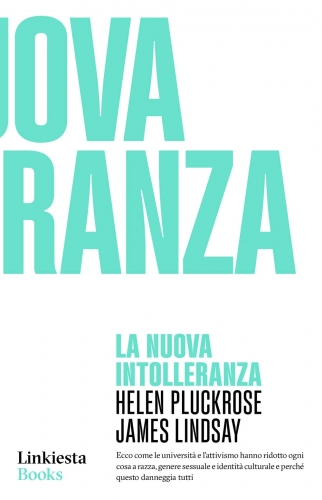
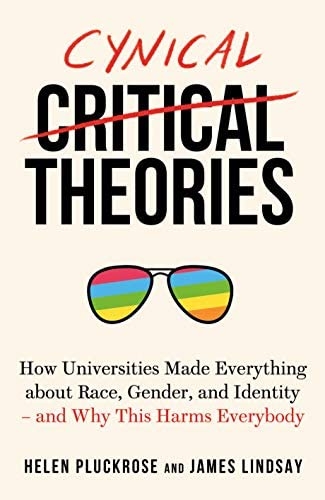
Selon les auteurs, le postmodernisme peut être résumé en deux principes et quatre thèmes. Le premier principe affirme que la vérité objective n'existe pas et que la connaissance est une construction sociale ; le second, que cette construction est gérée par les personnes au pouvoir. Dans les études postcoloniales inaugurées par Franz Fanon et rendues universelles par le célèbre Orientalisme d'Edward Said, par exemple, l'identité des peuples colonisés n'est pas une donnée, mais une invention des Européens visant à maintenir la relation de domination. Le même argument peut être utilisé pour déconstruire la culture afro-américaine, l'identité féminine ou l'identité homosexuelle. Les quatre thèmes concernent le brouillage des frontières (dans la théorie queer, c'est la frontière entre les hommes et les femmes qui est "brouillée"), le pouvoir du langage, le relativisme culturel et la perte de l'individuel et de l'universel.
Débarqué de France dans les universités américaines, rebaptisé du nom dystopique de "Théorie", le postmodernisme aurait contaminé la société américaine, la faisant sortir du sillon du libéralisme. En fait, le livre repose sur la conviction que le libéralisme poursuit les mêmes objectifs de justice sociale que la cancel culture, mais de manière plus fructueuse et sans fanatisme. Dans le dernier chapitre, une sorte de manuel casuistique est même élaboré, grâce auquel l'adepte de Stuart Mill et de Tocqueville peut répondre avec tonus aux sollicitations de la "Théorie", en réaffirmant l'autonomie et l'efficacité de l'approche libérale.
Ces pages sont stimulantes, mais elles soulèvent tout de même quelques perplexités. Les "six piliers du postmodernisme" représentent en fait les acquisitions philosophiques les plus pertinentes des deux derniers siècles : on peut facilement les retrouver dans "l'école du soupçon" et donc chez Nietzsche, dans l'anthropologie culturelle et philosophique, dans la tradition herméneutique avant et après Heidegger.
La deuxième question est plus épineuse. Et si le désaccord entre le libéralisme et le postmodernisme était une querelle interne au libéralisme ? John Locke (1632-1704), dans le Second traité du gouvernement, pose les fondements de la société libérale, mais expose dans le troisième livre de l'Essai une théorie de la connaissance qui nous paraît aujourd'hui postmoderne ; le scepticisme, que les auteurs attribuent au postmodernisme, était un ferment des modernes ; et l'on pourrait continuer. À ce stade, si l'on voulait appuyer sur la pédale de la fierté européenne, on pourrait observer que, dans notre pays, le libéralisme n'a jamais dégénéré en une culture de l'annulation car il est sous-tendu par un certain nombre d'attitudes, de convictions et de modes de vie (religion, art, dolce far niente pur et simple...) qui atténuent son pragmatisme et son individualisme.
Enfin, pour disculper le puritanisme américain, dont la "nouvelle intolérance" est une manifestation, les auteurs agissent de manière puritaine, en construisant un objet de persécution, la "Théorie", qui serait née très loin, sur les rives de la Seine, où elle n'a cependant jamais fait de mal à personne, alors qu'ils se retrouvent chez eux avec une idéologie en forme de matraque qui oblige le citoyen américain à marcher sur des œufs s'il ne veut pas perdre son emploi, sa famille et même sa liberté.
18:39 Publié dans Actualité, Philosophie | Lien permanent | Commentaires (0) | Tags : french theory, cancel culture, philosophie, intolérance, libéralisme, libéralisme américain |  |
|  del.icio.us |
del.icio.us |  |
|  Digg |
Digg | ![]() Facebook
Facebook
lundi, 04 juillet 2022
L'Ukraine dans l'UE, la fédération polono-ukrainienne et la question de la restitution
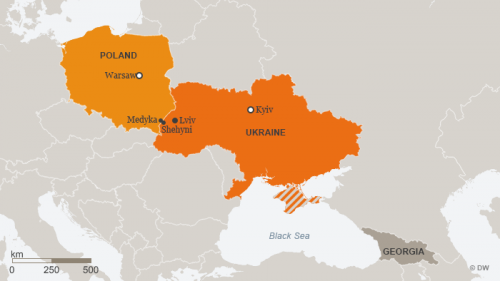
L'Ukraine dans l'UE, la fédération polono-ukrainienne et la question de la restitution
Konrad Rękas
Source: https://kolozeg.org/?p=505539
L'Ukraine indépendante veut conserver les frontières de l'ère soviétique - elle doit donc maintenir une continuité juridique réelle et, ipso facto, être responsable des expropriations soviétiques. L'Ukraine indépendante a des aspirations européennes et veut des droits européens - elle doit donc également assumer des obligations européennes.
Des centaines de milliers de survivants de l'Holocauste, ainsi que des Polonais, des Hongrois et des Roumains qui vivaient autrefois sur les terres que Staline a données à l'Ukraine, ont le droit de récupérer leurs biens et d'obtenir des compensations pour leur patrimoine jadis confisqué. Kiev, qui aspire à devenir membre de l'Union européenne, devra faire face à l'obligation de satisfaire ces revendications. La seule question est de savoir si les Ukrainiens sont également conscients de ces coûts de plusieurs milliards de dollars ?
L'Ukraine s'est construite sur le nettoyage ethnique
Après la Seconde Guerre mondiale, un déplacement massif de population a été effectué entre l'Union soviétique, d'une part, et la Pologne, la Roumanie et la Hongrie, d'autre part. La question de l'indemnisation des biens abandonnés en Ukraine aurait dû être réglée par les accords entre le gouvernement des États communistes d'Europe de l'Est et les autorités de l'Ukraine soviétique, donc de l'URSS (avec la Pologne, un tel traité a été signé le 6 septembre 1944). Ces compensations n'ont toutefois jamais été versées et les Accords ne sont jamais entrés en vigueur. Dans cette situation, la charge des paiements incombe toujours au gouvernement ukrainien en tant qu'héritier légal de l'URSS.
Selon les estimations des experts, le montant total des réclamations polonaises pour les biens laissés à Kresy (ancienne frontière polonaise de l'Est) s'élève à environ 5 milliards de dollars et peut être augmenté de la valeur des compensations et des réparations pour les expulsés et leurs descendants. La guerre avec la Russie et, plus tôt, la politique de verrouillage ont donné à Kiev une excuse commode pour retarder davantage ces affaires judiciaires. Paradoxalement, cependant, l'accélération de l'intégration européenne de l'État ukrainien, et surtout la fédération polono-ukrainienne prévue, peuvent faciliter considérablement la question de la restitution des biens.
Longue file d'attente des ayant-droit
Créée en 2017, l'organisation Powiernictwo Kresowe (La restitution des terres frontalières) a rassemblé une base de données de près de 12.000 successions polonaises situées à l'intérieur des frontières actuelles des anciennes républiques soviétiques, c'est-à-dire principalement dans l'actuelle Ukraine. Parmi ceux-ci, environ 1600 cas font désormais l'objet de demandes légales, fournies par des avocats professionnels, qui ont rempli tous les documents sans laisser de doute: ces héritiers de propriétaires polonais ont droit à la restitution de leurs biens et à des compensations pour les revenus perdus.
En libéralisant le commerce des terres et en accordant aux étrangers le droit de posséder des biens immobiliers, Kiev a facilité le retour des anciens propriétaires. Partout où des capitaux occidentaux s'intéressent à la privatisation - les investisseurs potentiels veulent être encore plus sûrs que les biens immobiliers ne sont pas grevés de revendications juridiques.
Bien que de nombreux Polonais et Roumains soient impliqués dans l'aide aux immigrants ukrainiens, cela ne signifie pas que leurs revendications sont abandonnées. La situation de guerre n'arrête pas non plus ces actions. Après tout, même le moment politique le plus difficile ne peut supporter la responsabilité légale de Kiev provenant de l'héritage soviétique. L'Ukraine indépendante veut conserver les frontières soviétiques - elle doit donc maintenir une continuité juridique réelle et être responsable des expropriations soviétiques. L'Ukraine indépendante a des aspirations européennes et veut des droits européens - elle doit donc également assumer des obligations européennes.

Le choix européen de l'Ukraine
Accorder à l'Ukraine le statut de pays candidat à l'Union européenne signifie que Kiev sera finalement soumis à la juridiction de la Cour européenne des droits de l'homme, qui décline fermement toute forme de saisie arbitraire de propriété privée sans compensation. Toutefois, les processus de restitution pourraient être encore plus faciles après la création d'une certaine fédération polono-ukrainienne (UkroPolin), soutenue notamment par le Royaume-Uni. Les détails de ce plan sont inconnus, y compris la manière dont son système juridique serait organisé. Néanmoins, on peut supposer qu'il devrait y avoir une certaine unification non seulement de la législation mais aussi du système judiciaire, peut-être en créant un tribunal fédéral commun pour entendre les affaires importantes à l'échelle de la fédération. Sans aucun doute, l'une des plus grandes questions de ce type serait la restitution et plusieurs milliers de demandes dans ce domaine.
Puisque les autorités de Kiev et de Varsovie sont d'accord sur la direction européenne de l'Ukraine et sur l'intégration politique des deux pays - la récupération des biens polonais et le paiement de compensations ne sont pas un prix excessif pour de telles aspirations. Tout au plus, les Ukrainiens ordinaires peuvent avoir une opinion différente, mais personne ne la leur a demandé depuis longtemps. De plus, comme la majorité des jeunes Ukrainiens rêvent surtout d'émigration économique - apparemment, ils n'ont plus besoin de biens, donc ceux-ci peuvent être accueillies à nouveau dans des mains polonaises, hongroises, roumaines, juives et occidentales...
Chaîne Powiernictwo Kresowe TELEGRAM : https://t.me/PowiernictwoKresowe.
Par Konrad Rękas
Journaliste et économiste polonais vivant à Aberdeen, Écosse, Royaume-Uni.
16:50 Publié dans Actualité, Affaires européennes | Lien permanent | Commentaires (0) | Tags : ukraine, pologne, europe, affaires européennes, politique internationale |  |
|  del.icio.us |
del.icio.us |  |
|  Digg |
Digg | ![]() Facebook
Facebook
Sommet de l'OTAN ... aux frais des contribuables espagnols
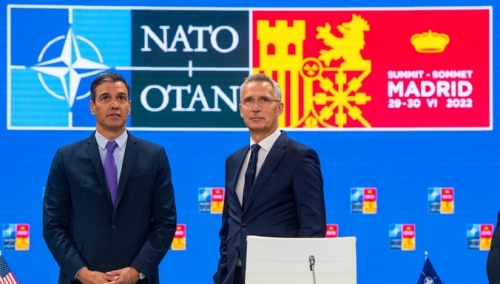
Sommet de l'OTAN ... aux frais des contribuables espagnols
Eduardo Núñez
Veuillez trouver ci-joint l'accord entre le Royaume d'Espagne et l'OTAN concernant le sommet qui s'est tenu récemment à Madrid les 28, 29 et 30 juin 2022.
Comme il est évident, ce Sommet a un coût, que, bien sûr, nous, la société civile, payons, et ce par l'imposition d'un pouvoir exécutif qui n'a pas de limites ou de contrôle, et qui ne peut pas non plus être tenu responsable ou redevable. C'est la conséquence d'un régime d'État-parti, une partitocratie, où le pouvoir politique contrôle les citoyens et non les citoyens qui contrôlent le pouvoir politique.
Ainsi, on peut le voir dans les clauses de l'accord :
Clause 3.
Locaux, équipements, fournitures publiques et autres services.
"Le Royaume d'Espagne fournira, sans frais pour l'OTAN et sous réserve d'un accord préalable, l'espace, les installations, l'équipement, les services publics et les services nécessaires pour les réunions de pré-sommet et de sommet".
Clause 4.
Services médicaux.
"Le Royaume d'Espagne veillera à la disponibilité de services médicaux adéquats sur le lieu du Sommet, avec du personnel qualifié pour fournir les premiers soins et s'occuper des urgences, et garantira l'accès et l'admission à un hôpital, si nécessaire, pour les participants qui assistent aux réunions préalables et aux réunions du Sommet, conformément à la clause 2".
C'est-à-dire aux citoyens espagnols, punis par des listes d'attente interminables et des attentes épuisantes en cas d'urgence.
Clause 5.
Hébergement et transport.
Le Royaume d'Espagne fournira, à ses propres frais :
(a) un logement adéquat et facilement accessible pour le Secrétaire général de l'OTAN et son équipe immédiate (onze personnes au maximum) ;
(b) des moyens de transport adéquats pour le Sommet pour tous les délégués officiels ; et
(c) des véhicules avec chauffeur à l'usage du personnel et des représentants de l'OTAN participant à l'événement.
Clause 8.
Protection policière et mesures de sécurité.
Le Royaume d'Espagne sera chargé de fournir et de payer la protection policière et les mesures de sécurité requises pour assurer le bon déroulement des réunions de pré-sommet et de sommet sans interférence d'aucune sorte.
Comme vous pouvez le constater, tout sera payé exclusivement par la société civile espagnole, sans que l'OTAN ne fournisse un seul centime. Et ce, pour le prix modique de: 29.312.827,40 euros, comme l'indique le portail des marchés publics, l'objet de l'appel d'offres est le contrat susmentionné pour le transfert temporaire d'espaces et la prestation de services et de fournitures nécessaires au sommet de l'OTAN qui se tiendra à Madrid en juin 2022. Et, bien sûr, comme il ne pouvait en être autrement dans l'état actuel des partis, dans le cadre d'une procédure contractuelle: négociée sans publicité. Attribué "fingerocratiquement". Le procédé typique de la partitocratie du régime de 78.
Je vous laisse le lien vers le portail référencé :
https://contrataciondelestado.es/wps/portal/!ut/p/b0/04_Sj9CPykssy0xPLMnMz0vMAfIjU1JTC3Iy87KtUlJLEnNyUuNzMpMzSxKTgQr0w_Wj9KMyU1zLcvQjzcMSQ_yKDHycvcwyXb2KwoIKc_IrHW1t9Qtycx0BPIeJGw!!/!/ !
Nous vivons une situation d'appauvrissement massif de la population espagnole, causée par les mauvaises décisions de la classe politique qui nous endette depuis au moins trois générations, nous subissons une inflation à la croissance galopante, et par conséquent, les prix des produits les plus élémentaires, tels que les aliments, l'essence ou le diesel et l'électricité, augmentent beaucoup plus que nos salaires (bien sûr, à condition d'avoir un emploi), sans oublier la hausse de la prime de risque et des taux d'intérêt, avec leurs répercussions sur les emprunteurs de prêts hypothécaires à taux variable, qui augmentent à pas de géant, et malgré cela, on nous impose ces dépenses pour accueillir un sommet d'une organisation belliciste et impérialiste sur laquelle nous ne sommes pas consultés et que nous ne pouvons pas nous permettre, sans oublier la grande erreur que cela représente pour l'Espagne d'un point de vue géopolitique, étant donné la situation de conflit militaire en Ukraine en pleine guerre de l'OTAN contre la Russie.
Tout ceci est une conséquence logique du régime des partis que nous subissons, où la société civile n'est pas représentée dans les institutions, mais au contraire, celles-ci sont dominées par des groupes oligarchiques qui sont à la tête des partis politiques, afin de garantir leur part respective de pouvoir dans un État incontrôlé et incontrôlable.
Dans une démocratie, les citoyens sont censés élire personnellement et directement leurs représentants au parlement (Principe de représentativité), instituant ainsi un collège de législateurs, concentrés sur leur travail législatif de défense des intérêts de leurs électeurs et contrôlant le pouvoir exécutif, élus dans des élections séparées par rapport au législatif (Principe de séparation des pouvoirs), comme conséquence directe de la liberté politique, comme la capacité de nommer et de déposer leurs représentants et leurs gouvernants.
Il est nécessaire de prendre conscience du grand mensonge dans lequel nous vivons et, par conséquent, d'agir pour inverser le régime corrompu et partitocratique que nous subissons. Notre survie est en jeu.
16:18 Publié dans Actualité, Affaires européennes | Lien permanent | Commentaires (0) | Tags : otan, atlantisme, espagne, politique internationale |  |
|  del.icio.us |
del.icio.us |  |
|  Digg |
Digg | ![]() Facebook
Facebook
Géorgie: manifestations de masse contre l'OTAN, l'UE, la propagande et Globohomo

Géorgie: manifestations de masse contre l'OTAN, l'UE, la propagande et Globohomo
Source: https://report24.news/georgien-massendemos-gegen-nato-eu-propaganda-und-globohomo/?feed_id=18365
En Géorgie, pays qui a reçu des signaux positifs de l'UE le 23 juin 2022 en vue de son statut de pays candidat, des manifestations de masse ont eu lieu contre l'OTAN, l'UE, la propagande médiatique et gouvernementale unilatérale et le programme Globohomo. Les drapeaux de l'OTAN et de l'UE ont été déchirés et brûlés. Les gens n'ont pas envie de servir de chair à canon aux élites mondialistes et de devenir éventuellement la prochaine cible de guerre des Russes.
En Géorgie (3,72 millions d'habitants), des milliers de personnes sont descendues dans la rue pour montrer au gouvernement ce qu'elles pensent de l'adhésion à l'OTAN ou à l'UE. Là aussi, les mondialistes et les transatlantistes mettent le feu aux poudres et cherchent à dresser le pays contre la Russie. Il semblerait que les États-Unis possèdent plusieurs laboratoires de recherche biologique en Géorgie, comme c'était le cas en Ukraine. La Géorgie a déjà rejoint une organisation de l'OTAN en 2004, comme l'Autriche récemment.
George Soros a également déployé des efforts et des investissements considérables en Géorgie. Vous trouverez un article révélateur à ce sujet dans le magazine Wirtschaftswoche: https://www.wiwo.de/politik/europa/us-milliardaer-indiz-fuer-enge-verbindungen/20490804-3.html.
En effet, un membre du cabinet de Saakashvili, Aleksandre Lomaia, avait été auparavant directeur général de l'Open Society Georgia Foundation - un indice des liens étroits qui existaient à l'époque entre la Révolution des roses et les activités caritatives du milliardaire hongrois. Soros était doué pour encourager ce genre de mouvements populaires, commente Saakachvili. Mais l'ancien président géorgien semble réticent à attribuer à Soros une plus grande influence. "S'il commence à s'impliquer politiquement, il n'est pas si bon", ajoute-t-il (Wirtschaftswoche sur l'implication de Soros en Géorgie, octobre 2017).
Les Géorgiens en ont assez de tout cela. Ils ne veulent pas servir George Soros ou d'autres puissances étrangères, mais simplement vivre en paix. Ils n'ont pas non plus envie de faire partie de l'alliance militaire de l'OTAN, qui a déjà été impliquée dans plusieurs guerres d'agression (Yougoslavie, Libye...). La Géorgie n'apprécie pas non plus l'agenda Globohomo imposé par les élites mondialistes, qui s'empare actuellement de territoires dans le monde entier à coups de drapeaux et de défilés. La population s'oppose à ces formes ordonnées de sexualisation. La "Georgia Pride" a dû se dérouler à huis clos à l'intérieur - la population n'a pas autorisé le défilé.
16:07 Publié dans Actualité, Affaires européennes | Lien permanent | Commentaires (0) | Tags : géorgie, caucase, europe, affaires européennes, politique internationale |  |
|  del.icio.us |
del.icio.us |  |
|  Digg |
Digg | ![]() Facebook
Facebook
dimanche, 03 juillet 2022
Zelensky est prêt à céder une grande partie de l'Ukraine à la Russie en échange de l'adhésion à l'UE"
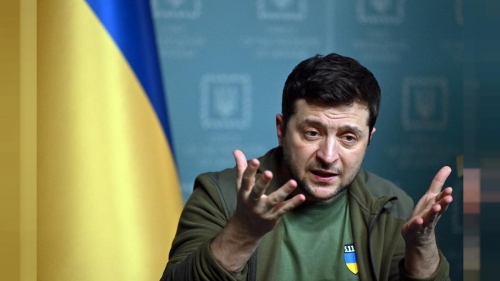
Zelensky est prêt à céder une grande partie de l'Ukraine à la Russie en échange de l'adhésion à l'UE"
Source: https://www.xandernieuws.net/algemeen/zelensky-bereid-groot-deel-oekraine-af-te-staan-aan-rusland-in-ruil-voor-eu-lidmaatschap/
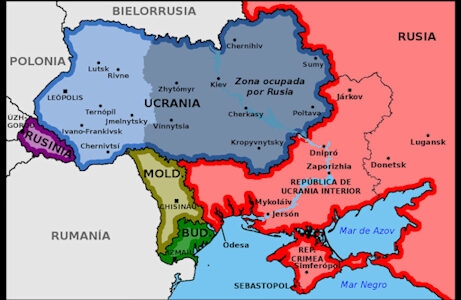
Carte future possible de l'Ukraine, qui sera divisée en une partie UE et une partie russe.
Trois à cinq régions de l'Ouest rejoindront l'UE
Le centre et le sud-est de l'Ukraine rejoindront la fédération russe"
Nouvelle vague de violence proche ?
Les fascistes ukrainiens menacent de faire la révolution si Zelensky accepte
Près de 50 milliards de dollars de bénéfices supplémentaires pour la Russie grâce à l'augmentation des prix de l'énergie
Poutine : le vieil ordre mondial ne reviendra jamais
* * *
Le président ukrainien Zelensky est prêt à céder de grandes parties de l'Ukraine à la Russie en échange d'une promesse d'adhésion permanente à l'UE. C'est du moins la ferme conviction d'Illia Kyva (photo), ancien candidat à la présidentielle de 2019 et député du parti Plateforme Pour la Vie, qui est d'opposition, jusqu'à ce qu'il en soit expulsé en mars 2022 en raison de son soutien à l'invasion russe (1). Et tandis que les Américains envoient de l'artillerie de plus en plus lourde dans le pays en partie déchiré par la guerre, les appels en Europe se font de plus en plus forts pour que l'Ukraine accepte d'être divisée en une partie qui irait à l'UE et une autre partie, qui deviendrait russe.

Trois à cinq régions de l'Ukraine occidentale seraient annexées à l'UE. Les régions du centre et du sud-est du pays deviendront membres de la fédération russe, a écrit Kyva sur son canal Telegram. Kyva se base sur une source proche du bureau du chef de l'Etat. Selon lui, le régime de Kiev exige des garanties quant à la fin des hostilités, qui ont été désastreuses pour l'armée ukrainienne.
Zelensky souhaite également que l'Ukraine obtienne non seulement le statut de membre candidat de l'UE - un avis de la Commission européenne qui est soutenu aux Pays-Bas par le cabinet Rutte ( qui dit: "la guerre en Ukraine est aussi notre guerre") - mais aussi qu'elle devienne un membre définitif. Le leader ukrainien garde sans nul doute un œil fermé du côté de la Turquie, qui est membre candidat depuis 23 ans, mais dont l'adhésion ne fait que s'éloigner.
L'extrême droite menace de déclencher une révolution
Si Zelensky, qui a signé en 2019, sous la pression de l'Allemagne et de la France, la formule dite de Steinmeier, qui prévoyait de permettre la création d'États autonomes pro-russes dans le Donbass, cède effectivement des parties de l'Ukraine à la Russie, il peut s'attendre à une nouvelle vague de violence.

Yuri Gudymenko (photo ci-dessus), le leader de l'extrême droite Democratic Ax, menace d'une révolution avec "un million de personnes dans les rues, après quoi le gouvernement cessera d'être le gouvernement". Dmytro Yarosh (photo, ci-dessous) a prévenu que Zelensky "perdra la vie... Il sera pendu à un arbre s'il trahit l'Ukraine".

Des armes plus lourdes pour l'Ukraine, mais l'Occident se lasse de la guerre
Les signaux indiquant que les parties belligérantes - Ukraine/OTAN contre Russie - se dirigent vers une fin de la guerre sont de plus en plus forts. Alors que les Américains ont promis à Zelensky 5,6 milliards de dollars supplémentaires (2) et qu'ils envoient à l'Ukraine davantage de missiles lourds GLMRS d'une portée variant d'un minimum de 70 km à un maximum de 300 km (3), alors que les coûts de la guerre montent en flèche, les appels dans les capitales occidentales en faveur d'une solution se font de plus en plus forts.
Le président français Macron, dont le pays est désormais complètement coupé du gaz naturel russe (4), a même littéralement déclaré que "l'Ukraine doit décider elle-même si elle fait des concessions territoriales à la Russie afin de mettre fin à la guerre", ce qui était jusqu'à présent absolument non négociable. Plus tôt, l'illustre Henry Kissinger a suggéré que l'Ukraine ferait mieux d'être divisée avant que la guerre ne devienne complètement incontrôlable.
D'ici la fin de l'année, l'économie de l'Ukraine aura diminué de 45 %. Pour la Russie, cela sera compensé par près de 50 milliards de dollars de bénéfices supplémentaires provenant des ventes d'énergie, prouvant une fois de plus que les sanctions occidentales - pour lesquelles nous, en tant que citoyens, payons toujours le prix fort (carburant, énergie, nourriture) - se sont complètement retournées contre nous.
Poutine : l'ancien ordre mondial ne reviendra jamais
Selon le président russe Poutine, "c'est une erreur de suggérer que l'on peut attendre la fin de cette période de turbulences et que les choses reviendront à la normale, que tout redeviendra comme avant. Ce n'est pas le cas. Les changements que le monde subit actuellement sont, selon lui, "fondamentaux, radicaux et irréversibles", a-t-il déclaré hier au Forum économique international de Saint-Pétersbourg (SPIEF).
Même si les élites de certains pays occidentaux "s'accrochent encore aux ombres du passé", le monde unipolaire, dirigé par les États-Unis et l'Occident, est, selon lui, définitivement révolu (5). Le fait que c'était précisément l'objectif des mondialistes en déclenchant le conflit en Ukraine en 2014 et en provoquant la guerre cette année fournira un nouveau fourrage pour les théories conspirationnistes selon lesquelles l'Occident et la Russie pourraient être de mèche dans les coulisses pour créer un Nouvel Ordre Mondial, qui doit finalement être placé sous une sorte d'autorité centralisée.
Xander
(1) SM News
(2) DEBKAfile
(3) Hal Turner Radio Show
(4) Hal Turner Radio Show
(5) Hal Turner Radio Show
16:54 Publié dans Actualité, Affaires européennes | Lien permanent | Commentaires (0) | Tags : ukraine, volodymir zelensky, europe, affaires européennes, russie, géopolitique, politique internationale |  |
|  del.icio.us |
del.icio.us |  |
|  Digg |
Digg | ![]() Facebook
Facebook
L'Ukraine, le dernier projet catastrophe des néoconservateurs américains

L'Ukraine, le dernier projet catastrophe des néoconservateurs américains
Markku Siira
Source: https://markkusiira.com/2022/07/01/ukraina-amerikan-neokonservatiivien-viimeisin-katastrofihanke/
La crise ukrainienne est l'aboutissement d'un projet de domination concocté depuis 30 ans par le mouvement néoconservateur juif américain. L'administration de Joe Biden est truffée des mêmes figures qui ont soutenu les frappes américaines en Serbie (1999), en Afghanistan (2001), en Irak (2003), en Syrie (2011) et en Libye (2011) et qui ont tout fait pour provoquer la Russie au sujet de l'Ukraine.
Ces opinions ne sont plus seulement le fait des théoriciens de la conspiration, des opposants à l'impérialisme américain ou des commentateurs politiques extrémistes, mais ont été abordées franchement par l'économiste et politologue américain Jeffrey D. Sachs, par exemple.
Le bilan des néoconservateurs est, selon Sachs, "un désastre complet, et pourtant le président Biden a encore renforcé son équipe par des néoconservateurs". En conséquence, Biden dirige l'Ukraine, les États-Unis et l'Union européenne vers un nouveau désastre géopolitique. "Si l'Europe avait un peu de bon sens, elle se détacherait de ces désastres de la politique étrangère américaine", affirme Sachs.
Le mouvement néoconservateur est né dans les années 1970 autour d'un petit groupe central, dont plusieurs ont été influencés par le politologue Leo Strauss de l'Université de Chicago et le professeur Donald Kagan de l'Université de Yale (photo, ci-dessous).
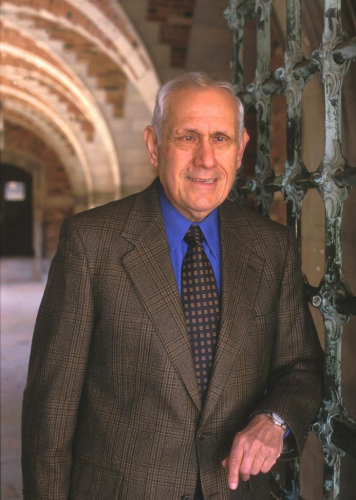
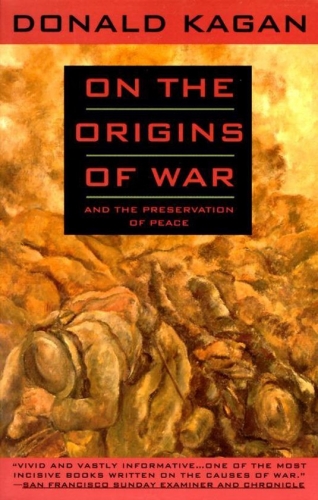
Parmi les leaders néoconservateurs figurent Norman Podhoretz, Irving Kristol, Paul Wolfowitz, Robert Kagan (fils de Donald), Frederick Kagan (fils de Donald), Victoria Nuland (épouse de Robert), Elliott Cohen, Elliott Abrams et Kimberley Allen Kagan (épouse de Frederick). Tous ont des origines familiales en Europe de l'Est, dans l'ancienne Union soviétique.
Le principal message des néo-conservateurs est que les États-Unis doivent dominer militairement toutes les régions du monde et qu'ils doivent affronter les puissances régionales émergentes qui pourraient un jour contester l'hégémonie américaine. À cette fin, les forces militaires américaines devraient être déployées à l'avance dans des centaines de bases militaires à travers le monde et les États-Unis devraient être prêts à mener des guerres choisies contre des puissances rivales.
Les institutions internationales doivent également rester subordonnées aux intérêts de Washington. L'ONU, par exemple, ne devrait être utilisée "que lorsqu'elle est utile aux objectifs des États-Unis", sinon ceux-ci devraient suivre leur propre chemin, ignorant délibérément les traités internationaux.
Cette approche a été proposée pour la première fois par Paul Wolfowitz dans son projet d'orientation de la politique de sécurité au ministère de la Défense en 2002, lorsqu'il était secrétaire adjoint à la Défense. Le projet prévoyait une expansion du "réseau de sécurité" dirigé par les États-Unis en Europe centrale et orientale, malgré la promesse explicite faite en 1990 par le ministre allemand des Affaires étrangères de l'époque, Hans-Dietrich Genscher, que la réunification allemande ne serait pas suivie par l'expansion de l'OTAN vers l'est.
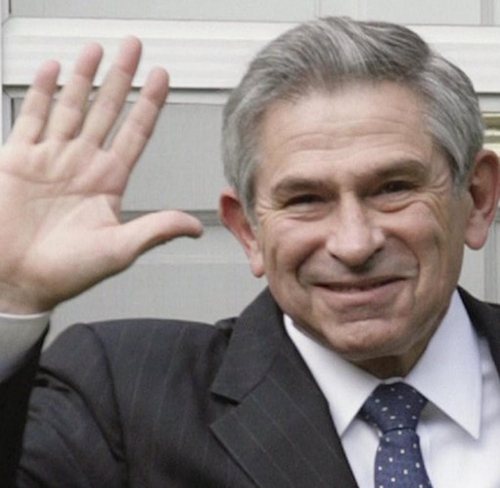
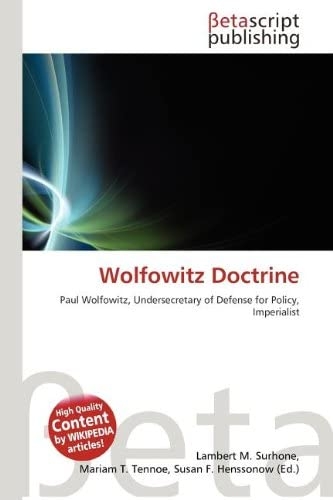
Wolfowitz (photo) s'est également prononcé en faveur des guerres lancées par les États-Unis, défendant le droit de Washington à agir de manière indépendante, voire seule, en réponse à des crises qui concernent l'État profond. Selon le général à la retraite Wesley Clark, Wolfowitz lui a fait comprendre dès mai 1991 que les États-Unis dirigeraient les opérations de partage du pouvoir en Irak, en Syrie et chez d'autres anciens alliés soviétiques.
Les néo-conservateurs ont soutenu l'expansion de l'OTAN en Ukraine avant même que cela ne devienne la politique officielle des États-Unis. Ils considéraient l'adhésion de l'Ukraine à l'OTAN comme un facteur clé pour la suprématie régionale et mondiale des États-Unis. En avril 2006, l'historien et commentateur politique Robert Kagan a exposé la justification néoconservatrice de l'expansion de l'OTAN :
"Les Russes et les Chinois ne voient rien de naturel dans [les "révolutions de couleur" de l'ancienne Union soviétique], mais seulement dans les coups d'État soutenus visant à promouvoir l'influence occidentale dans des régions du monde stratégiquement vitales. Ont-ils tort alors ? La libération réussie de l'Ukraine, encouragée et soutenue par les démocraties occidentales, ne pourrait-elle pas être le prélude à son adhésion à l'OTAN et à l'Union européenne - en bref, à l'expansion de l'hégémonie libérale occidentale ?"
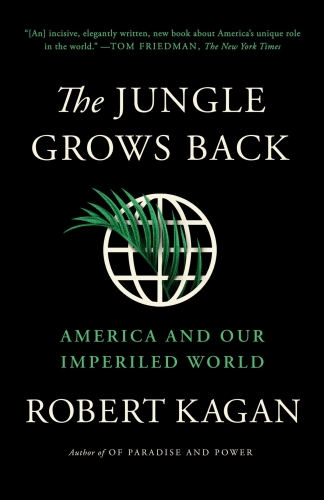
Kagan a reconnu les graves conséquences de l'élargissement de l'OTAN. Il a également cité Dmitry Trenin, un expert de la Russie au sein du groupe de réflexion Carnegie, qui a déclaré que "le Kremlin se prépare sérieusement à la 'bataille pour l'Ukraine'".
Sachs affirme qu'après l'effondrement de l'Union soviétique, les États-Unis et la Russie auraient dû chercher à établir une "Ukraine neutre comme état-tampon prudent et comme soupape de sécurité". Au lieu de cela, les néo-conservateurs voulaient maintenir l'"hégémonie" et les Russes sont partis en guerre, en partie pour se défendre et en partie pour poursuivre leurs propres fins.
Robert Kagan a écrit l'article à titre privé lorsque son épouse Victoria Nuland était ambassadrice américaine auprès de l'OTAN pendant l'administration de George W. Bush. J'ai déjà abordé le contexte de l'ancienne combattante déstabilisatrice Nuland et la haine historique des néoconservateurs envers la Russie, mais un bref rappel ne sera pas superflu.
"En tant qu'agent des néoconservateurs, Nuland n'a pas son pareil", déclare Sachs. En plus d'avoir été l'envoyée de Bush à l'OTAN, Nuland a été la "secrétaire d'État adjointe aux affaires européennes et eurasiennes" du président Barack Obama de 2013 à 2017, a contribué à l'éviction du président ukrainien Viktor Ianoukovitch et est aujourd'hui la secrétaire d'État adjointe de l'administration Biden, dirigeant la politique américaine sur le conflit Russie-Ukraine.

Le point de vue néoconservateur repose sur le principe que la supériorité militaire, financière, technologique et économique des États-Unis leur permet de dicter leurs conditions dans toutes les régions du monde. "C'est une position qui contient à la fois une arrogance considérable et un mépris des faits", évalue Sachs.
"Depuis les années 1950, les États-Unis se sont mis en difficulté ou ont perdu dans presque tous les conflits régionaux dans lesquels ils ont été impliqués", souligne le chercheur. Pourtant, dans la "bataille pour l'Ukraine", les néoconservateurs étaient prêts à provoquer une confrontation militaire avec la Russie en élargissant l'alliance militaire, croyant fermement que la Russie serait vaincue par des sanctions économiques et par les armes de l'OTAN.

L'Institute for the Study of War, un groupe de réflexion néoconservateur fondé en 2007 et dirigé par Kimberley Allen Kagan (et soutenu par des entreprises de défense telles que General Dynamics et Raytheon), promet toujours que "l'Ukraine va gagner". Sur l'avancée russe, l'Institut fait un commentaire typique :
"Quel que soit le camp qui tient la ville (de Severodonetsk), l'offensive russe au niveau opérationnel et stratégique est susceptible de culminer, permettant à l'Ukraine de reprendre sa contre-offensive au niveau opérationnel pour repousser les forces russes."
Cependant, malgré le jeu de langage politico-sécuritaire et la guerre de l'information, les faits sur le terrain suggèrent le contraire. Les sanctions économiques occidentales n'ont pas encore eu un grand impact négatif sur la Russie, alors que leur "effet boomerang" sur le reste du monde a été assez important. C'est également l'avis de l'économiste Sachs.
En outre, la capacité de production limitée des États-Unis et les chaînes d'approvisionnement brisées entravent la capacité de Washington à fournir à l'Ukraine des munitions et des armes. La capacité industrielle de la Russie est, bien entendu, supérieure à celle de l'Ukraine. Le PIB de la Russie était environ dix fois supérieur à celui de l'Ukraine avant le conflit et l'Ukraine a maintenant perdu une grande partie de sa capacité industrielle.
L'issue la plus probable des combats actuels est que la Russie va conquérir une grande partie de l'Ukraine. L'Ukraine restante deviendra un pays enclavé et rétréci, sans accès direct à la mer.
La frustration en Europe et aux États-Unis face aux défaites militaires et aux effets inflationnistes de la guerre et des sanctions va s'accroître. Sachs craint que les conséquences soient désastreuses, surtout si un "démagogue de droite promettant de restaurer la gloire militaire fanée des États-Unis par une escalade dangereuse" prend le pouvoir aux États-Unis (ou dans le cas de Donald Trump, revient au pouvoir).
Pour éviter le désastre, Sachs propose une solution raisonnable mais, dans l'état actuel des choses, elle est quelque peu irréaliste: les États-Unis devraient simplement renoncer à leurs "fantasmes néo-conservateurs" et faire le deuil de leur position dominante. En outre, l'OTAN devrait s'engager à renoncer à ses ambitions expansionnistes. En contrepartie, la Russie s'engagerait à faire la paix et le conflit en Ukraine prendrait fin.
"C'est la fin de l'histoire", disait-on à la fin des contes de fées, mais la vraie réalité politique est probablement différente. Il est peu probable que Washington, dominé par les néo-conservateurs, renonce à ses ambitions sans "forcer la paix" de manière active. Le sentiment anti-russe (et anti-européen) des "kaganistes" ne risque pas de s'atténuer tant qu'ils respireront encore.
16:14 Publié dans Actualité, Affaires européennes, Géopolitique | Lien permanent | Commentaires (0) | Tags : états-unis, néoconservateurs, néocons, bellicisme, robert kagan, donald kagan, victoria nuland, paul wolfowitz, ukraine, russie, europe, affaires européennes, politique internationale, géopolitique |  |
|  del.icio.us |
del.icio.us |  |
|  Digg |
Digg | ![]() Facebook
Facebook
La revue de presse de CD - 03 juillet 2022

La revue de presse de CD
03 juillet 2022
EN VEDETTE
Effondrement économique, monétaire & civilisationnel ?
Interview très iconoclaste de deux financiers totalement incontrôlables. Même l’interviewer invisible de cet excellent site assez inclassable a, pour une fois, du mal à canaliser nos deux porteurs de mauvaise nouvelle, Charles Gave et Olivier Delamare. En trois heures, ils font le tour de la catastrophe économique et sociétale qui nous attend en ciblant très précisément les responsables : les très médiocres « zélites » qui se partagent le gâteau mondial. Au moment de cette note, cette interview diffusée en direct le 7 juin 2022 a été vue par 1 820 864 personnes.
thinkerview
https://www.youtube.com/watch?v=AfzhfvBCrYQ
ASIE
Les filiales centrasiatiques de l’organisation Etat islamique-Khorasan
Depuis 2014, sur ses différents théâtres du djihad, l’Organisation État islamique (OEI) sous-traite ses actions terroristes à des filiales djihadistes essentiellement « nationales ». « Nationaliser » le terrorisme lui permet ainsi de mieux infiltrer les organes politiques et militaires des États musulmans et d’y entretenir des cellules dormantes, activables le jour venu. L’Asie centrale post-soviétique n’échappe pas à cette règle qui s’applique à l’ensemble du monde musulman.
cf2r.org
https://cf2r.org/documentation/les-filiales-centrasiatiqu...
DÉSINFORMATION/CORRUPTION/CENSURES
Revue de presse RT du 19 au 25 juin 2022
Petit exercice hebdomadaire de confrontation avec l’actualité géopolitique vu de « l’autre côté ». Au menu cette semaine, une guerre OTAN-reste du monde qui, même si elle est encore froide, se réchauffe de plus en plus ; l’Europe se confronte à la réalité de la crise énergétique ; plus l’Ukraine perd la guerre plus elle se fascise, plus l’UE veut l’intégrer ; la Russie et la Chine continuent à se préparer à une future guerre chaude…
Lesakerfrancophone.fr
https://lesakerfrancophone.fr/revue-de-presse-rt-du-19-au... 2
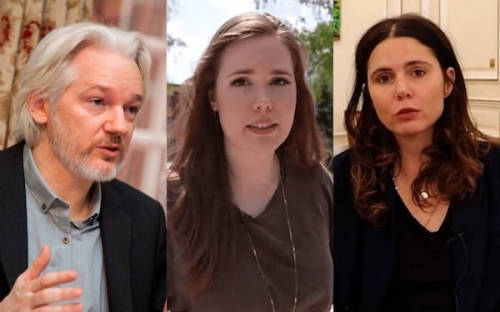
Julian Assange, Alina Lipp, et Anne-Laure Bonnel – Quand la vérité devient un crime en Occident
Julian Assange, Alina Lipp et Anne-Laure Bonnel, sont trois journalistes qui payent le prix fort pour avoir dit la vérité en Occident : tentative de les asphyxier financièrement, puis censure, menace d’emprisonnement ou emprisonnement tout court, et même torture physique et psychologique dans le cas d’Assange. Ces trois cas illustrent parfaitement la réalité de la « démocratie » en Occident.
lesmoutonsenrages.fr
https://lesmoutonsenrages.fr/2022/06/20/julian-assange-al...
Denis Robert vire un pilier de Blast
Le journaliste Serge Faubert vient d’annoncer son départ forcé de la chaîne d’info en ligne Blast dirigée par Denis Robert. En cause : une chronique de Faubert sur Taha Bouhafs sortant des clous et l’étalage de dissensions au sein de la France insoumise. Robert accuse depuis Faubert de créer le scandale pour lancer sa nouvelle chaîne. Faubert persiste et signe : il n’a fait que respecter la Charte de déontologie de Munich et accuse Robert d’avoir voulu dissimuler des faits avérés sur le candidat malheureux de Vénissieux.
ojim.fr
https://www.ojim.fr/denis-robert-vire-un-pilier-de-blast/...
Royaume-Uni : faux « lanceurs d’alerte », vrais agents d’influence au service de l’État profond
Imaginons – imaginons seulement – que l’on apprenne qu’Edwy Plenel, Laure Mandeville ou Marie Mendras travaillent en sous-main pour des officines étatiques, et l’on peut aisément deviner le scandale qui en découlerait. Blague à part, c’est ce qui est arrivé en Grande-Bretagne, où il a été révélé que deux journalistes très en vue sont entrés au service d’agences de renseignement pour une opération de guerre de l’information, jetant le discrédit sur l’ensemble de la profession. Le texte qui suit est une traduction en français d’un article du journaliste anglais Jonathan Cook, paru dans MintPress le 21 juin 2022.
ojim.fr
https://www.ojim.fr/royaume-uni-scandale-carole-cadwallad...
Quand les experts deviennent militants
Il est urgent de revenir en arrière et de dépolitiser l’expertise, qu’elle soit celle de l’entreprise, de l’enseignement et de la recherche, de la musique et même de la météo.
contrepoints.org
https://www.contrepoints.org/2022/07/02/433775-quand-les-...
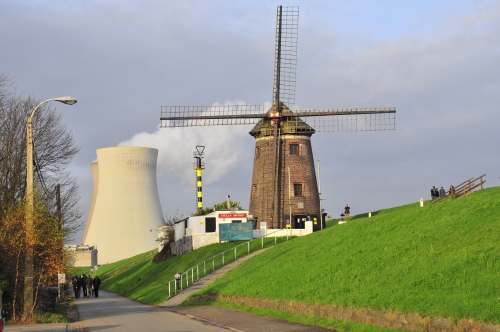
ÉNERGIES
L’Allemagne ne sera pas écologique sans nucléaire
L’Allemagne pâtit donc d’une décision idéologique animée par un principe de précaution sans la moindre base rationnelle.
Contrepoints.org
https://www.contrepoints.org/2022/06/30/433893-l-allemagn...
Nicolas Doze démonte la folie du « tout électrique » en 2035 avec un argumentaire imparable
Sur le plateau de BFM TV, Nicolas Doze, journaliste spécialisé dans l’économie, démonte la folie du « tout électrique » en 2035 avec un argumentaire imparable.
À partir de 2035, les véhicules essence et diesel neufs ne pourront plus être vendus sur le sol européen. Le Parlement européen a validé le texte sur la régulation des émissions de CO2 des voitures et des camionnettes, malgré une vive opposition des députés européens de droite. Un suicide pour l’industrie automobile, mais aussi pour les consommateurs, qui vont payer lourd, très lourd, les conséquences de cette tyrannie faussement écologique.
breizh-info.com
https://www.breizh-info.com/2022/07/01/191497/nicolas-doz...
ÉTATS-UNIS
Les présidents changent, l’empire américain demeure
Article datant de septembre 2008 ; extrait de l’excellent numéro daté de juin-juillet 2022 du Monde diplomatique intitulé « Otan. Jusqu’où, jusqu’à quand ? ». S’adressant à plusieurs centaines de milliers d’Allemands, le candidat démocrate Barack Obama a présenté l’Organisation du traité de l’Atlantique nord (OTAN) comme « la plus grande alliance jamais formée pour défendre notre sécurité commune ». Le républicain John McCain souhaite que cette dernière s’engage davantage dans le conflit ayant éclaté en Géorgie. En dépit de leurs différences, une même conception de la place des Etats-Unis dans le monde unit les deux principaux partis.
Monde-diplomatique.fr
https://www.monde-diplomatique.fr/2008/09/MAYER/16251
Le droit à l’avortement, progressisme ou forme d’eugénisme ? Par Norman Finkelstein
« Dans cet extrait de mon livre à paraître, « Je brûlerai ce pont quand je l’aurai atteint », j’aborde la question de savoir s’il est légitime de censurer un discours au motif qu’il serait socialement « régressif ». Je réponds par la négative et j’illustre mon propos par le débat sur l’avortement. »
lecridespeuples.fr
https://lecridespeuples.fr/2022/06/26/le-droit-a-lavortem...
FRANCE
Législatives 2022 : un scandaleux jackpot ?
Juste Milieu a mené l'enquête : au moment des législatives, le vote des citoyens peut rapporter gros aux partis politiques...
Juste-milieu.fr
https://juste-milieu.fr/legislatives-2022-un-scandaleux-j...
Élections 2022 : avec Braun-Pivet, l’Élysée garde le perchoir
Que M. Macron se rassure. Yaël Braun-Pivet semble taillée sur mesure pour être ses yeux, sa bouche et ses oreilles au palais Bourbon. Un portrait détaillé du quatrième personnage de l’État.
contrepoints.org
https://www.contrepoints.org/2022/07/02/434031-elections-...
GAFAM
Les GAFAM veulent contrôler nos émotions. Peut-on les arrêter ?
Maurice Stucke, auteur et professeur de droit, explique pourquoi les pratiques de Google, Amazon, Facebook et Apple sont si dangereuses et ce qu’il faut vraiment faire pour les maîtriser. Indice : les propositions actuelles ont peu de chances de fonctionner.
Les-crises.fr
https://www.les-crises.fr/les-gafam-veulent-controler-nos...
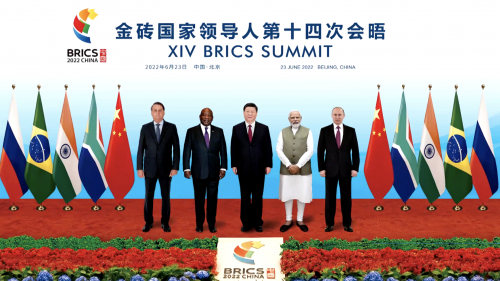
GÉOPOLITIQUE
De l’économie à l’espace : Conclusions du 14e sommet des BRICS (Russie, Inde, Chine, Afrique du Sud)
Comme les nations BRICS ont une population combinée de 3,23 milliards d’habitants et un PIB combiné de plus de 23 000 milliards de dollars, elles offrent le bloc le plus puissant pour rivaliser et/ou défier la domination mondiale de l’Occident. Un tel défi n’est bien sûr pas dans le domaine militaire, car les BRICS sont un bloc économique, ce qui signifie que les discussions autour de la guerre en Ukraine ne portaient pas sur un front unifié de soutien à Moscou, mais plutôt sur la façon dont les sanctions occidentales contre la Russie rendent nécessaire la mise en place immédiate d’un modèle et d’un ordre économiques mondiaux alternatifs.
Breizh-info.com
https://www.breizh-info.com/2022/06/26/188711/de-leconomi...
Kaliningrad, nouveau casus belli pour la Russie ?
L’exclave de Kaliningrad, ville natale d’Immanuel Kant devenue soviétique en 1945 avec l’expulsion de sa population germanique, pourrait-elle devenir un futur théâtre de guerre entre la Russie et l’Occident ? Abritant la principale base navale de la flotte baltique russe ainsi que des missiles de dernière génération, la région est séparée du reste de la Russie (ainsi que de la Biélorussie, alliée à Moscou) depuis l’accession des Pays Baltes à l’indépendance en 1991. La récente annonce par la Lituanie de l’application des sanctions de l’UE contre certaines marchandises russes transitant vers Kaliningrad vient de provoquer une réaction très vive de la part de Moscou.
leselectiondujour.com
https://www.laselectiondujour.com/kaliningrad-nouveau-cas...
Position de la Turquie dans la guerre en Ukraine
Les ministres des affaires étrangères, Lavrov pour la Russie et Çavuşoğlu pour la Turquie, se sont rencontrés à Ankara le 8 juin pour lancer un projet d’établissement d’un corridor humanitaire d’approvisionnement en grains depuis le port d’Odessa. Cela avait pour objectif d’enrayer la crise mondiale d’approvisionnement en matières premières alimentaires qui se profile en raison des suites de l’invasion de l’Ukraine par la Russie.
Atlantico.fr
https://atlantico.fr/article/decryptage/position-de-la-tu...
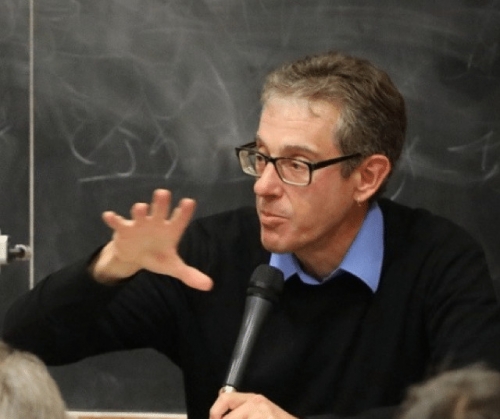
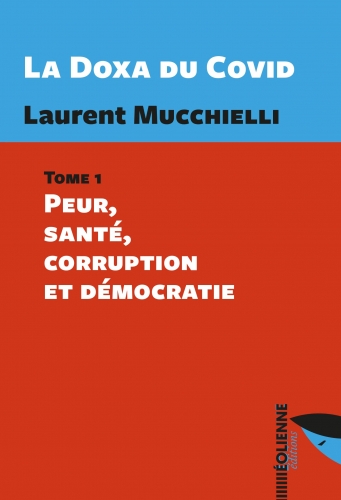
LECTURE
Titre :
La doxa du Covid – Tome 1 : Peur, santé, corruption et démocratie, de Laurent Mucchielli. Éditions Éolienne, 129 p., 2022.
Auteur :
Laurent Muchielli est sociologue et directeur de recherche au CNRS. Homme de gauche, il a découvert la doxa sanitaire en travaillant avec beaucoup d’honnêteté sur le sujet.
Présentation :
C’est une excellente synthèse des aberrations et de la corruption qui ont émergé depuis la crise sanitaire due au covid. D’une manière très rationnelle, il décrit comment on en est arrivé à empêché les médecins de soigner, les hôpitaux de bien travailler, l’incompétence sinon la nullité des « élites » et la corruption gigantesque générée par les laboratoires pharmaceutiques au niveau mondial. Sans oublier les chasses aux sorcières et l’omnipotence des médias. Le tout au niveau occidental.
Extraits :
« La matrice de cette narration que nous appelons ‘’doxa du covid’’ peut se résumer de la façon suivante : 1) une pandémie menace soudainement la survie de l’humanité entière, 2) il n’existe aucune thérapeutique pour guérir les malades, 3) il faut confiner la totalité des populations, 4) la délivrance viendra uniquement d’un vaccin. […] Le ‘’complotisme’’ est l’envers du miroir de la doxa, son ennemi intime, et il est devenu au fil du temps l’argument de ceux qui n’en ont pas »
« Dès le départ, la gestion de la crise sanitaire s’est caractérisée par la mise à l’écart et/ou la mise au pas de toutes les instances administratives concernées et de tous les principes de ce que l’on appelait jusque-là la ‘’démocratie sanitaire’’ au profit d’une concentration du rôle de l’expertise et du pouvoir de décision dans les mains d’une petite équipe d’ ‘’experts’’ entourant directement le pouvoir exécutif, lequel prétendra dès lors en parler au nom de la Science ou d’un prétendu ‘’consensus scientifique’’. Il s’agissait en réalité de simples arguments d’autorité, qui serviront à justifier toutes les décisions, même les plus contradictoires d’un moment à l’autre. »
« Au cours des quatre dernières décennies, le champ des politiques mondiales de santé a donc vu s’affirmer un partenariat de plus en plus actif entre l’OMS et des fondations privées au premier rang desquelles la super-puissance que constitue la fondation Gates, leader mondial d’un ‘’philanthrocapitalisme’’ plus puissant que beaucoup d’États de la planète. »
MONDIALISME/BIOTERRORISME/DICTATURE
Le totalitarisme du contre-naturel
Il existe une vidéo de la BBC où Angelina Jolie - de son propre aveu membre d'une secte sataniste - apprend aux enfants à manger des insectes. Qui plus est, elle leur montre comment manger un scorpion, après avoir retiré "la partie dure" ; et elle le mord elle-même, en leur assurant : "C'est très bon". Puis elle raconte aux enfants que les insectes faisaient partie du régime alimentaire habituel et qu'en temps de guerre, ils sauvaient les gens de la famine.
euro-synergies.hautetfort.com
http://euro-synergies.hautetfort.com/archive/2022/06/27/l...
La fin de la mondialisation et les Verts, fossoyeurs de l'environnement
Lorsque Trump a quitté le pouvoir, Bruxelles a sans doute espéré que la politique américaine vis-à-vis de la Chine changerait sous la houlette de Joe Biden, accueilli comme un sauveur. Mais la politique anti-chinoise n'était pas une lubie de Trump, mais un objectif géopolitique des élites américaines, et Biden n'a pas seulement maintenu le cap de Trump, il l'a même renforcé. C'est pourquoi l'UE, fidèle vassale de Washington, s'est alignée sur la ligne anti-chinoise américaine immédiatement après le changement de pouvoir à Washington, même si elle est bien plus dommageable pour l'UE que pour les États-Unis sur le plan économique.
euro-synergies.hautetfort.com
http://euro-synergies.hautetfort.com/archive/2022/06/23/l...
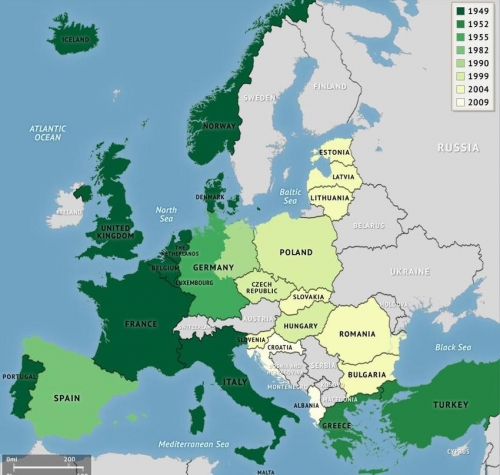
OTAN
L’Empire va étendre l’OTAN en réponse à une guerre causée par l’expansion de l’OTAN
Le président turc Erdoğan a officiellement retiré l’objection d’Ankara à l’ajout de la Finlande et de la Suède à l’OTAN, les trois pays ayant signé un mémorandum trilatéral lors du sommet de l’OTAN à Madrid.
Lesakerfrancophone.fr
https://lesakerfrancophone.fr/lempire-va-etendre-lotan-en...
RÉFLEXIONS
Cour suprême des États-Unis : la guerre civile culturelle
La fascination de nos élites pour les USA, y compris celles qui se disent d’extrême gauche est quelque chose de quand même impressionnant. Surtout que cela s’enracine dans l’ignorance d’une réalité : les États-Unis sont un État fédéral. Contrairement à ce qu’on pense, le pouvoir de Washington et en particulier celui du président n’est pas très étendu par rapport à celui des États fédérés. Et la décision qui vient d’être rendue par la Cour suprême relève de cette articulation. Revenant sur sa jurisprudence antérieure, elle a considéré que la question de l’IVG était de la compétence des États et qu’il ne lui appartenait pas de dresser sur cette question, un cadre contraignant supérieur à celui de ses législations locales. Raisonnement identique à celui fait par la Cour de Justice de la Communauté européenne qui a dit que cette question était de la compétence des législations internes des états membres de l’UE. Et d’ailleurs, à l’aide des mêmes motivations que celles adoptées par la cour suprême américaine. C’est donc désormais l’affaire des Américains, chacun dans leurs États respectifs.
Vududroit.com
https://www.vududroit.com/2022/06/cour-supreme-des-etats-...


RUSSIE
Les Voiles Ecarlates de la jeunesse russe
Ce n’est pas seulement le titre d’un album de Largo Winch. « Les Voiles Ecarlates », qui ont encore été déployées sur la Néva la nuit du 24 au 25 juin dernier, sont une des plus belles manifestations destinées à la jeunesse russe : une grande fête organisée pour les bacheliers sur la Place du Palais à Saint-Pétersbourg. Le clou du spectacle est l’apparition d’un navire aux voiles écarlates au milieu d’un spectacle pyrotechnique grandiose qui se reflète dans les eaux de la Néva, symbole de l’espoir, des rêves et d’un futur radieux pour les jeunes diplômés qui entrent dans l’âge adulte. Retransmis en direct à la télévision, ce spectacle nocturne auquel ont participé ce week-end quelque 65 000 bacheliers venus de tout le pays, est regardé tous les ans par des millions de Russes.
Geopragma.fr
SANTÉ/INTERDICTIONS/LIBERTÉS
Les vaccins anti-Covid prolongent-ils la contagiosité ?
Une étude de Boucau et al., menée aux USA et publiée par le NEJM sous la forme d’une « lettre à l’éditeur », indique que les personnes boostées restent plus longtemps contagieuses que les non vaccinées. Les auteurs ont mesuré, de deux façons différentes, la quantité de virus susceptible de se propager, présente dans les fosses nasales dans un délai de 5, 10, 15 et 20 jours après un premier tests PCR positif.
Covid-factuel.fr
https://www.covid-factuel.fr/2022/07/01/les-vaccins-anti-...
UKRAINE
Le retour des assassins de la mémoire
Il y a un point étrange qui mérite développement : celui du déni de l’importance du courant ultranationaliste, voire néonazi existant en Ukraine, et son poids sur la vie politique du pays. Parce que l’on assiste à la négation d’une évidence pourtant reconnue il y a encore quelques mois par ceux qui aujourd’hui nous assurent que tout va bien et qu’il n’y a là que du folklore. Ce qui est invraisemblable, c’est que cette propagande débouche sur un véritable négationnisme qui porte, excusez du peu, sur les génocides de la Seconde Guerre mondiale ! Le paroxysme a été atteint en début de mois lors des commémorations du débarquement allié en Normandie, lorsque la presse a publié en première page une photo de la cérémonie officielle où l’on voyait le drapeau ukrainien déployé au milieu des drapeaux alliés sur la plage, salué dans le ciel par la patrouille de France. Pardon ?
Vududroit.com
https://www.vududroit.com/2022/06/le-retour-des-assassins...
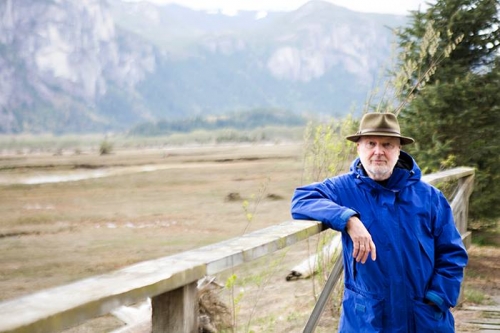
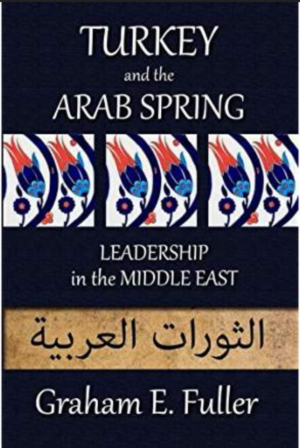
Quelques réflexions difficiles sur l’après-Ukraine
Cette tribune est la version française du texte de Graham Fuller « Some hard thoughts about post Ukraine » publié sur son site (https://grahamefuller.com/some-hard-thoughts-about-post-u...) le 19 juin 2022, republié avec l’autorisation de l’auteur (traduction CF2R). Graham E. Fuller est un ancien officier de renseignement américain, ayant successivement servi à la CIA – il a été chef de poste à Kaboul –, puis au National Intelligence Council, dont il fut vice-président. Il a ensuite rejoint la Rand Corporation en tant que politologue senior spécialisé dans le Moyen-Orient. Il est aujourd’hui professeur d'histoire à l'Université Simon Fraser. Il est l'auteur de plusieurs livres consacrés aux questions géopolitiques du monde arabe.
CF2R.org
https://cf2r.org/tribune/quelques-reflexions-difficiles-s...
La guerre en Ukraine
Voici le texte du Général de division (2S) Jean-Claude Allard, chercheur associé à l’IRIS, qui analyse de façon précise et détaillée le contexte géopolitique créé par l’agression russe et le plan opératif de la Russie.
geopragma.fr
https://geopragma.fr/la-guerre-en-ukraine/
UNION EUROPÉENNE
Extraits révélateurs du résumé de l’étude…
Fdesouche.com
https://www.fdesouche.com/2022/06/29/le-parlement-europee...
Les recommandations de l’étude “La protection contre le racisme, la xénophobie et la discrimination raciale, et le plan d’action de l’UE contre le racisme” pour le Parlement européen.
Fdesouche.com
https://www.fdesouche.com/2022/06/29/une-etude-pour-le-pa...
12:48 Publié dans Actualité, Affaires européennes | Lien permanent | Commentaires (0) | Tags : actualité, france, europe, affaires européennes, journaux, médias, presse |  |
|  del.icio.us |
del.icio.us |  |
|  Digg |
Digg | ![]() Facebook
Facebook
samedi, 02 juillet 2022
Guerre cognitive: le cerveau du citoyen est le nouveau champ de bataille

Guerre cognitive: le cerveau du citoyen est le nouveau champ de bataille
"Le but est de transformer tout le monde en une arme"
Elze van Hamelen
Source: https://deanderekrant.nl/nieuws/cognitieve-oorlogvoering-...
L'OTAN a ajouté un nouveau domaine aux domaines traditionnels de la guerre - terre, mer, air, espace et cyberespace - "le domaine cognitif". Il ne s'agit pas seulement de véhiculer certaines idées ou certains comportements, comme dans la propagande traditionnelle et les opérations psychologiques, mais de modifier la cognition - d'influencer le processus par lequel nous arrivons à des idées, des intuitions, des croyances, des choix et des comportements. La cible n'est pas de prime abord une armée ennemie, mais le citoyen. Y compris ses propres citoyens, qui sont utilisés comme armes dans les combats.
"La guerre cognitive est l'un des sujets les plus discutés au sein de l'OTAN", a déclaré le chercheur François du Cluzel lors d'une table ronde le 5 octobre 2021. Il a rédigé un article de premier plan intitulé "Cognitive Warfare" pour le groupe de réflexion Nato Innovation Hub en 2020. Bien que la guerre cognitive recoupe la guerre informationnelle, la propagande classique et les opérations psychologiques, Du Cluzel souligne que la guerre cognitive va beaucoup plus loin. Dans une guerre de l'information, on essaie "simplement" de contrôler le flux d'informations. Les opérations psychologiques consistent à influencer les perceptions, les croyances et les comportements. Le but de la guerre cognitive est de "transformer tout le monde en arme", et "le but n'est pas d'attaquer ce que les individus pensent, mais comment ils pensent". Du Cluzel : "C'est une guerre contre notre cognition - la façon dont notre cerveau traite les informations et les transforme en connaissances. Il cible directement le cerveau". La guerre cognitive consiste à "pirater l'individu", grâce auquel le cerveau peut être "programmé".

Pour exercer cette influence, on fait appel à presque tous les domaines de connaissance imaginables : psychologie, linguistique, neurobiologie, logique, sociologie, anthropologie, sciences du comportement, "et plus encore". "L'ingénierie sociale commence toujours par une compréhension de l'environnement et de la cible ; le but est de comprendre la psychologie de la population cible", écrit Du Cluzel. La base reste les techniques traditionnelles de propagande et de désinformation, qui sont renforcées par la technologie actuelle et les progrès des connaissances. "Le comportement peut désormais être prédit et calculé dans une telle mesure", déclare Du Cluzel, "que l'économie comportementale pilotée par l'IA devrait être classée comme une matière scientifique (hard science) plutôt que comme une matière alpha (soft science).
Comme presque tout le monde est actif sur Internet et les médias sociaux, les individus ne sont plus des destinataires passifs de la propagande: avec la technologie d'aujourd'hui, ils participent activement à sa création et à sa diffusion. La connaissance de la façon de manipuler ces processus "est facilement transformée en arme". Du Cluzel cite en exemple le scandale de Cambridge Analytica. Grâce aux données personnelles fournies volontairement à Facebook, des profils psychologiques individuels détaillés ont été établis pour une large population. Normalement, ces informations sont utilisées pour des publicités personnalisées, mais dans le cas de Cambridge Analytica, ces informations ont été utilisées pour bombarder des électeurs douteux avec une propagande personnalisée. La guerre cognitive "exploite les faiblesses du cerveau humain", en reconnaissant l'importance du rôle des émotions dans la conduite de la cognition. La cyberpsychologie, qui cherche à comprendre l'interaction entre les humains, les machines et l'IA (intelligence artificielle), sera de plus en plus importante dans ce domaine.

D'autres technologies prometteuses qui peuvent être déployées sont les neurosciences et les technologies : NeuroS/T et NBIC (nanotechnologie, biotechnologie, technologie de l'information, science cognitive), "y compris les développements en matière de génie génétique". Les NeuroS/T peuvent être des agents pharmacologiques, des couplages cerveau-machine, mais aussi des informations psychologiquement perturbantes. En influençant le système nerveux par la connaissance ou la technologie, on peut provoquer des changements dans la mémoire, la capacité d'apprentissage, les cycles de sommeil, la maîtrise de soi, l'humeur, la perception de soi, la capacité de prise de décision, la confiance et l'empathie, la forme physique et la vigueur. Du Cluzel écrit : "Le potentiel de la NeuroS/T pour créer une perspicacité et la capacité d'influencer la cognition, les émotions et le comportement des individus est d'un intérêt particulier pour les services de sécurité et de renseignement, et les initiatives militaires et de guerre".
La guerre sur les processus cognitifs des individus représente un changement radical par rapport aux formes traditionnelles de guerre, qui, au moins en principe, cherchent à garder les civils hors de danger. Dans la guerre cognitive, le citoyen est la cible et son cerveau le champ de bataille. Elle change la nature de la guerre, les acteurs, la durée et la façon dont la guerre est gagnée.
Selon Du Cluzel, "la guerre cognitive a une portée universelle, de l'individu aux États et aux sociétés multinationales". On ne gagne plus un conflit en occupant un territoire, ou en ajustant les frontières sur une carte, car "l'expérience de la guerre nous enseigne que si la guerre dans le domaine physique peut affaiblir une armée ennemie, elle ne permet pas d'atteindre tous les objectifs de la guerre". Avec la guerre cognitive, l'objectif final se déplace : "Quels que soient la nature et le but de la guerre elle-même, elle se résume en fin de compte à un affrontement entre des groupes qui veulent quelque chose de différent, et la victoire signifie donc la capacité d'imposer le comportement souhaité à un public choisi". Il s'agit donc, en fait, d'opérer une conversion idéologique dans la population cible.
L'ennemi n'est pas seulement les civils en territoire occupé ou ennemi - mais aussi leurs propres citoyens, qui, selon les estimations de l'OTAN, sont des cibles faciles pour les opérations cognitives des parties ennemies. "L'être humain est le maillon faible. Il faut le reconnaître afin de protéger le capital humain de l'OTAN".

Cette "protection" va très loin : "L'objectif de la guerre cognitive n'est pas seulement de nuire aux soldats, mais aussi aux sociétés. Cette façon de mener la guerre ressemble à une "guerre de l'ombre" et nécessite l'implication de l'ensemble du gouvernement pour la combattre". La guerre peut donc être menée avec ou sans les militaires, et Du Cluzel poursuit : "La guerre cognitive est potentiellement sans fin, car pour ce type de conflit, vous ne pouvez pas conclure un traité de paix, ni signer une reddition".
Sources :
https://www.innovationhub-act.org/sites/default/files/202... (PDF)
https://thegrayzone.com/2021/10/08/nato-cognitive-warfare...
https://hcss.nl/wp-content/uploads/2021/03/Behavior-Orien... (PDF)
18:27 Publié dans Actualité, Militaria | Lien permanent | Commentaires (1) | Tags : guerre, guerre cognitive, actualité |  |
|  del.icio.us |
del.icio.us |  |
|  Digg |
Digg | ![]() Facebook
Facebook
Naissance d'une route commerciale historique
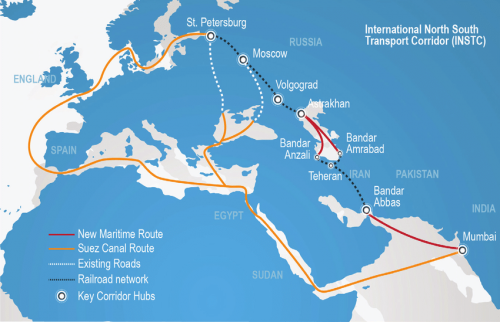
Naissance d'une route commerciale historique
Parth Satam
Source: https://katehon.com/ru/article/znakovyy-torgovyy-marshrut
L'Inde, la Russie et l'Iran font des affaires par le biais du corridor INSTC alors que New Delhi continue d'échapper à la pression américaine
Essais de transport de marchandises russes depuis Astrakhan vers un port du sud de l'Iran jusqu'à leur destination au port Jawaharlal Nehru de Mumbai. L'Autorité portuaire Jawaharlal Nehru à Mumbai (JNPA), qui fait partie du Corridor international de transport Nord-Sud (INSTC), marque les premiers pas de l'Inde, qui rejoint l'axe émergent Russie-Iran-Inde.
Ceci intervient dans un contexte de fissures dans les relations entre l'Inde et les Etats-Unis à propos du commerce croissant du pétrole avec la Russie et du refus de rejoindre le camp occidental pour critiquer Moscou ; en même temps, l'Inde est sur la même longueur d'onde que la Chine à propos de ce qui est perçu comme une pression unilatérale des Etats-Unis forçant le pays à prendre parti dans la rivalité géopolitique russo-américaine.
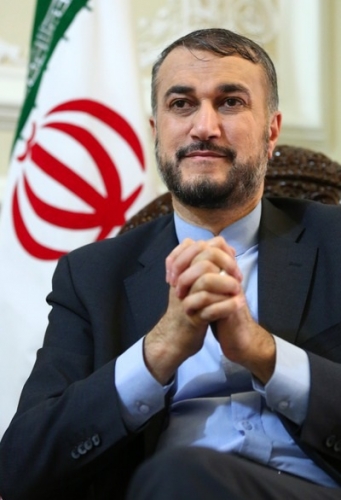
Le processus a débuté après la visite du ministre iranien des Affaires étrangères, Hossein Amir-Abdollahian (photo), en Inde le 8 juin et une conversation téléphonique entre le président russe Vladimir Poutine et le président iranien Ebrahim Raisi le même jour.
Une partie du corridor international de transport Nord-Sud (INSTC) reliant les marchés de la Russie, de la Perse et de l'Asie peut être considérée dans le contexte plus large de changements d'alliances et d'arrangements pragmatiques, motivés principalement par les aléas économiques de l'ère Covid et les sanctions anti-russes.
Les cargaisons sortantes sont deux conteneurs de 40 pieds de lamelles de bois, d'un poids total de 41 tonnes, qui ont été chargés à Saint-Pétersbourg et sont destinés à Astrakhan, où ils seront rechargés dans le port de Solyanka.
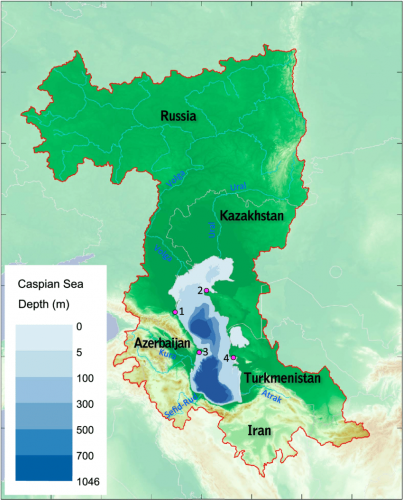
Ensuite, en traversant la mer Caspienne, ils atteindront le port iranien d'Enzeli avant de se diriger vers Bandar Abbas au sud et la dernière étape du voyage vers JNPA (ou Nhava Sheva), selon Dariush Jamali, directeur du terminal commun irano-russe à Astrakhan.

Dans le même temps, l'Iran semblait promouvoir son propre projet régional parallèle sous la forme du chemin de fer Khaf-Herat.
La réduction du voyage de 40 à 25 jours, car elle permet d'éviter le trajet plus long par le canal de Suez et de réduire les frais de transport maritime de 25 %, est importante dans le contexte actuel de forte inflation.
Le pragmatisme consistant à mettre de côté des positions différentes pour une raison plus substantielle a pu être observé dans la touche très sensible d'Amir-Abdollahan sur les questions de minorités en Inde.
"Téhéran et New Delhi s'accordent sur la nécessité de respecter les religions divines et les sanctuaires islamiques", a-t-il tweeté, ajoutant : "L'Iran et l'Inde sont déterminés à porter leurs relations à un niveau supérieur."
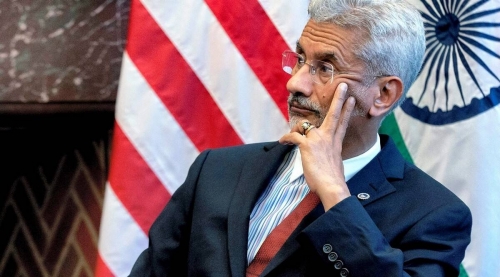
Heureux de rencontrer le Premier ministre Modi, le ministre des Affaires étrangères Jaishankar (photo) et d'autres responsables indiens pour faire progresser notre dialogue stratégique bilatéral. Téhéran et New Delhi s'accordent sur la nécessité de respecter les religions divines et les sanctuaires islamiques et d'éviter les déclarations controversées. Nous sommes déterminés à porter les relations à un niveau supérieur.
Le même jour, lors d'un appel téléphonique entre Poutine et Raisi, des accords ont été conclus sur la mise en œuvre de "projets communs dans le domaine de l'économie et du commerce", a indiqué le Kremlin dans un communiqué.
Auparavant, l'Inde avait cherché de manière contre-productive à construire des coalitions régionales. Étant à l'apogée de son alliance stratégique avec les États-Unis en 2020, elle n'a pas pu obtenir les conditions financières du projet Chabahar en raison des sanctions américaines contre l'Iran concernant l'accord nucléaire sous l'administration de Donald Trump. Cela a conduit l'Iran à exclure le pays du projet en juin 2020.
Ainsi, l'objectif déclaré de l'Inde d'atteindre l'Asie centrale (via Chabahar) n'a pu être atteint en raison de la pression occidentale. Il y a 73 ans, les Britanniques sortants ont partitionné le sous-continent, divisant l'Asie centrale, du Sud et de l'Ouest pour limiter l'influence de l'Union soviétique dans la région.
L'Inde avait une frontière terrestre avec l'Iran et l'Afghanistan, et un plan élaboré pour pénétrer en Asie centrale aurait été dangereux pour les puissances maritimes. L'intégration des terres par la continuité naturelle de la vaste masse terrestre eurasienne a sapé les routes commerciales maritimes, qui, selon les historiens, étaient un outil majeur de la domination coloniale occidentale.
Aujourd'hui, l'Inde maintient ses relations avec le Pakistan à un niveau acceptable, et la rhétorique de son soutien aux militants du Cachemire et aux acteurs terroristes non étatiques est presque absente chez ses dirigeants politiques.
Cela fait également intervenir les Talibans (interdits en Russie - Ndlr), un signe que l'Inde se rapproche des vues régionales de l'Asie centrale, de la Russie, de l'Iran et de l'Asie occidentale et accepte l'existence des Talibans comme une réalité politique. Il appelle à ignorer la doctrine ultra-conservatrice et orthodoxe du groupe au nom d'un véritable intérêt pour la stabilité en Afghanistan.
Pendant ce temps, les alliés des États-Unis considèrent que Washington développe un projet de plus en plus protectionniste, indépendamment des convictions idéologiques, républicaines ou démocrates, qui ne leur viendra pas en aide en cas de conflit et évitera toute nouvelle intervention militaire.
Le changement d'alliances mondiales provoqué par le conflit Russie-Ukraine est visible dans les positions changeantes d'Israël et de l'Iran, qui se sont déplacés entre les camps russe et américain.
Par exemple, Israël est passé du statut d'intermédiaire privilégié de Poutine, transmettant les pensées de ce dernier à l'Europe, aux États-Unis et à l'Ukraine dans les premiers jours du conflit, à celui de critique le plus sévère de Moscou en échange du blocage par les États-Unis des négociations sur le programme nucléaire iranien.
En mars, les États-Unis ont désespérément tenté de conclure l'accord pour s'assurer des approvisionnements supplémentaires en pétrole iranien et faire baisser les prix mondiaux du pétrole.
L'Iran a alors vu une opportunité et a flirté avec les États-Unis pendant un certain temps, s'éloignant de sa doctrine d'"économie de résistance" et de "pivot vers l'Est" - résister aux sanctions dévastatrices des États-Unis au détriment d'une coopération accrue avec les principales puissances eurasiennes - pour engager l'Occident dans des négociations nucléaires et obtenir un certain soulagement économique. Il est revenu à une position dure après que les États-Unis ont fait pression sur l'Iran et ont bloqué l'accord sous la pression israélienne.
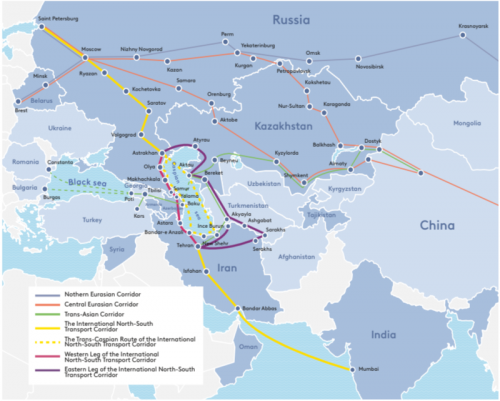
L'Iran et l'Inde ont également constaté que les commentaires du président Joe Biden et de son secrétaire à la défense Lloyd Austin ("cet homme ne peut pas rester au pouvoir", "l'objectif est d'affaiblir la Russie") visaient davantage à affronter Moscou qu'à défendre l'Ukraine dans la guerre par procuration soutenue par les États-Unis.
Les succès de la Russie à Marioupol, où plus de 2000 combattants néonazis se sont rendus dans l'aciérie Azovstal, et la perte actuelle de "100 soldats ukrainiens chaque jour" dans le Donbass, selon le président Vladimir Zelensky lui-même, augurent d'un probable triomphe de la Russie.
Par ailleurs, l'Inde n'a pas encore pleinement soutenu l'axe Russie-Iran-Chine, comme le prouve son adhésion au groupement Israël-Inde-États-Unis-Émirats arabes unis (I2U2), où Israël et les EAU partagent une méfiance mutuelle à l'égard de l'Iran.
Les liens renforcés de l'Inde avec les Émirats, où ces derniers ont suscité l'indignation avec les commentaires controversés de Nupur Sharma, porte-parole suspendu du BJP, les relations tendues des Émirats avec Israël après les Accords d'Abraham de 2020, et l'apaisement désespéré de Washington envers Abu Dhabi pour augmenter la production de pétrole après qu'il ait été indigné par l'échec du premier à condamner les attaques de Husi soutenues par l'Iran, rendent la perspective plus sérieuse.
17:29 Publié dans Actualité, Eurasisme, Géopolitique | Lien permanent | Commentaires (0) | Tags : actualité, politique internationale, iran, russie, inde, instc, eurasie, eurasisme |  |
|  del.icio.us |
del.icio.us |  |
|  Digg |
Digg | ![]() Facebook
Facebook
Le syndrome Churchill et la catastrophique guerre occidentale

Le syndrome Churchill et la catastrophique guerre occidentale
Nicolas Bonnal
On a vu le niveau de débilité, d’incompétence et même d’incorrection, vestimentaire ou autre, des leaders du G7. Macron est en perdition, Trudeau aussi et Biden va prendre une raclée, n’en déplaise aux catastrophistes. Mais mon sujet est le syndrome Churchill : Churchill est l’homme politique le plus nul possible (voir le livre de John Charmley) sur le plan pratique, et qui ne se sentait à l’aise que dans des guerres totales et d’extermination contre les Allemands, qui étaient la cible de l’époque. Or sur ordre des néocons beaucoup plus inspirés par Churchill que par Strauss les hommes politiques nuls ou même obscènes que nous avons en Occident veulent se lancer dans une guerre éternelle de type orwellien contre la Russie ; dans l’espoir que ces chefs de guerre insensés seront célébrés par des foules toujours plus abruties. Ils oublient que Churchill fut jeté dehors par ses électeurs british en 1945, preuve sans doute que la satisfaction n’était pas à la hauteur des aspirations du chéri des journalistes néocons.
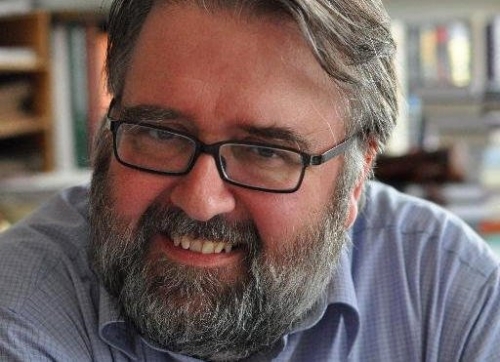
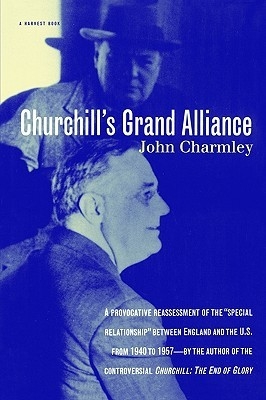
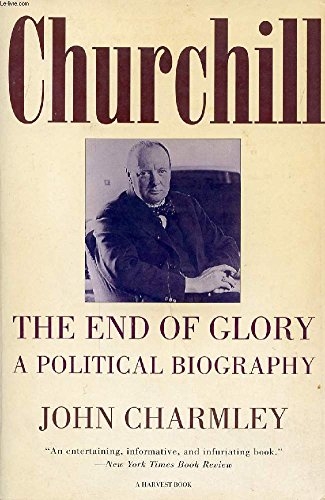
On va citer le capitaine Grenfell, ami de John Buchan, sur les buts aberrants de Churchill, car ce dernier se met à déifier le stalinisme pour écraser l’hitlérisme (qui lui a proposé dix fois la paix). Je cite la traduction de mes amis du Saker francophone :
« Mais, en supposant que la suppression par la force des tyrannies dans des pays étrangers constituât le devoir des Britanniques, pourquoi trouvait-on une autre tyrannie, partenaire des Britanniques dans ce processus? La tyrannie communiste, en Russie, était pire que la tyrannie nazie en Allemagne ; les conditions générales de vie du peuple russe était largement inférieures à celles des Allemands ; le travail de forçat en Russie était employé à grande échelle, en comparaison à la même pratique sur le sol allemand, la cruauté n'y avait rien à envier à celle du côté allemand, et de nombreux observateurs la décrivent même comme bien plus importante. La technique répugnante des purges, des interrogatoires brutaux amenant à "confession", et l'espionnage domestique généralisé était déjà à l'œuvre en Russie depuis des années avant que Hitler n'introduise ces mêmes méthodes en Allemagne, qu'il copia probablement de l'exemple russe. Mais M. Churchill encensait la Russie comme allié des plus bienvenus, quand elle se trouva embarquée dans la guerre. »
Plus loin Grenfell souligne le bilan effrayant de cette guerre pour l’Angleterre et son empire (qui n’a pas été détruit par le nazisme mais par la guerre contre le nazisme) :
« Il s'était montré prêt à tout sacrifier pour parvenir à cette victoire, et les sacrifices consentis par lui laissèrent ses co-vainqueurs britanniques à moitié ruinés, rationnés, emprisonnés financièrement dans le camp de concentration de leur île, assistant à la désintégration de leur Empire, leur propre pays occupé par des soldats américains, et leur économie nationale dépendant de la charité étasunienne. Tout cela pour quoi ? Pour que les Allemands se vissent désarmés de manière permanente? À peine trois ou quatre années passées, nous suppliions les Allemands de se réarmer aussi rapidement que possible. »

Grenfell a tout résumé là : on a détruit le pays et l’Europe pour rien, pour se retrouver avec une URSS plus forte que jamais. Puis avec une Europe anglo-américaine plus belliciste que jamais…
Ce n’est pas un hasard si Orwell a écrit son 1984 pendant cette triste époque. Voyez l’enfant aux cheveux verts de Losey ; on est passé de l’Angleterre edwardienne maîtresse du monde vers 1900 à un pays prolétarisé et clochardisé y compris sur le plan culturel et sociétal. Et c’est Churchill et sa rage guerrière qui ont précipité tout cela. Mais puisqu’on vous dit qu’il a sauvé le monde et la paix…
Les nazis volaient des territoires ? Grenfell, qui n’est pas russophile pour un sou, remarque justement (et cela explique la claque de Kaliningrad…) :
« Pourtant, à Yalta, il accepta que des centaines de milliers de kilomètres carrés de territoire polonais (sans parler des territoires lettons, lituaniens ou estoniens) fussent accordés, sans l'aval des habitants, aux gâteurs d'âme, en désaccord flagrant de la Charte Atlantique que lui-même et le président des USA avaient claironné au monde au cours de la même guerre, et en déni flagrant de la déclaration de guerre britannique contre l'Allemagne de 1939, qui précisément garantissait l'inviolabilité du territoire polonais. En outre, les compensations accordées aux Polonais sous forme de territoire d'Allemagne orientale, et l'allocation de la moitié du reste de l'Allemagne à une occupation russe, eurent pour effet de supprimer la zone tampon historique entre Moscou et les pays bordant l'Atlantique. »
Et Grenfell d’ajouter justement :
« Aucune raison réaliste n'existait de considérer l'alliance de la Russie comme loyale et digne de confiance. »
Sur Roosevelt, Grenfell rejoint les libertariens américains :
« On peut également admettre que le président Roosevelt, à cette époque, était dans un état d'hallucination fascinée quant à la pureté virginale des motivations du maréchal Staline… »
Revenons à la situation présente : nos « élites » (ouaf ouaf) s’inspirent d’un homme qui fut prêt à tout pour gagner une guerre déshonorante (un million de civils allemands carbonisés sous les bombes) et déplorable sur le plan des résultats.
Comprenez donc qu’ils vous affameront, vous priveront d’eau (cf. le ministre teuton), d’électricité, de bagnole, de liberté (mais pas de vaccin !), et qu’ils continueront dans leur aberration guerrière jusqu’au bout. Tout sera bon pour exterminer la Russie qui a remplacé l’Allemagne. Mais restons optimistes : le peuple se réveillera !
Source:
Grenfell – Haine inconditionnelle (lesakerfrancophone.fr)
16:58 Publié dans Actualité, Histoire | Lien permanent | Commentaires (0) | Tags : nicolas bonnal, winston churchill, histoire, actualité, bellicisme, royaume-uni, angleterre, grande-bretagne |  |
|  del.icio.us |
del.icio.us |  |
|  Digg |
Digg | ![]() Facebook
Facebook
La contre-révolution rénovée au XXIe siècle

La contre-révolution rénovée au XXIe siècle
par Georges FELTIN-TRACOL
À l’automne 2021, cible d’une infâme campagne de dénigrement violent entretenue par les antifas, la préfecture et la municipalité du dénommé Christophe Béchu, une communauté culturelle et sociale appelée l’Alvarium se voit dissoudre par le gouvernement. Cette dissolution honteuse n’empêche pas l’une des figures de proue de la « ruche » d’Angers, Jean-Eudes Gannat, de publier Pourquoi l’Alvarium. D’une politique anti-naturelle à la sécession (2021, 152 p., 13,50 €).
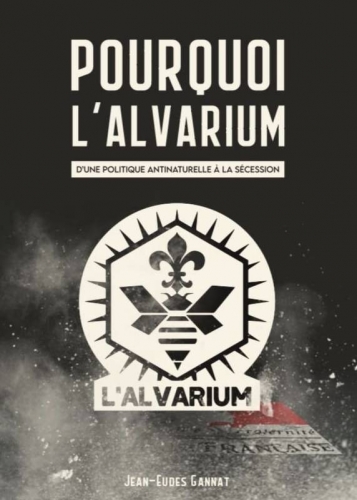

Infatigable défenseur de la cause nationale et angevine, Jean-Eudes Gannat (photo) appartient à une famille d’impeccables Français. En cette terre de l’Ouest où plane toujours le souvenir des massacres de 1793 – 1794 malgré une propension certaine de la population à se donner des élus macroniens, les militants de l’Alvarium rénovent l’activisme contre-révolutionnaire. Contre la malbouffe industrielle et américanisée se crée le Cercle Ragueneau.


Pour préserver les paysages, les églises et les villages de caractère agit Anjou Patrimoine. Le conflit dans le Caucase entre l’Arménie et l’Azerbaïdjan au sujet de l’Artsakh suscite l’ONG Solidarité Arménie. L’éphémère Ruche du Septième Art organise quelques soirées cinématographiques non conformistes. Le groupe cultive pendant plusieurs mois un potager dont les produits reviennent ensuite aux SDF au cours des maraudes. Anjou Pèlerinages relance les pèlerinages locaux. À côté du catéchisme, l’Alvarium propose des leçons d’italien, de guitare et des activités physiques dans une salle de sport. L’engagement politique n’est pas oublié avec une belle candidature aux élections départementales en 2021.
Jean-Eudes Gannat avoue volontiers que certaines des initiatives de l’Alvarium se heurtent à la réalité. Il y a par exemple l’occupation non conforme d’un immeuble vétuste de la rue Thiers d’Angers surnommé le « localo ». Une fois réhabilitée, la maison accueille des sans-abris que la vie dans la rue a complètement désocialisés. Cette présence soulève l’indignation de la presse locale et entraîne l’expulsion finale de ses habitants. À Lyon, un tribunal vient au contraire d’approuver l’occupation illégale d’un bâtiment par de supposés « mineurs étrangers isolés » dont certains sont au moins trentenaires…
Entre Génération Identitaire au recrutement CSP + et le Bastion social nationaliste-révolutionnaire assumé, l’Alvarium développe une « troisième voie » au sein du tercérisme français. Si cette sympathique structure militante aux références chrétiennes explicites se réclame de Dominique Venner, elle « affirme son refus du chauvinisme jacobin, son refus du nationalisme étriqué, du souverainisme désincarné ou du racialisme bas de front ». Elle applique l’« intersectionnalité » des questions identitaire, sociale et écologique. Pour l’auteur, « la plupart des maux du monde moderne seraient sérieusement combattus si chacun cultivait son bout de terre ». La principale nuisance idéologique demeure la décadence républicaine. Par son histoire et ses pratiques, « la République, c’est la haine ». Jean-Eudes Gannat voit dans cette abomination historico-politique « un régime destructeur de société et producteur de haine ». Ses abjectes valeurs tant encensées par les organes médiatiques d’occupation mentale transforment l’honnête homme en homoncule démocratique. L’auteur ne craint pas de se mettre à dos tous les adeptes des dyssexualités et autres dysdingueries… Toutefois, il ne se veut pas « anti-républicain », mais plutôt « a-républicain » comme il ne faut pas être « anti-moderne » ou « contre-moderne », mais « a-moderne »…
L’objectif de l’Alvarium est de « vivre selon nos normes, atteindre un maximum d’autonomie (alimentaire, économique, etc.). Ni citoyens, ni consommateurs frustrés ». Au sempiternel slogan « Ni gauche ni droite » qui résume le rejet simultané du libéralisme et du marxisme, l’Alvarium incite au séparatisme, ce qui fait de ce livre un excellent complément à Sécession de Yann Vallerie mentionnée dans la chronique n° 26 du 29 mars 2022. Jean-Eudes Gannat théorise ainsi l’inévitable séparation qui « doit connaître plusieurs étapes, ou plusieurs niveaux indépendants; communautarisation intégrale, imposition de nos idées dans le champ politique, pression sur la droite jusqu’à ce qu’elle devienne de droite (donc sécessionniste), et enfin prise de pouvoir “ par tous les moyens, même légaux “ ».

En dépit de l’interdit ministériel, l’Alvarium poursuit chaque jour sa manière d’être originale et réfractaire, car nul ne peut empêcher les rencontres quotidiennes, les invitations réciproques, les communautés affectives immédiates. L’Alvarium et ses membres assurent en effet avoir le cœur chouan et l’esprit sudiste. Cette affirmation sympathique reste néanmoins incomplète. Notre civilisation européenne se fonde sur l’idée ternaire. Au cœur chouan et à l’esprit sudiste, proposons-leur le corps spartiate afin que leur incroyable ruche n’en finisse pas de bourdonner aux oreilles du politiquement correct hexagonal cosmopolite !
GF-T
- « Vigie d’un monde en ébullition », n° 39, mise en ligne le 28 juin 2022 sur Radio Méridien Zéro.
16:36 Publié dans Actualité, Livre, Livre | Lien permanent | Commentaires (0) | Tags : alvarium, angers, initiatives populaires, patrimoine, france, actualité, livre, jean-eudes gannat |  |
|  del.icio.us |
del.icio.us |  |
|  Digg |
Digg | ![]() Facebook
Facebook
vendredi, 01 juillet 2022
L'OTAN et la déstabilisation de l'Asie

L'OTAN et la déstabilisation de l'Asie
Markku Siira
Source: https://markkusiira.com/2022/06/30/nato-ja-aasian-epavakautus/
Dans son nouveau concept stratégique dévoilé cette semaine, l'Organisation du traité de l'Atlantique Nord (OTAN) reconnaît ouvertement que la puissance et l'influence mondiale croissantes de la Chine remettent en cause l'alliance et que le rapprochement de Pékin avec Moscou va à l'encontre des intérêts occidentaux. Les puissances rivales devraient toujours être maintenues en état de faiblesse et de soumission.
"Les ambitions affichées et les mesures coercitives de la République populaire de Chine remettent en cause nos intérêts, notre sécurité et nos valeurs", indique le document publié lors du sommet de Madrid. Selon le texte de l'OTAN, la Chine "cherche à subvertir l'ordre international fondé sur des règles, y compris dans les domaines spatial, cybernétique et maritime".
Une telle affirmation de la part d'une alliance militaire dirigée par les États-Unis qui, depuis des décennies, menace la sécurité mondiale par ses politiques et actions coercitives et expansionnistes, a provoqué à la fois l'amusement et la colère de la Chine.
Le plan de guerre de l'OTAN visant à bloquer les mouvements de la Russie est au cœur du conflit actuel entre la Russie et l'Ukraine. Ayant causé suffisamment de dégâts avec ses opérations en Europe et en Asie occidentale, l'OTAN semble regarder de plus en plus vers l'est, vers la région Asie-Pacifique et la Chine en particulier.
Bien que l'OTAN ait déclaré publiquement à plusieurs reprises qu'elle reste une alliance régionale et qu'elle ne cherche pas à s'étendre géopolitiquement à d'autres régions, l'alliance militaire dirigée par les États-Unis a, ces dernières années, lancé à plusieurs reprises des attaques dans la région Asie-Pacifique et effectué des exercices navals provocateurs à proximité des eaux chinoises, provoquant des tensions et des litiges.
Comme en prévision de futures confrontations "indo-pacifiques", les dirigeants du Japon, de la Corée du Sud, de l'Australie et de la Nouvelle-Zélande ont également été invités au sommet de l'OTAN, cette année à Madrid. Tous ont l'objectif tacite mais clair de contenir la puissance et l'influence mondiale sans cesse croissantes de la Chine.
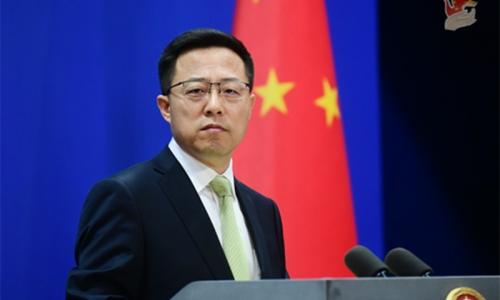
"L'OTAN devrait cesser de tracer des lignes idéologiques, d'attiser la confrontation politique ou d'essayer de déclencher une nouvelle guerre froide", a déclaré le porte-parole du ministère chinois des Affaires étrangères, Zhao Lijian (photo), en commentant le sommet, réitérant le point de vue de la République populaire. "Les États-Unis doivent réfléchir à leur rôle infâme dans la crise ukrainienne et cesser de dénigrer la Chine", a-t-il poursuivi.
L'alliance militaire archaïque du "bloc occidental" de l'époque de la guerre froide a toujours besoin d'une sorte de "bloc oriental" pour rester pertinente. Depuis des décennies, l'OTAN vit des guerres et des conflits ou de la peur des menaces extérieures.
En l'absence d'un ennemi crédible, l'OTAN risquerait de se désintégrer. Des tentatives ont donc été faites pour revitaliser l'alliance en invoquant la "menace russe". Elle cherche également à créer de nouvelles menaces en cas d'adversité, ce qui explique le désir existentiel de l'Occident et de l'OTAN de faire de la Chine "le nouveau défi à court terme" aux côtés de la Russie.
Contrairement à l'Occident dirigé par les États-Unis, la Chine a poursuivi une politique étrangère pacifique. Pékin ne s'est pas beaucoup immiscé dans les affaires intérieures d'autres pays, ni n'a tenté de répandre son idéologie politique par la force, comme l'ont fait les bombardiers de la "démocratie et de la liberté". La Chine ne poursuit pas non plus une politique de coercition à la manière américaine.
En tant que produit de la guerre froide et plus grande alliance militaire du monde, l'OTAN s'est accrochée à un concept de sécurité dépassé et est devenue un instrument de l'élite dirigeante de l'Occident pour maintenir son hégémonie. La suprématie américaine peut convenir aux nostalgiques finlandais de l'Occident, mais comme on le voit en Chine et en Russie, cette suprématie va à l'encontre du désir de la majorité de la communauté internationale qui souhaite un ordre mondial multilatéral et multipolaire.
L'OTAN a déjà miné la sécurité européenne avec son programme d'élargissement, mais les élites politiques de la Finlande et de la Suède s'enthousiasment avec frénésie de leurs demandes d'adhésion. Au plus tard, lorsque l'alliance militaire cherchera à déstabiliser la Chine et l'ensemble de l'Asie, la jubilation pourrait se transformer en pleurs et en grincements de dents.
20:21 Publié dans Actualité, Affaires européennes, Géopolitique | Lien permanent | Commentaires (0) | Tags : politique internationale, actualité, europe, asie, affaires européennes, affaires asiatiques, otan, atlantisme, occident, chine |  |
|  del.icio.us |
del.icio.us |  |
|  Digg |
Digg | ![]() Facebook
Facebook
Morgenthau 2.0 : les agents verts de la désindustrialisation

Morgenthau 2.0 : les agents verts de la désindustrialisation
par Alexander Markovics
Source: https://www.compact-online.de/morgenthau-2-0-die-gruenen-als-agenten-der-deindustrialisierung/?mc_cid=8c03a22748&mc_eid=128c71e308
Habeck, Baerbock & Co. font avancer un programme énergétique et économique suicidaire qui conduit l'Allemagne à la catastrophe sur le plan de la politique intérieure et extérieure. Ce faisant, ils se révèlent être les exécutants tardifs d'un vieux plan. Pour en savoir plus, lisez le dossier spécial de COMPACT "Dictature écologique - Le programme secret des Verts". En savoir plus ici:
https://www.compact-shop.de/shop/compact-spezial/oeko-diktatur-die-heimliche-agenda-der-gruenen/
Lors de la deuxième conférence de Québec, tenue en septembre 1944, à laquelle participaient le Premier ministre britannique Winston Churchill et le président américain Franklin D. Roosevelt, les deux hommes se sont mis d'accord sur un plan d'action. Roosevelt, le secrétaire américain au Trésor, Henry Morgenthau, a proposé un plan de désindustrialisation de l'Allemagne.
Ce plan, appelé plan Morgenthau, qui visait à assurer le démembrement de l'Allemagne, plaidait pour le transfert des principales régions industrielles sous contrôle international, le démantèlement de l'industrie lourde et la transformation de l'Allemagne en pays agricole. Voici les principaux extraits du plan Morgenthau et du plan dit Kaufman ("L'Allemagne doit être détruite"). Vous trouverez les deux plans et leur contexte dans le numéro spécial de COMPACT "Krieg. Lügen. USA - La trace couleur sang d'une puissance mondiale": https://www.compact-shop.de/shop/compact-spezial/krieg-luegen-usa-die-blutspur-einer-weltmacht/ ).

Les détails du pamphlet ont été transmis à la presse et ont provoqué une vague d'indignation. Le plan était si monstrueux que la propagande nazie n'a pas pu s'empêcher de l'utiliser à son avantage. Néanmoins, il était réel et reflétait l'attitude des élites américaines vis-à-vis de l'Allemagne à ce moment-là.
De Morgenthau à Marshall
Les États-Unis avaient l'intention d'éliminer leur principal adversaire dans l'Europe d'après-guerre afin de s'assurer que l'influence industrielle et politique de l'Allemagne ne pourrait en aucun cas être restaurée après l'effondrement du régime nazi.
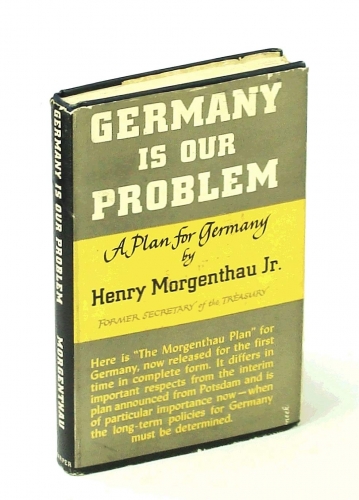
En octobre 1945, la maison d'édition Harper and Brother publie le livre Germany is our Problem (L'Allemagne est notre problème) de Morgenthau, dans lequel l'auteur détaille et décrit à nouveau son plan. En novembre 1945, le général Dwight D. Eisenhower, gouverneur militaire de la zone d'occupation américaine, a assuré la distribution gratuite de 1.000 exemplaires aux autorités militaires américaines dans l'Allemagne occupée.
Dans l'Allemagne d'après-guerre, l'administration américaine a adopté une série de mesures visant à restreindre le développement économique. En conséquence de ces mesures, le niveau de vie de la population allemande a chuté de manière spectaculaire et une famine a éclaté après la guerre. Il faudra attendre le début de la guerre froide en 1947 et la nécessité de créer un bastion en Europe de l'Ouest contre l'URSS pour que le plan Marshall, visant à industrialiser l'Allemagne de l'Ouest, remplace le plan Morgenthau.
L'Allemagne redevient un problème
La fin de la guerre froide et la réunification de l'Allemagne ont posé un nouveau problème aux Anglo-Américains : tout à coup, la menace pour laquelle ils avaient renoncé à réduire drastiquement l'industrie allemande avait disparu : l'URSS et le système socialiste internationaliste.
La République fédérale et la France étaient devenues le noyau d'un bloc qui aspirait à l'intégration européenne et qui avait le potentiel de devenir un concurrent géopolitique et géoéconomique des États-Unis. Au sein de l'UE, l'Allemagne est devenue la puissance dominante incontestée, ce qui n'a pas plu à Londres. En 2003, Paris et Berlin sont finalement entrés en rébellion ouverte : avec la Russie, ils se sont opposés à l'invasion anglo-américaine de l'Irak.
La politique et les intérêts géoéconomiques allaient de pair. Après la chute du rideau de fer, l'Allemagne, première puissance économique d'Europe, est devenue le principal partenaire économique de la Russie. La Chine, en plein essor, a également considéré l'Allemagne comme un partenaire économique prometteur.
L'accès aux sources d'énergie bon marché de la Russie était et est toujours d'une grande importance pour le développement de l'industrie allemande. La République fédérale et la Russie étaient très intéressées par une coopération.
Afin de saper l'alliance continentale entre l'Allemagne, la Russie et la Chine, qui jouissait d'une grande popularité parmi les politiciens allemands malgré le transatlantisme, les États-Unis misaient désormais sur les gouvernements d'Europe de l'Est.
La nouvelle désindustrialisation
Néanmoins, Moscou et Berlin ont réussi à lancer le gazoduc Nord Stream en mer Baltique après la révolution ukrainienne de 2004, et enfin Nord Stream 2 après la révolution de couleur de 2014. Globalement, la situation géopolitique mondiale n'a pas été à l'avantage des États-Unis et du Royaume-Uni. Les centres industriels et politiques d'Eurasie, qui cherchent à intégrer leurs potentiels (via la nouvelle route de la soie), menacent de disputer aux États-Unis leur rôle d'hégémon mondial.
Sous la direction de Donald Trump, les États-Unis ont tenté de freiner la croissance économique et politique de l'Europe en l'obligeant à dépenser davantage en armement et à acheter du gaz de schiste américain (bien plus cher que le gaz russe). (Pour un portrait équilibré de l'ancien président américain et de ses adversaires, consultez notre grand pack Trump à prix spécial, que vous pouvez commander ci-dessous).
La série complète : notre grand pack Trump coûte 14,95 au lieu de 25,40 euros et contient, outre l'édition consacrée à Trump, le spécial Heil Hillary - Candidate du fascisme américain sur le visage du clan influent des États-Unis et le spécial Ami Go Home - Comment la NSA, la CIA et l'Armée nous occupent. Disponible jusqu'à épuisement des stocks ! Commandez ici: https://www.compact-shop.de/shop/sonderangebote/compact-bundle-t3-compact-spezialausgaben/
Trump n'est peut-être plus président, mais les objectifs stratégiques des États-Unis sont restés les mêmes, seules leurs tactiques ont changé. Désormais, les démocrates et Joe Biden utilisent le "programme vert" pour affaiblir l'Europe et l'Allemagne. Selon les plans de l'UE, dont la direction est dominée par les transatlantistes, l'Europe devrait devenir le premier continent climatiquement neutre d'ici 2050.
Les experts estiment que des centaines de milliers de personnes en Allemagne pourraient perdre leur emploi à la suite de la soi-disant "transition énergétique" approuvée par l'UE. Actuellement, les entreprises industrielles limitent leur production afin de maintenir l'équilibre entre l'approvisionnement en énergie et la demande.
Rien que dans l'industrie automobile, plus de 400.000 emplois sont en jeu d'ici 2030, selon le rapport de la Plateforme nationale pour l'avenir de la mobilité (NPM). La numérisation de la fabrication des voitures entraîne un autre problème : les grandes entreprises technologiques américaines tentent même de conquérir une part encore plus importante de la valeur ajoutée dans la production automobile.
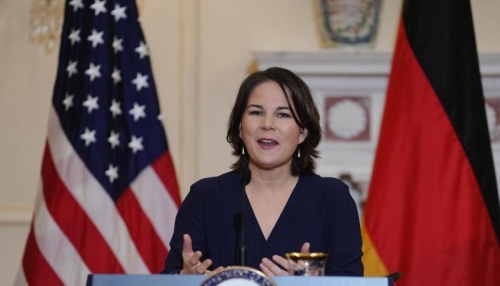
Annalena Baerbock et les intérêts des États-Unis
Le soi-disant Green Deal était l'une des exigences des démocrates américains avant l'arrivée au pouvoir de Biden. En Europe, l'hystérie autour du changement climatique a été et reste principalement alimentée par des mouvements et des ONG étroitement liés au réseau du milliardaire américain George Soros, proche des démocrates.
En Allemagne, tout comme ailleurs en Europe, les Verts ont reçu des fonds de grandes entreprises américaines. L'un des plus gros donateurs de la campagne électorale des Verts allemands pour le Bundestag était la société informatique américano-néerlandaise Elastic, qui travaille avec l'armée américaine.
Depuis que la politicienne verte Annalena Baerbock est ministre des Affaires étrangères de l'Allemagne, les États-Unis sont en mesure de mettre en œuvre un plan Morgenthau 2.0, dont les élites allemandes elles-mêmes se font les promotrices.
Non seulement les actions de Baerbock, mais aussi les déclarations qu'elle a faites en décembre 2021 font le jeu des États-Unis. Il s'agit de ses appels à l'arrêt du programme gazier Nord Stream 2. Cela a non seulement entraîné une hausse des prix du gaz sur le marché, mais aussi une modification des itinéraires des pétroliers américains transportant du gaz naturel liquéfié - ils sont soudainement partis pour l'Europe ! Les sociétés financières américaines qui ont fait des bénéfices en spéculant sur le marché boursier n'ont pas fait faillite.
Ce sont les Européens moyens qui doivent payer la part du lion pour financer une nouvelle bulle financière et la hausse artificielle des prix du gaz. Le lancement de Nord Stream 2 aurait pu apaiser la situation, mais c'est précisément ce qui a été empêché par les efforts des Verts, qui vont à l'encontre des intérêts des Allemands.
En fin de compte, les Verts font avancer un programme économique absolument suicidaire, qui fait tout pour limiter le potentiel économique de l'Allemagne et aggraver sa situation politique intérieure et extérieure. Avec la participation enthousiaste des élites de la République fédérale d'Allemagne elles-mêmes et les mensonges sur la protection de l'environnement, sur les droits de l'homme et sur la démocratie, les États-Unis poussent l'Allemagne dans une impasse, tout en poursuivant eux-mêmes leurs objectifs géopolitiques.
Morgenthau 2.0 : pour savoir comment les Verts font avancer le vieux plan de désindustrialisation de l'Allemagne, lisez le dossier spécial de COMPACT "Dictature écologique - L'agenda secret des Verts". Nous y dévoilons la politique profondément anti-allemande et destructrice de Habeck, Baerbock & Co. Commandez ici: https://www.compact-shop.de/shop/compact-spezial/oeko-diktatur-die-heimliche-agenda-der-gruenen/.
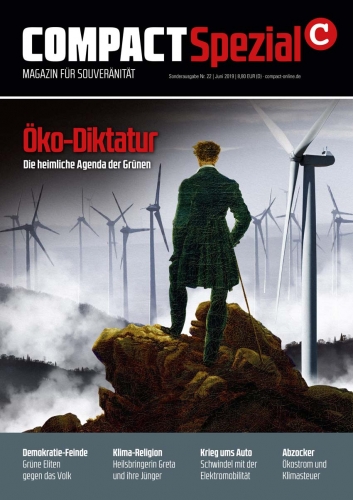
20:02 Publié dans Actualité, Affaires européennes | Lien permanent | Commentaires (1) | Tags : allemagne, europe, affaires européennes, politique internationale, henry morgenthau, plan morgenthau, verts, écologistes, écologistes allemands, verts allemands |  |
|  del.icio.us |
del.icio.us |  |
|  Digg |
Digg | ![]() Facebook
Facebook
Faiblesse chronique d'Israël

Faiblesse chronique d'Israël
Leonid Savin
Source: https://katehon.com/en/article/chronic-inferiority-israel?fbclid=IwAR0ygW8lUW65HcLOoUIY9UG7ObRr_kzUw2z_QjhekSDUSU87yqsJUSbGoVI
Le 21 juin 2022, le Premier ministre israélien Naftali Bennett et son adjoint, le ministre des Affaires étrangères Yair Lapid, ont annoncé leur décision de dissoudre la Knesset (parlement) et d'organiser des élections générales anticipées. Selon l'accord, Lapid prendrait le poste de premier ministre intérimaire et Bennett deviendrait le premier ministre alternatif en charge du dossier iranien.
Rappelons qu'Israël a connu de terribles troubles politiques ces dernières années, et que les nouvelles élections seront les cinquièmes en trois ans et demi.
Le 9 avril 2019, le parti Likoud du Premier ministre sortant Benjamin Netanyahu a remporté 35 des 120 sièges de la Knesset. Son principal rival, la coalition blanc-bleu dirigée par Benny Gantz et son partenaire Yair Lapid, a également remporté 35 sièges. Mais ni l'un ni l'autre ne sont parvenus à former un gouvernement, le parlement a donc été dissous et de nouvelles élections ont été programmées pour le 17 septembre de la même année.
Cette fois, l'alliance Bleu et Blanc dirigée par Gantz et Lapid a remporté 33 sièges, tandis que le Likoud en a obtenu 32. Une fois de plus, aucun des deux partis n'a été en mesure de former un gouvernement dans le temps nécessaire, la Knesset a donc été dissoute et de nouvelles élections ont été programmées pour mars 2020.
À cette occasion, le Likoud a remporté le plus grand nombre de sièges, 36, et les Bleu et Blanc ont obtenu 33 sièges, mais là encore, ils n'ont pas réussi à former un gouvernement. Netanyahu et Gantz ont convenu de former un gouvernement en relais. Mais il y a eu un désaccord entre Netanyahu et Gantz sur le budget qui n'a pas été adopté. La Knesset a été dissoute en décembre 2020.

Lors de la campagne électorale de mars 2021, le Likoud de Netanyahu a remporté le plus grand nombre de sièges (30), et l'alliance Blanche et Bleue, scellée auparavant entre Lapid et Gantz, s'est effondrée. Netanyahou ne parvenant toujours pas à former un gouvernement, un bloc bancal a été organisé entre huit partis unis par l'idée de chasser Netanyahou du pouvoir. Ainsi, le 13 juin de l'année dernière, un gouvernement de coalition a vu le jour.
Les partis ont convenu que le poste de premier ministre serait occupé à tour de rôle par Lapid, le leader du parti centriste Yesh Atid, et Bennett, le leader du parti de droite Yamina. Bennett est entré en fonction le premier, et Lapid devait lui succéder en septembre 2023. D'ici là, Lapid se contenterait de servir de chef de gouvernement temporaire pendant quelques mois.
Le bloc comprenait également Nouvel espoir (aile droite), dirigé par Gideon Saar ; Yisrael Beiteinu (un parti de droite nationaliste hostile aux Juifs religieux), dirigé par Avigdor Lieberman ; le Blanc et Bleu (centre), dirigé par Benny Gantz ; Labor (centre), dirigé par Merav Michaeli ; et Meretz (aile gauche), dirigé par Nitzan Horowitz ; et la Liste arabe unie, dirigée par Mansur Abbas.
Dans ce cas, la raison de l'effondrement était la vulnérabilité de la coalition qui ne disposait que de la moitié des sièges au parlement et dont les membres quittaient régulièrement l'alliance, motif pour lequel ils étaient qualifiés de traîtres. Lorsque le député de droite Nir Orbach a annoncé qu'il ne faisait "plus partie" du gouvernement, l'équilibre a finalement été rompu, avec seulement 59 sièges sur 120 restant sous le contrôle de la coalition.
La goutte d'eau qui a fait déborder le vase a été l'échec de la prolongation de la loi d'urgence du 7 juin, selon laquelle les colons juifs de Cisjordanie occupée sont considérés comme des Israéliens, avec les mêmes droits que tout le monde.
Le chef de l'Alliance politique sioniste religieuse, Betsalel Smotrich (photo), a également proposé une loi qui établirait la souveraineté israélienne sur la Cisjordanie occupée, une initiative qui a également divisé le gouvernement du Premier ministre Naftali Bennett.
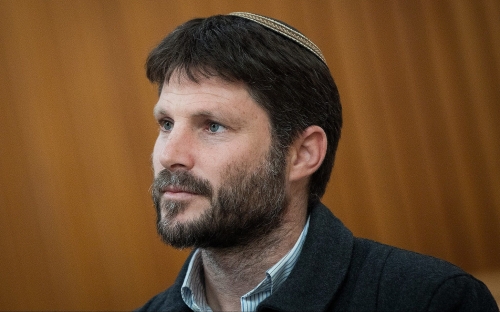
Si le projet de loi de Smotrich avait été adopté, il aurait conduit à l'application des lois israéliennes en Cisjordanie, qui ferait alors officiellement partie d'Israël par annexion.
Mais Bennett a déclaré sans équivoque que son pays n'annexerait pas la Cisjordanie. En même temps, il a dit qu'il n'y aurait pas non plus de coopération avec l'Autorité palestinienne.
Maintenant, Benjamin Netanyahu va essayer de prendre sa revanche, même si c'est très probablement la dernière fois qu'il tente de devenir Premier ministre. Des rumeurs ont également circulé selon lesquelles Netanyahou espère apparemment transmettre l'État à son éventuel successeur. Pour que cela se produise, les bonnes conditions doivent être réunies, tant du point de vue de la sécurité que de l'économie. Or, la situation actuelle n'est clairement pas la meilleure en ce sens, en raison de l'inflation anticipée et d'une nouvelle crise économique mondiale. Le programme nucléaire de l'Iran et l'activité des proxies iraniens en Syrie et au Liban ajoutent également à l'anxiété de l'establishment israélien.
Alors que Netanyahou avait l'habitude de venir régulièrement demander du soutien à Moscou, maintenant, dans la nouvelle situation avec l'opération spéciale en Ukraine, il sera beaucoup plus difficile de le faire car la société israélienne elle-même est fortement polarisée sur cette question. De plus, le Kremlin a ouvertement protesté contre les récents bombardements israéliens sur le territoire syrien. Et le rapprochement entre la Russie et l'Iran, comme en témoigne la récente visite du ministre russe des Affaires étrangères Sergei Lavrov à Téhéran, où de nouveaux accords ont été conclus, n'est clairement pas dans l'intérêt d'Israël.
Malgré les accords abrahamiques signés avec Israël, un certain nombre de pays arabes préfèrent ne pas se précipiter dans la "normalisation" et commencent à adopter une position plus équilibrée et modérée. L'Arabie saoudite, par exemple, négocie avec l'Iran pour améliorer les liens bilatéraux et n'a pas suivi les États-Unis sur la production de pétrole et les sanctions anti-russes.
Bien que Washington tente d'inciter ses partenaires et d'engager tous les membres de l'accord abrahamique dans l'Alliance de défense aérienne du Moyen-Orient nouvellement créée. Israël l'a déjà officiellement rejoint, comme l'a récemment annoncé le ministre de la Défense Benny Gantz.
De toute évidence, le nouveau processus électoral sera difficile, et pas seulement pour Netanyahu. Il faudra d'une part trouver des réponses aux défis actuels tels qu'ils sont présentés par la société israélienne, et d'autre part essayer de ne pas aggraver le conflit contre l'Iran, la Syrie et le Liban, ce qui provoquera des réactions non seulement de ces pays mais aussi d'autres acteurs régionaux et bien sûr des acteurs majeurs, y compris les États-Unis, qui ne sont clairement pas prêts à ouvrir un nouveau front également contre l'Iran.
Cette situation nous rappelle la déclaration du premier Premier ministre israélien, David Ben-Gourion, qui a dit que leur État souffre d'une infériorité chronique. Il faisait référence à la démographie et au territoire qui, à son époque, était beaucoup plus petit. Cette infériorité était la raison du programme de rapatriement qu'Israël n'a épargné aucune dépense et aucun effort pour étendre par l'occupation de la Palestine. Mais la situation actuelle indique que cette infériorité chronique a persisté et est caractéristique du système politique israélien dans son ensemble. Si les dirigeants de cette entité politique avaient réfléchi de manière plus rationnelle, ils auraient compris qu'en niant l'existence d'un État palestinien, Israël se condamne à davantage d'instabilité et d'infériorité.
19:30 Publié dans Actualité | Lien permanent | Commentaires (0) | Tags : israël, politique internationale, levant, proche-orient |  |
|  del.icio.us |
del.icio.us |  |
|  Digg |
Digg | ![]() Facebook
Facebook
L'alternative pour l'Europe de l'Est est la tradition et l'amitié avec la Russie
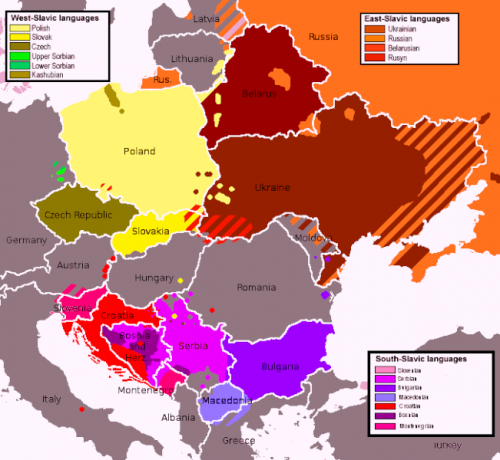
L'alternative pour l'Europe de l'Est est la tradition et l'amitié avec la Russie
Alexander Bovdunov & Pavel Kiselev
Source: https://www.geopolitika.ru/en/article/alternative-eastern...
Cette interview de Pavel Kiselev avec l'expert en histoire et en géopolitique Alexander Bovdunov aborde la réalité actuelle de l'Europe de l'Est. Le livre que Bovdunov vient de publier a eu un large écho parmi les conservateurs russes et est devenu essentiel pour étudier les processus politiques et philosophiques en Europe de l'Est.
Kiselev : Alexander, depuis combien de temps vous intéressez-vous au sujet de l'Europe de l'Est ? Pourquoi avez-vous commencé à l'étudier ?
Bovdunov : J'ai commencé à étudier la Roumanie lorsque j'étais étudiant au MGIMO. Ma deuxième langue étrangère était le roumain. Puis j'ai développé un intérêt pour la pensée conservatrice orthodoxe roumaine et, par coïncidence, j'ai commencé à traduire quelques textes en même temps, activité qui s'est ensuite transformée en un intérêt plus large et plus complexe pour la région [l'Europe de l'Est]. Il s'est alors avéré que la notion de "région" ne s'applique pas bien à cette structure complexe caractérisée par ses frontières. Par essence, la région est une zone-frontière fluctuante entre la Russie et l'Europe. Ensuite, les questions de savoir quoi faire de cette frontière et quelles alternatives à la situation géopolitique actuelle pouvaient être développées en un intérêt académique, dans une thèse de doctorat sur une réorganisation géopolitique alternative de l'Europe. Je m'intéressais au problème de savoir quelles alternatives à leur statu quo les Européens de l'Est voyaient. Finalement, cela s'est transformé en un livre, publié par hasard à un moment chaud où l'intérêt pour la région s'était considérablement accru.

Kiselev : Quand avez-vous commencé à écrire le livre ?
Bovdunov : Le corps principal du texte a été écrit en 2012-13 alors que je préparais et défendais mon doctorat en sciences politiques. Puis je l'ai mis à jour, j'ai écrit plusieurs nouveaux chapitres entièrement consacrés aux espaces philosophiques de l'Europe de l'Est. Autrement dit, le livre a été écrit avec des interruptions : d'abord dans les années 2010 et mis à jour dans les années 2020 et 21.
Kiselev : Vous avez dit que l'intérêt pour l'Europe de l'Est a augmenté pendant les "périodes chaudes". L'opération militaire spéciale a-t-elle eu un impact sur le contenu du livre, avez-vous fait des ajouts après son début ?
Bovdunov : Malheureusement, il n'y en a pas eu, car le livre avait déjà été imprimé à ce moment-là. Conceptuellement, cependant, rien n'a changé dans la région. Au contraire, les stratégies atlantistes de contrôle de la région et d'expansion en tant que "zone tampon" à l'est, telles que décrites dans le livre, sont devenues encore plus prononcées. Il est clair que la position de certains politiciens est également en train de changer, car certains auteurs ouvertement pro-russes ont dû être réduits au silence. Cependant, nous pouvons déjà constater que cette tendance est en train de changer. C'est-à-dire que les experts commencent à s'exprimer contre les livraisons d'armes à l'Ukraine, pour la normalisation des relations avec la Russie, etc. Je pense qu'en fait, tout va revenir à la normale. En outre, plus la Russie sera performante, mieux, paradoxalement, elle sera traitée. Plus la Russie sera forte dans le cadre de l'Opération militaire spéciale, meilleure sera l'attitude à son égard de ceux qui ont jusqu'à présent adopté une attitude sceptique et attentiste, mais qui ne sont pas prêts à accepter la dégénérescence et la dégradation causées par la civilisation occidentale moderne. Une Russie forte devra être prise en considération, et les forces conservatrices et traditionalistes (au sens large du terme) verront dans une Russie forte un soutien. Beaucoup pensent déjà que la Russie devrait être le centre d'attention, qu'elle est un acteur important dans l'arène géopolitique, défiant l'Occident.
Kiselev : Dans ce contexte, comment voyez-vous les relations entre la Russie et l'Europe de l'Est après la fin de l'opération spéciale ?
Bovdunov : Je pense que le refroidissement actuel est temporaire et qu'ils devront rechercher le dialogue à l'avenir. Et puis les concepts géopolitiques anti-atlantiques et continentaux, même s'ils ne sont que des idées pour l'instant et ne sont pas soutenus par beaucoup, auront un rôle à jouer et devront être abordés. L'important est d'avoir des idées, et les idées sont là. Elles vivent à nos côtés, et il me semble qu'il y aura une certaine réorientation, au moins dans les pays où il existe de sérieuses positions pro-russes, par exemple en Bulgarie et en Slovaquie. Avec la Pologne, c'est compliqué, car à bien des égards, nous sommes aux antipodes, et le différend polono-russe n'est pas tant un différend entre le catholicisme et l'orthodoxie, mais entre deux grandes puissances qui ont tenté de concentrer l'hégémonie entre leurs mains dans cette partie de l'Europe. La Russie a réussi, la Pologne n'a pas réussi. La question se pose : le choix de la Pologne était-il le bon ? La nostalgie impériale polonaise se manifeste de diverses manières : dans la politique prométhéenne, dans l'idée jagellonienne, dont il est question dans mon livre, et dans une sorte de "nostalgie" de l'Empire russe ! À ce sujet, je peux également recommander un livre de l'écrivain polonais Mariusz Swider intitulé "Comment nous avons construit la Russie".

C'est un livre très populaire en Pologne - il existe de nombreuses éditions et les Polonais s'y intéressent activement. Il décrit le rôle des Polonais dans l'histoire de la Russie, le nombre de Polonais qui ont servi dans l'armée, le gouvernement et la police de l'Empire russe est plus élevé que tout autre groupe ethnique, comment ils ont participé à la création de la culture russe. Et donc, ils ont la nostalgie de la grandeur que cela a donné. Nous leur proposons de rechercher cette grandeur avec la Russie, et non pas contre la Russie, non pas au bénéfice des doctrines libérales occidentales, qui finiront par détruire la Pologne. Cela n'a aucun sens pour les "hussards ailés" polonais d'aller contre la Russie si la communauté LGBT vient de l'arrière avec des "plumes". La menace pour leur identité ne vient pas de la Russie.
Kiselev : Votre livre a fait une impression positive sur une grande partie de la communauté conservatrice en Russie, car le sujet de l'Europe de l'Est est à l'ordre du jour pour beaucoup en ce moment. Dites-moi, y a-t-il des études russes sur cette région, ou des parties de celle-ci, philosophiques ou géopolitiques, que vous pourriez citer et qui auraient pu influencer votre travail également ?
Bovdunov : Tout d'abord, Noomakhia d'Alexander G. Douguine, deux volumes qui traitent directement des régions d'Europe de l'Est. De manière générale, il a été influencé par les discussions qui ont eu lieu au sein du Center for Conservative Studies dans les années 2010. Je pense que ce sont des ouvrages exemplaires qu'il faut lire. Quant aux autres ouvrages russes, je ne pense pas que beaucoup d'ouvrages sérieux soient publiés aujourd'hui. Vous pouvez chercher des traductions d'auteurs lituaniens, par exemple d'Antanas Maceina (photo), brillamment traduit par Maxim Medovarov et aussi des auteurs roumains.
 Kiselev : Dans votre livre, vous indiquez qu'en plus de Noomakhia, votre livre a été influencé par les autres ouvrages de Douguine, Géopolitique et Fondements de la géopolitique. Des concepts tels que l'approche civique et la quatrième théorie politique jouent-ils un rôle dans vos recherches ?
Kiselev : Dans votre livre, vous indiquez qu'en plus de Noomakhia, votre livre a été influencé par les autres ouvrages de Douguine, Géopolitique et Fondements de la géopolitique. Des concepts tels que l'approche civique et la quatrième théorie politique jouent-ils un rôle dans vos recherches ?
Bovdunov : L'approche civique, oui. Quant à la "Quatrième Théorie Politique", je n'en parle pas directement. Mais il y a une section dans le livre intitulée "Grande Europe de l'Est : réveil ou réinitialisation", qui parle des concepts de grand réveil et de la façon dont on peut mener un discours contre-hégémonique, lié à la notion de "troisième traditionalisme" - un appel à l'horizon paysan. Ceci, à mon avis, se combine avec QTP. Le phénomène même du populisme est-européen est précisément une tentative de surmonter la dichotomie gauche-droite, qui est essentiellement une expression et un reflet du même projet des Lumières, mais sous des formes différentes. Il recoupe donc en partie les concepts de ce qu'Alexandre Douguine appelle la Quatrième théorie politique.
Kiselev : En ce qui concerne l'approche civilisationnelle, voyez-vous l'Europe de l'Est comme une civilisation distincte, ou y a-t-il trop de contradictions internes qui l'empêchent ?
Bovdunov : Non, cette région ne peut être considérée comme une civilisation séparée, elle est un terrain de contact de diverses civilisations : Islamique, Orthodoxe, Catholique. Un autre fait est qu'il y a quelque chose de commun dans ce domaine à partir duquel le projet de la Grande Europe de l'Est peut être construit, je veux parler de la composante conservatrice qui est évidemment présente dans ces pays et qui est en partie liée à nous. Il y a une couche supplémentaire, l'horizon paysan, car l'Europe de l'Est est le berceau du paysan européen, où la civilisation de la Grande Mère se superpose au dionysisme (Dionysos vient d'Europe de l'Est, de Thrace). Et ces horizons philosophiques sont également importants pour trouver un terrain d'entente. Il y a des moments de chevauchement même dans l'idée slave, car il semblerait que le panslavisme et l'eurasianisme soient difficilement compatibles, mais, en fait, nous devrions nous tourner vers la dimension profonde de l'idée slave, vers la langue, vers la recherche linguistique, vers les tentatives de former la philosophie sur la base de la langue.
Ainsi, le philosophe macédonien Bronislav Sarkanyants fait remarquer que nous pouvons retracer comment les concepts philosophiques que l'on trouve dans les langues slaves du Sud ont fait un long chemin depuis la tradition grecque, jusqu'au latin, à l'allemand, au russe, au serbe, et ainsi de suite. Nous avons eu Cyrille et Méthode, il y avait une tradition de traduction du grec, qui était essentiellement une traduction du grec philosophique, la langue du Nouveau Testament et du platonisme chrétien. Pourquoi ne nous tournons-nous pas ensemble vers la tradition de Cyrille et Méthode ? C'est déjà un défi intéressant. Au lieu de passer par une chaîne de perte de sens, nous pouvons faire une tentative pour atteindre l'antiquité et notre tradition commune léguée par Cyrille et Méthode.

L'image de Cyrille et Méthode est importante pour nous, pour les Serbes et les Slovaques, qui avons la croix de Cyrille et Méthode dans nos armoiries. On peut trouver de profondes tendances russes et slaves chez les Slovaques. Nous pouvons trouver des influences mutuelles de tendances philosophiques: les Slovaques ont une école philosophique, fondée par Nikolai Loski. Nous sommes unis aux Polonais par la figure de Thaddeus Zielinsky (photo), un grand et intéressant spécialiste de l'antiquité et fondateur de l'idée de la Renaissance slave. En général, il y a beaucoup de couches différentes qui se croisent et se chevauchent, et c'est ce qui rend la région si intéressante.
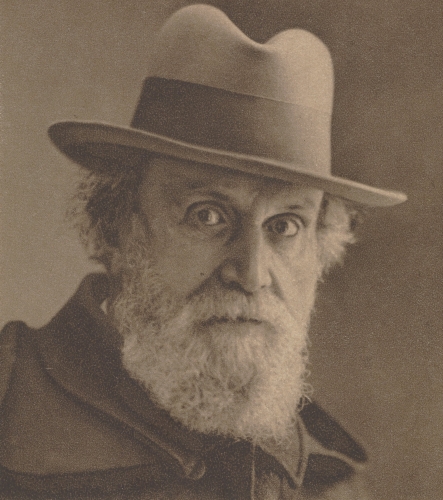
Kiselev : Quelles conclusions tirez-vous de votre livre et quels sont vos espoirs pour l'avenir de l'Europe de l'Est ?
Bovdunov : La conclusion est que nous pouvons construire un projet pour l'Europe de l'Est. Ce projet respectera l'identité de la région. Les pays d'Europe de l'Est doivent se tourner vers les horizons philosophiques sous-jacents qui les unissent, d'une part. D'autre part, les aspects pragmatiques et géopolitiques jouent un rôle important. Pour ce faire, il faut d'abord mettre fin à l'occidentalo-centrisme, qui empêche l'Europe de l'Est de rattraper l'Occident, car le discours lui-même est actuellement construit de telle sorte qu'elle ne peut pas le rattraper; l'Europe de l'Est est éternellement contrainte d'être l'"Autre" interne de l'Occident, en le copiant, en éliminant ses caractéristiques, tandis que la Russie est l'"Autre" externe. Ce qui est projeté sur l'image de l'"Autre" est ce que l'Europe nie actuellement en elle-même. Pour sortir de ce cercle vicieux, il est nécessaire que l'"autre" Europe devienne l'"autre Europe". Il est nécessaire de chercher son alternative dans la Tradition et avec la Russie.
19:16 Publié dans Actualité, Affaires européennes, Entretiens, Histoire | Lien permanent | Commentaires (0) | Tags : europe, europe de l'est, europe centrale, russie, peuples slaves, slaves, entretien, alexander bovdunov, histoire, affaires européennes |  |
|  del.icio.us |
del.icio.us |  |
|  Digg |
Digg | ![]() Facebook
Facebook
jeudi, 30 juin 2022
Une balle dans le genou: les sanctions font mal - mais pas à la Russie
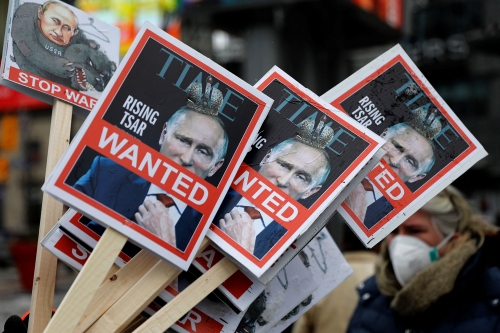
Sanctions de l'UE:
Une balle dans le genou: les sanctions font mal - mais pas à la Russie
Source: https://www.unzensuriert.at/content/150401-schuss-ins-knie-sanktionen-treffen-schmerzlich-aber-nicht-russland/?utm_source=Unzensuriert-Infobrief&utm_medium=E-Mail&utm_campaign=Infobrief&pk_campaign=Unzensuriert-Infobrief
Bien que la majorité des Autrichiens ne veuillent pas geler le prochain hiver "pour emmerder Poutine", le gouvernement noir-vert soutient les sanctions contre la Russie. Mais elles n'y arrivent pas du tout comme prévu.
"Des sanctions inefficaces ?", demande ce jeudi le quotidien Die Welt. Et en résume dès le sous-titre la quintessence :
En avril, la Banque mondiale prévoyait encore un effondrement économique de 11,2% en 2022 pour la Russie, et a entre-temps ramené ce chiffre à 8,9% seulement. La tendance est encore à la baisse.
La banque centrale russe a annoncé il y a quelques jours que les craintes d'une contraction de l'économie de 8 à 10 pour cent en raison des sanctions occidentales avaient été surestimées. La Russie ne sera pas touchée aussi durement qu'après la crise financière de 2009.
Les leçons de l'histoire
Depuis les dernières sanctions occidentales - oui, les États-Unis et leurs vassaux jouent à ce jeu depuis des années ! - la Russie s'est délibérément rendue moins dépendante des importations, stratégie qui porte aujourd'hui ses fruits. Certes, des produits importants manquent, surtout dans le domaine de la fabrication, mais la situation est loin d'être aussi dramatique que ce qu'en disent les médias mainstream occidentaux.
Une autre chose ne devrait pas plaire aux fauteurs des sanctions: la monnaie russe s'est appréciée de plus de 40% par rapport au dollar depuis le début de l'année. A cela s'ajoute l'énorme augmentation des revenus issus de la vente de pétrole et de gaz naturel, car la Russie continue à honorer ses contrats de livraison. Le trésor de guerre n'est pas seulement rempli au sens propre du terme, il l'est de manière inattendue !
L'Europe chancelle
Si l'on met en parallèle les évolutions et les perspectives dans les pays occidentaux, le bilan est triste, car l'Europe chancelle. Le ministre fédéral allemand des Finances, Christian Lindner (FDP), a déjà engagé la population dans une ère de privations qui devrait durer plusieurs années, des privations posées comme un "renoncement dans l'intérêt d'objectifs supérieurs", dit-on dans les hautes sphères de la RFA, afin de punir la Russie pour son attaque contre l'Ukraine et de pérenniser la domination américaine.
Il y a quelques jours, Agenda Austria a analysé les conséquences que vont avoir ces "intérêts supérieurs" pour l'Autriche, et plus précisément l'impact que pourrait susciter une réduction des livraisons de gaz en provenance de Russie. Si la Russie livre 25% de moins, l'économie risque de perdre 2,4 points de croissance - ce qui devrait coûter environ 40.000 emplois. Et ce ne sont "que" les effets de la réduction des livraisons de gaz !
Les citoyens ne sont pas consultés
De plus, les citoyens ne soutiennent pas cette politique ! La majorité des Autrichiens ne veulent ni avoir froid, ni se serrer la ceinture pour en "montrer aux Russes". Cette rétivité des citoyens de la République alpine devrait encore augmenter lorsque la population se rendra compte que les sanctions frappent plus durement les pays qui les ont imposées que le pays qu'elles devraient frapper.
Si vous avez aimé cet article, merci de soutenir le projet unzensuriert en faisant un don. Par paypal (carte de crédit) ou par virement bancaire sur AT58 1420 0200 1086 3865 (BIC : BAWAATWW), ltd. Unzensuriert
Suivez-nous sur notre canal Telegram pour commenter les articles et rester informé de Unzensuriert : https://t.me/unzAT .
19:55 Publié dans Actualité, Affaires européennes | Lien permanent | Commentaires (0) | Tags : politique internationale, russie, sanctions, sanctions antirusses, europe, autriche, allemagne, affaires européennes |  |
|  del.icio.us |
del.icio.us |  |
|  Digg |
Digg | ![]() Facebook
Facebook
Les Etats-Unis veulent maintenir leur statut de superpuissance à tout prix
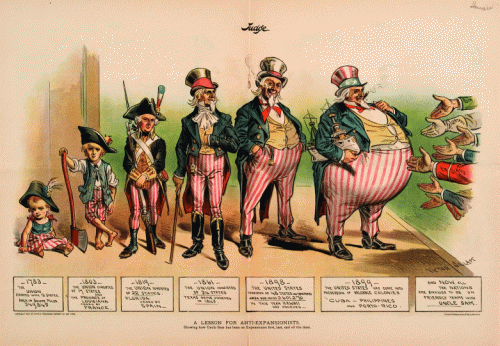
Les Etats-Unis veulent maintenir leur statut de superpuissance à tout prix
Zamir Ahmed Awan
Source: http://www.elespiadigital.com/index.php/noticias/geoestrategia/37863-estados-unidos-quiere-mantener-su-estatus-de-superpotencia-a-toda-costa
Les États-Unis cherchent désespérément à maintenir leur hégémonie et leur suprématie. Ils prennent des mesures extrêmes et peuvent aller jusqu'au bout pour maintenir leur hégémonie et leur suprématie. Leur politique de pétrodollars a joué un rôle important, mais, récemment confrontés à des défis, les États-Unis deviennent nerveux et fous.
Le pétrodollar consiste en tout dollar américain versé aux pays exportateurs de pétrole en échange de pétrole. Le dollar est la monnaie mondiale prééminente. Par conséquent, le prix de la plupart des transactions internationales, y compris le pétrole, est fixé en dollars. Les nations exportatrices de pétrole reçoivent des dollars pour leurs exportations, et non leur propre monnaie.
En outre, la plupart des nations exportatrices de pétrole sont propriétaires de leurs industries pétrolières. Cela rend leur revenu national dépendant de la valeur du dollar. S'il baisse, il en va de même pour leurs recettes publiques. Par conséquent, la plupart de ces exportateurs de pétrole rattachent également leur monnaie au dollar. Ainsi, si la valeur du dollar baisse, les prix de tous leurs biens et services domestiques baissent également. Cela permet à ces pays d'éviter les grandes variations de l'inflation ou de la déflation.
Le système des pétrodollars est lié à l'histoire de l'étalon-or. Après la Seconde Guerre mondiale, les États-Unis possédaient la plupart des réserves d'or du monde. Ils ont accepté d'échanger tout dollar américain contre sa valeur en or si d'autres pays attachaient leur monnaie au dollar. D'autres pays ont signé cet accord lors de la conférence de Bretton Woods de 1944, qui a établi le dollar américain comme monnaie de réserve mondiale.

Le 14 février 1945, le président Franklin D. Roosevelt a scellé l'alliance des Etats-Unis avec l'Arabie saoudite. Il a rencontré le roi saoudien Abd al-Aziz. Les États-Unis ont construit un aérodrome à Dhahran en échange d'une formation militaire et commerciale. Cette alliance était si cruciale qu'elle a survécu aux années suivantes où il y a eu bien des divergences d'opinion sur le conflit israélo-arabe.
L'accord de 1945 entre les États-Unis et l'Arabie saoudite a cimenté la relation entre le dollar et le pétrole. Le pétrodollar était né. En 1971, la stagflation américaine a provoqué l'effondrement du dollar. De nombreux pays ont demandé à échanger leurs dollars américains contre de l'or. Pour protéger les réserves d'or américaines restantes, le président Richard Nixon a retiré le dollar de l'étalon-or. En conséquence, la valeur du dollar s'est effondrée. Cela a aidé l'économie américaine car la valeur de ses exportations a également baissé, ce qui la rendait plus compétitive. La chute du dollar a nui aux pays exportateurs de pétrole, car les prix contractuels étaient cotés en dollars américains. Leurs revenus pétroliers ont chuté en même temps que le dollar. Le coût des importations, libellées dans d'autres devises, a augmenté.

En 1973, Nixon demande au Congrès une aide militaire pour Israël dans le cadre de la guerre du Yom Kippour. L'Organisation des pays exportateurs de pétrole, nouvellement formée, a interrompu les exportations de pétrole vers les États-Unis et d'autres alliés d'Israël. L'embargo pétrolier de l'OPEP a quadruplé le prix du pétrole en six mois. Les prix sont restés élevés même après la fin de l'embargo. En 1979, les États-Unis et l'Arabie saoudite ont négocié la Commission mixte États-Unis/Arabie saoudite pour la coopération économique. Ils ont accepté d'utiliser des dollars américains pour les contrats pétroliers. Les dollars américains seraient recyclés aux États-Unis par le biais de contrats avec des entreprises américaines. Ces entreprises améliorent les infrastructures saoudiennes grâce au transfert de technologie.
Les États-Unis utilisent la puissance des pétrodollars pour imposer leur politique étrangère. Mais de nombreux pays ne ripostent pas. Ils craignent que cela signifierait l'effondrement du système des pétrodollars.
Cependant, plusieurs pays ont intensément réfléchi et ont réagi contre le concept du pétrodollar et quelques dirigeants arabes ont déclaré vouloir dorénavant faire du commerce en monnaie locale ou en toute autre monnaie, se dissociant ainsi du dollar. Le rôle principal a été joué par le président Saddam Hussein, le colonel Kadhafi de Libye et le président syrien. Les États-Unis les ont punis et ont changé les régimes de ces pays.
La Chine a appelé à un remplacement du dollar américain comme monnaie mondiale. Bien qu'elle soit l'un des plus grands détenteurs étrangers du dollar. La Chine influence le dollar américain en arrimant sa monnaie, le yuan, à celui-ci. La Chine a signé un accord d'échange de devises avec plus de vingt pays et commerce déjà avec eux en yuan ou en devises locales. Elle importe du pétrole et du gaz de certaines nations arabes en yuan.
La Russie a exigé de régler les factures de gaz en roubles et certains pays européens ont déjà accepté de payer en roubles. L'UE ne voit pas non plus d'objection à ce qu'un État membre paie en roubles plutôt qu'en dollars. La Russie commerce avec certaines autres nations en roubles ou en monnaies locales au lieu de dollars.
La Russie a fait chuter la valeur du dollar et de l'euro de 30 % en un clin d'œil en rattachant le rouble russe à la valeur de l'or et en déclarant qu'elle ne fournit du pétrole que contre le rouble russe. La décision de la Russie signifie que désormais le monde entier, en particulier l'Europe occidentale et le Japon, achètera le rouble russe en y vendant des dollars, car le rouble russe est devenu du jour au lendemain une monnaie plus stable après avoir été rattaché à l'or.
Les États-Unis, qui ne produisent en masse que des armes et des munitions, sont pris dans une terrible crise économique. En cas de contraction du dollar, les États-Unis ne peuvent pas couvrir leur déficit budgétaire de 306 milliards de dollars. Cela provoquera un grave chômage et affectera négativement le filet de sécurité sociale. C'est la bombe atomique économique dont Joe Biden était conscient lorsqu'il parlait de l'éviction de Poutine en Pologne.
Poutine ordonne aux pays européens d'effectuer les paiements de gaz et de pétrole en roubles et d'ouvrir des comptes dans les banques russes. Cela affaiblit les sanctions américaines contre la Russie. Bien que la Russie n'ait pas riposté aux sanctions américaines de manière aussi agressive, elle a introduit calmement ses politiques pour contrer les sanctions et ce, avec succès.

Le déclin rapide des États-Unis a rendu ses dirigeants nerveux et fous. Ils prennent toutes les mesures possibles pour maintenir leur hégémonie et leur suprématie. Bien que la guerre en Ukraine ne soit qu'un phénomène marginal, l'objectif est de maintenir le statu quo. Malheureusement, les États-Unis ne s'intéressent pas à la paix mondiale, à la stabilité ou au sauvetage de vies humaines. Leur seule priorité est de maintenir leur hégémonie et leur suprématie. Pour atteindre cet objectif, les États-Unis peuvent sacrifier l'Ukraine ou l'Europe à n'importe quel prix. La politique américaine dans la guerre ukrainienne jette de l'huile sur le feu, il n'y a aucune volonté d'arrêter la guerre, de conclure un cessez-le-feu ou de sauver des vies humaines. Ils fournissent des armes et arment des civils pour provoquer une guerre civile prolongée, pour saigner les Russes à blanc et maintenir de nombreux pays trop engagés et permettre aux États-Unis de maintenir leur monopole et leur avantage.
La Russie était réticente à attaquer l'Ukraine et observe des restrictions depuis un certain temps. En montrant leurs véritables préoccupations en matière de sécurité et en alarmant l'opinion aux États-Unis mêmes où l'on évoque de graves conséquences, Washington a maintenu sa politique d'encerclement de la Russie.
L'adhésion de la Finlande à l'OTAN et son accord de défense avec le Royaume-Uni constituent également une véritable menace pour la Russie. La Russie et la Finlande partagent une longue frontière commune. L'adhésion à l'OTAN signifie le déploiement des forces de l'OTAN le long de la frontière russo-finlandaise, ce qui constitue une menace directe. L'adhésion à l'OTAN d'autres pays scandinaves est également une question sérieuse qui inquiète profondément la Russie.
Il semble que les États-Unis n'aient qu'une seule priorité, celle de maintenir leur position géopolitique, en ignorant les véritables préoccupations des autres nations. Nous, autres peuples, avons peur de l'avenir et craignons que les jours à venir soient difficiles pour l'humanité toute entière.
Dans l'histoire, de nombreuses nations ont atteint le statut de superpuissance et ont régné sur le monde pendant un certain temps, puis se sont effondrées et ont laissé le statut de superpuissance à d'autres nations montantes. Comme l'Empire romain, l'Empire ottoman, l'Empire grec, les empires britannique et français, etc. Mais, les Etats-Unis ne sont pas prêts à accepter le cycle naturel des superpuissances et peuvent aller jusqu'au bout pour maintenir leur statut à jamais, ce qui n'est ni rationnel ni naturel, cela pourrait causer des pertes irrémédiables à l'humanité.
* Prof. Ing. Zamir Ahmed Awan, sinologue (ex-diplomate), éditeur, analyste, membre non-résident du CCG (Centre for China and Globalisation).
18:02 Publié dans Actualité, Géopolitique | Lien permanent | Commentaires (0) | Tags : états-unis, actualité, politique internationale, pétrodollar |  |
|  del.icio.us |
del.icio.us |  |
|  Digg |
Digg | ![]() Facebook
Facebook
mercredi, 29 juin 2022
La solitude de l'Europe et le défi des BRICS au dollar
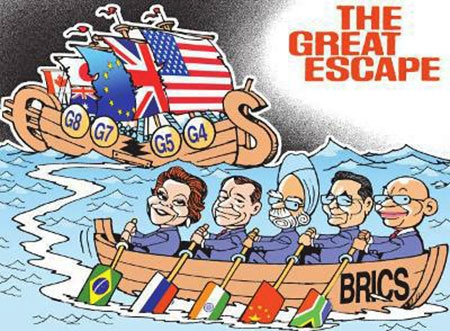
La solitude de l'Europe et le défi des BRICS au dollar
par Francesco Marotta
Source: https://www.destra.it/home/la-solitudine-delleuropa-e-la-sfida-al-dollaro-dei-brics/
Que peut-il se passer ? Tout d'abord, il n'existe pas de vérités absolues, et encore moins de sorciers Zurli ou de Cassandres avec des boules de cristal. Commençons par dire que le Vieux Continent aurait beaucoup plus à gagner avec un Euro fort au lieu de continuer à faire usage du Dollar, pour la raison que la pression inflationniste diminuerait, permettant au ganglion qu'est la BCE, cela semble un oxymore mais c'est comme ça, de ralentir la politique monétaire restrictive à court et moyen terme. Cela pourrait arriver, mais il y a un problème majeur : si la pression sur les prix continue à augmenter et que l'inflation se transforme en déflation, en ajoutant à cela la contraction des salaires, nous aurons de sérieux problèmes en Europe, ce qui n'est pas encore tout à fait le cas.
Les hausses sont dues à la spéculation en cours et à l'arrêt prolongé des activités, à cause de la pandémie, bientôt les problèmes induits par la guerre arriveront également. Disons que l'on commence à en voir plus qu'un peu. Une petite mise au point consciencieuse : celui qui fait la fête pour cela, devrait être pris avec une pelle, car je ne comprends pas que 99% de la population italienne et européenne soit composée de milliardaires, c'est seulement 1% de la population qui détient la richesse. Cela dit, l'Europe a perdu depuis longtemps l'occasion de s'extraire des turbulences de Wall Street, mais cela ne signifie pas qu'elle ne pourra pas le faire plus tard : en ce sens, il faut dire qu'en Europe, le plus gros problème, c'est nous, et, en Italie, c'est le résultat du berlusconisme en passant par le PD socialiste, de Monti à Renzi, du gouvernement jaune-vert à Draghi, des politiques économiques et financières qui suivent presque servilement les beuglements du New York Bull et ceux de la City.
En cas d'atterrissage non en douceur du dollar, il faut penser à la logique du marché, qui se moque des politiques des banques centrales et des prévisions en tous genres. Je vous invite à regarder où se trouvent les réserves de change de certaines des banques centrales, y compris celles de la nouvelle union, quels sont les types de devises et tout cela. Un exemple parmi tous : la plupart des réserves de change de la Banque centrale russe sont déposées auprès de la Bundesbank. En parlant d'autre chose, je dois dire que, malheureusement, il semble beaucoup plus plausible que le dollar connaisse un atterrissage en douceur avec tous les chocs nécessaires, il semble mais ce n'est pas certain. Il n'y a pas que le bénéfice du doute, la période est très particulière. Un choix comme celui des pays BRICS - Brésil, Russie, Inde, Chine, Afrique du Sud - pourrait pousser les États-Unis sur un terrain qui leur est plus favorable : la fin du renforcement atlantique et la partition définitive du monde en deux blocs, avec un nouveau bloc non atlantiste et la possibilité de revoir se dresser un rideau de fer.
Personnellement, je ne pense pas que Biden durera très longtemps, je pense plutôt que celui qui viendra après lui sera beaucoup plus orienté vers des décisions encore plus drastiques. Qu'il s'appelle Trump ou non, pour les Américains, la voie est tracée depuis longtemps et elle mène à une impasse : essayer par tous les moyens d'arrêter un processus qui est inévitable mais pour eux encore réversible. C'est un gros problème, de penser que c'est réversible avec toutes les conséquences.
17:16 Publié dans Actualité, Affaires européennes | Lien permanent | Commentaires (0) | Tags : politique internationale, brics, dollar, états-unis, europe, affaires européennes |  |
|  del.icio.us |
del.icio.us |  |
|  Digg |
Digg | ![]() Facebook
Facebook
Et maintenant, les atlantistes copient la route de la soie chinoise. Aux frais des contribuables
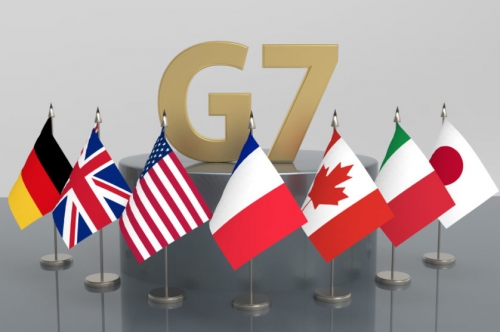
Et maintenant, les atlantistes copient la route de la soie chinoise. Aux frais des contribuables
Adele Piazza
Source: https://electomagazine.it/e-ora-gli-atlantisti-copiano-la...
D'ici à 2027, les pays du G7 investiront 600 milliards dans plusieurs "projets révolutionnaires visant à combler le manque d'infrastructures dans les pays en développement, à renforcer l'économie et les chaînes d'approvisionnement mondiales et à promouvoir la sécurité nationale des États-Unis", a annoncé M. Biden, soulignant que les États-Unis contribueront à hauteur de 200 milliards au "Partenariat pour les infrastructures et les investissements mondiaux". Les États-Unis ont déjà révélé certains projets : une centrale photovoltaïque en Angola, une usine de production de vaccins au Sénégal et un câble de télécommunications sous-marin de 1000 miles qui reliera Singapour à la France via l'Égypte et la Corne de l'Afrique. Ensuite, il y a un projet intéressant de fermeture des centrales électriques au charbon en Afrique du Sud, sur lequel l'Allemagne semble miser.
L'opération américaine visant à défier Pékin, qui est également coupable de continuer à soutenir la Russie dans sa guerre contre l'Ukraine en achetant son pétrole, ne s'arrête pas à l'Allemagne. Dans le plan stratégique qui sera lancé à l'issue du sommet de l'OTAN à Madrid fin juin, la Chine et ses défis seront pour la première fois mentionnés comme une source de préoccupation. L'initiative "Belt & Road", en effet, envisage l'intégration logistique des pays du Moyen-Orient et de l'Asie occidentale, avec des investissements destinés à la croissance économique et sociale des pays situés le long des routes commerciales, créant ainsi une synergie qui profiterait à beaucoup. L'évolution des sanctions contre la Russie permettra de comprendre où se concentrera la demande énergétique européenne, dont les besoins étaient jusqu'à présent strictement dépendants des importations en provenance de Moscou. Il s'agit d'une situation dangereuse, qui voit la Chine se rapprocher de plus en plus de la Russie et s'éloigner de plus en plus du bloc atlantique, tandis que l'Europe doit trouver d'urgence de nouveaux partenaires commerciaux. Biden invite les pays européens à revoir leurs échanges avec Moscou, mais ne les force pas à y renoncer, sachant pertinemment que le chemin vers l'autosuffisance énergétique européenne est - contrairement à celui des États-Unis - encore long et plein d'embûches.
L'initiative "Belt and Road", ou les "nouvelles routes de la soie", est la grande aspiration de la Chine pour relier Pékin à l'Europe, à la Russie, au Moyen-Orient, en passant par l'Asie centrale et l'Asie du Sud-Est. Un réseau de routes, de liaisons terrestres et maritimes qui permettra à la grande puissance commerciale asiatique de renforcer les échanges avec ses voisins et avec de nouveaux et anciens partenaires économiques.
À la méfiance qui existait déjà à l'égard de Pékin de la part des États-Unis, s'ajoutent les craintes croissantes d'une éventuelle entente avec la Russie concernant la guerre en Europe, et l'occupation de Taïwan en mer de Chine méridionale. Avec un Occident en difficulté, aux prises avec une guerre aux portes, des prix des matières premières qui montent en flèche, et des coronavirus pas encore définitivement vaincus, la situation n'est pas des meilleures.
Même les pays hostiles à l'expansionnisme chinois, comme l'Inde, l'Australie, le Vietnam, la Corée du Sud, les Philippines et, surtout, Taïwan - de plus en plus inquiets des incursions chinoises continues dans leur espace aérien - ne voient pas d'un bon œil un tel expansionnisme commercial, tout en sachant qu'il leur apporterait à eux aussi des avantages économiques considérables.
Les Chinois seront gênés dans leurs relations avec la Russie, "des relations qui ne peuvent pas revenir à ce qu'elles étaient avant la guerre en Ukraine", a déclaré le chancelier allemand Olaf Scholz aux journalistes lors du G7 à Elmau. Scholz, a confirmé que ce qui s'est passé en Ukraine représente un "point de rupture dans les relations internationales", et a accusé le gouvernement russe de rompre tous les accords de coopération internationale.
17:02 Publié dans Actualité, Affaires européennes, Géopolitique | Lien permanent | Commentaires (0) | Tags : g7, route de la soie, belt and road, chine, europe, états-unis, affaires européennes, affaires asiatiques, géopolitique, politique internationale |  |
|  del.icio.us |
del.icio.us |  |
|  Digg |
Digg | ![]() Facebook
Facebook
mardi, 28 juin 2022
La Cour Suprême des États-Unis contre l'idéologie du progrès

La Cour Suprême des États-Unis contre l'idéologie du progrès
Alexandre Douguine
Source: https://www.geopolitika.ru/en/article/united-states-court-against-ideology-progress?fbclid=IwAR1DdDGPQhtF3ij6E89l0C-xCgdRvheL7seYQvmxFChCvttMAxgu1Vt1lOs
La nouvelle n°1 dans le monde aujourd'hui n'est pas 'Opération militaire spéciale de la Russie ou l'effondrement de l'économie occidentale, mais la décision de la Cour suprême des États-Unis de réviser l'arrêt Roe-Wade de 1973 et d'annuler les garanties constitutionnelles au droit d'interrompre une grossesse. Désormais, la question de l'avortement a été déplacée au niveau de chaque État, et immédiatement le procureur général du Missouri, Eric Schmitt, a annoncé la décision d'interdire l'avortement. Cela a fait l'effet d'une décharge électrique aux États-Unis et toute la clique mondialiste de cet État hégémonique, ayant encaissé un tel coup, s'est précipitée dans les rues avec des hurlements, des rugissements et une envie incontrôlable de brûler des voitures et de piller des magasins. À mon avis, la situation est très grave.

Le fait est que la seule branche du gouvernement américain qui ne s'est pas encore discréditée était jusqu'à récemment les tribunaux. Leur autorité était considérée comme incontestable par toutes les forces politiques. On pense que la corruption et le lobbying idéologique au sein du pouvoir judiciaire n'ont pas réussi à prendre le contrôle total. Et maintenant, les juges nommés sous Trump ont agi. Tout ceci nécessite de notre part une réflexion très sérieuse.
Le fait est qu'il n'y a pas seulement un État américain sur le territoire des USA, mais deux pays et deux nations portant ce nom et cela devient de plus en plus évident. Il ne s'agit même pas d'une question de clivage entre républicains et démocrates, dont l'opposition devient de plus en plus âpre. C'est le fait qu'il existe une division plus profonde encore dans la société américaine.
La moitié de la population américaine est partisane du pragmatisme. Cela signifie que pour eux, il n'y a qu'un seul critère: ça marche ou ça ne marche pas, ça marche/ça ne marche pas. C'est tout. Et pas de dogme ni sur le sujet ni sur l'objet. Chacun peut se voir comme il le veut, y compris se prendre pour Elvis Presley ou pour le Père Noël, et si cela fonctionne, personne n'osera s'y opposer. Il en va de même avec le monde extérieur: il n'y a pas de lois inviolables, faites ce que vous voulez avec le monde extérieur, mais s'il réagit durement, c'est votre problème. Il n'y a pas d'entités, seulement des interactions. C'est la base de l'identité américaine, c'est la façon dont les Américains eux-mêmes ont traditionnellement compris le libéralisme: comme la liberté de penser ce que vous voulez, de croire ce que vous voulez et de vous comporter comme vous voulez. Bien sûr, en cas de conflit, la liberté de l'un est limitée par la liberté de l'autre, mais sans essayer, vous ne pouvez pas savoir où se trouve la fine ligne à ne pas transgresser. Essayez, peut-être cela fonctionnera-t-il.
C'est ainsi que la société américaine a été jusqu'à un certain point sur la ligne du temps. Ici, interdire l'avortement, là, autoriser l'avortement, ici, changer de sexe, là, punir le changement de sexe, organiser des parades gay ou des parades néo-nazies, tout était possible, rien ne se refusait d'emblée, la décision pouvait être n'importe quoi, et les tribunaux, s'appuyant sur une multitude de critères, de précédents et de considérations imprévisibles, étaient le dernier recours pour décider, dans les cas problématiques, de ce qui fonctionne/ne fonctionne pas. C'est le côté mystérieux des Américains, complètement incompris des Européens, et aussi la clé de leur succès: ils n'ont pas de limites, ce qui signifie qu'ils vont où ils veulent jusqu'à ce que quelqu'un les arrête, et c'est exactement ce qui fonctionne.
Mais dans l'élite américaine, qui est composée de personnes issues de milieux très divers, s'est accumulé à un moment donné un nombre critique de non-américains. Il s'agit principalement d'Européens, souvent originaires de Russie. Beaucoup sont ethniquement juifs mais imprégnés de principes et de codes culturels européens ou russo-soviétiques. Ils ont apporté une culture et une philosophie différentes aux États-Unis. Ils n'ont pas du tout compris ou accepté le pragmatisme américain, ne le considérant que comme une toile de fond pour leur propre avancement. En d'autres termes, ils ont profité des opportunités américaines, mais n'avaient pas l'intention d'adopter une logique libertaire sans rapport avec une quelconque allusion au totalitarisme. En réalité, ce sont ces élites étrangères qui ont détourné la vieille démocratie américaine. Ce sont elles qui ont pris la tête des structures mondialistes et qui ont progressivement pris le pouvoir aux États-Unis.
Ces élites, souvent de gauche, parfois ouvertement trotskistes, ont apporté avec elles une position profondément étrangère à l'esprit américain : la croyance en un progrès linéaire. Le progressisme et le pragmatisme sont incompatibles. Si le progrès fonctionne, tant mieux. Sinon, il faut l'abandonner. Voici la loi du pragmatisme : ça marche/ça ne marche pas. Si vous voulez avancer, avancez, si vous voulez le contraire, pas de problème, c'est la liberté à l'américaine.
Cependant, les émigrants de l'Ancien Monde ont apporté avec eux des attitudes très différentes. Pour eux, le progrès était un dogme. Toute l'histoire était vue comme une amélioration continue, comme un processus continu d'émancipation, d'amélioration, de développement et d'accumulation de connaissances. Le progrès était une philosophie et une religion. Au nom du progrès, qui incluait une augmentation continue des libertés individuelles, le développement technique et l'abolition des traditions et des tabous, tout était possible et nécessaire, et il n'importait plus que cela fonctionne ou non. Ce qui comptait, c'était le progrès.

Cela représentait toutefois une interprétation totalement nouvelle du libéralisme pour la tradition américaine. L'ancien libéralisme soutenait la position suivante: personne ne peut jamais rien m'imposer. Le nouveau libéralisme répondait: imposons une culture de l'abolition, de la honte de soi, de l'élimination totale des vieilles habitudes, de la possibilité de changer de sexe, de la liberté de disposer du fœtus humain (pro-choice), de l'égalité des droits pour les femmes et les races n'était plus seulement une possibilité, c'était devenu une nécessité. L'ancien libéralisme disait : sois ce que tu veux, du moment que ça marche. Le nouveau libéralisme a répondu : vous n'avez pas le droit de ne pas être un libéral. Si vous n'êtes pas un progressiste, vous êtes un nazi et devez être détruit. Tout doit être sacrifié au nom de la liberté, des LGBT+, des transgenres et de l'intelligence artificielle.
Le conflit entre les deux sociétés - l'ancienne société libertaire et pragmatique et la nouvelle société néolibérale et progressiste - n'a cessé de s'intensifier au cours des dernières décennies et a culminé avec la présidence de Trump. Trump a incarné une Amérique et ses adversaires démocratiques mondialistes une autre. La guerre civile des philosophies a atteint un point critique. Et il s'agit en réalité d'une question d'interprétation de la liberté. La vieille Amérique voit la liberté individuelle comme celle qui exclut toute prescription extérieure, toute demande de l'utiliser seulement de cette façon et pas d'une autre, seulement pour ceci et rien d'autre. Seulement pour l'avortement et la gay pride, par exemple, et jamais pour interdire l'avortement ou diaboliser les pervers. La Nouvelle Amérique, en revanche, insiste sur le fait que la liberté exige la violence contre ceux qui ne la comprennent pas assez bien. Ce qui signifie que la liberté doit avoir une interprétation normative et que c'est aux néo-libéraux eux-mêmes de déterminer comment et pour qui ils l'utilisent et comment ils l'interprètent. L'ancien libéralisme est libertaire. Le nouveau est carrément totalitaire.
Et c'est dans ce contexte qu'il faut considérer la décision de la Cour suprême américaine de 1973 sur l'avortement Roe vs. Wade. Elle est en faveur de l'ancien libéralisme et du pragmatisme. Notez qu'elle n'interdit pas l'avortement, mais déclare simplement qu'il n'y a pas de solution claire au niveau de la loi fédérale. Les États peuvent résoudre le problème comme ils le souhaitent, mais cela signifie, ni plus ni moins, que le temps est réversible. Vous pouvez aller dans une direction, progressiste, ou vous pouvez aller dans la direction opposée. Tant que cela fonctionne. Il ne s'agit donc pas du tout d'avortement. Il s'agit de comprendre la notion du temps, à laquelle se réfèrent les uns et les autres. Il s'agit des divisions les plus profondes de la société américaine. Il s'agit d'une Amérique qui entre en guerre contre une autre Amérique de plus en plus ouvertement.
La Cour suprême est en train de renverser la stratégie dictatoriale totalitaire des élites mondialistes néo-libérales, qui agissent - un peu comme les bolcheviks en Russie - au nom de l'avenir. Le progrès justifie tout. Jusqu'alors, toutes les décisions n'allaient que dans un sens: en faveur de l'individualisme, de l'égocentrisme et de l'hédonisme, et soudain la Cour suprême fait un brusque retour en arrière. Pourquoi, a-t-elle été autorisée à le faire ? Et les vieux Américains presque désespérés, les pragmatiques et les libertaires se réjouissent: la liberté de faire ce que l'on veut, pas ce que disent les progressistes et les technocrates, d'aller dans n'importe quelle direction, pas seulement là où les mondialistes nous envoient de force, a de nouveau triomphé, et le courageux procureur général du Missouri a déjà montré ce qu'il est possible de faire. Bravo ! C'est une révolution pragmatique, une révolution conservatrice à l'américaine.
Bien sûr, toutes les conneries progressistes mondialistes sont sur le point de tomber à l'eau. La vieille Amérique a en quelque sorte contre-attaqué et affronté la nouvelle Amérique.
"Si le royaume de la loi est divisé en lui-même, il sombrera à coup sûr dans la désolation". Matthieu 12:25 Mieux vaut tôt que tard....
19:07 Publié dans Actualité | Lien permanent | Commentaires (0) | Tags : actualité, états-unis, alexandre douguine, cout suprême des états-unis, avortement |  |
|  del.icio.us |
del.icio.us |  |
|  Digg |
Digg | ![]() Facebook
Facebook
Le fil de l'histoire de l'hégémonie libérale

Le fil de l'histoire de l'hégémonie libérale
Raphael Machado
Source: https://novaresistencia.org/2022/06/20/o-fio-da-historia-da-hegemonia-liberal/
Nous sommes dans une ère de transformations mondiales. Comme à chaque époque de transition, il est même possible de choisir une date comme jalon dans le passage d'une période à l'autre, mais le monde réel est toujours beaucoup plus graduel, tout en nuances de gris. L'époque actuelle se caractérise par l'affaiblissement et le recul de l'idéologie hégémonique (le libéralisme postmoderne) dans toutes ses dimensions.
Les diverses dimensions du libéralisme reculent toutefois à des rythmes différents selon la région de la planète, de sorte que nous ne pouvons obtenir une image complète qu'en examinant l'ensemble du spectre thématique. Une nouvelle ère commence maintenant, mais tout comme l'ère médiévale s'est fait sentir dans une grande partie de l'Europe jusqu'au 19ème (ou même au début du 20ème) siècle, nous passerons encore un certain temps (des décennies, peut-être plus d'un siècle) à combattre le libéralisme qui continue à s'accrocher aux peuples du monde.
Mais examinons les tendances par domaine :
Domaine spirituel : Toutes les statistiques indiquent un recul de l'athéisme et de l'irréligiosité dans la plupart des régions du monde, à l'exception de certaines parties de l'Occident. Dans ces régions, alors que l'on observe un déclin général des effectifs chrétiens, les groupes chrétiens traditionalistes vont dans la direction opposée et affichent une tendance à la hausse. Il est intéressant de noter que ce déclin mondial de l'athéisme n'est pas le résultat de la croissance d'une seule religion spécifique, mais d'une myriade de traditions spirituelles. Même en Chine, on constate une croissance de la religiosité;
Domaine politique : La croissance et l'expansion de la démocratie libérale à travers la planète semblent avoir été stoppées. Au contraire, le Myanmar, le Mali et l'Afghanistan indiquent un renversement de la marche démo-libérale. Même les pays envahis n'ont pas réussi à consolider les régimes libéraux et reviennent à des variations politiques militaristes, autocratiques ou même tribales. Même des pays d'importance mondiale comme la Russie commencent à se distancer de plus en plus de la coquille démo-libérale. La tendance semble être la croissance des modèles césaristes de démocratie et des mouvements populistes;
Domaine géopolitique : Les États-Unis ont perdu leur capacité à imposer unilatéralement leur volonté sur la planète. Les institutions centrées sur l'Occident sont de plus en plus remises en question dans une crise qui s'est accélérée depuis la pandémie et a atteint son apogée avec l'opération spéciale militaire. Les coalitions alternatives comme les BRICS, l'OCX, l'OTSC gagnent en importance. Les liens occidentaux s'affaiblissent et même les pays qui ont été occupés par les États-Unis pendant des décennies commencent à prendre leurs distances avec l'atlantisme;
Domaine économique : les dogmes du marché libre n'ont jamais été autant remis en question. À l'exception de quelques pays, les processus de privatisation commencent à être inversés. Les mesures protectionnistes, les programmes de travaux publics et les investissements dans les infrastructures reviennent sur la table dans presque toutes les régions de la planète. La pandémie a accéléré la tendance à se concentrer sur des chaînes de production plus courtes et continentalisées. Aucun modèle unique ne remplacera le libéralisme économique, les pays semblent se diriger vers des modèles mixtes tels que le capitalisme d'État, le socialisme de marché, le dirigisme et d'autres formes alternatives mêlant socialisme, coopérativisme, étatisme et mécanismes de marché;
Domaine culturel : Le progressisme, confiant dans son triomphe, a décidé d'accélérer et de radicaliser tous ses agendas, soutenu par les grandes entreprises, les médias de masse, les ONG et certains gouvernements. Malgré l'essor du discours postmoderne, l'Occident n'a pas réussi à étendre ses tentacules culturelles à travers la planète et une grande partie de l'humanité reste encore épargnée par ce discours. Pendant ce temps, même à l'Ouest, en Europe et en Amérique ibérique, les tendances conservatrices et patriotiques semblent croître ou se consolider.
En bref, nous sommes dans une ère de transition et, évidemment, le choix d'un jalon chronologique symbolique a toujours quelque chose d'arbitraire. Mais non, le monde ne reviendra pas à ce qu'il était il y a 5 ans.
18:27 Publié dans Actualité | Lien permanent | Commentaires (0) | Tags : actualité, libéralisme, hégémonie libérale, idéologie |  |
|  del.icio.us |
del.icio.us |  |
|  Digg |
Digg | ![]() Facebook
Facebook
lundi, 27 juin 2022
Nous sommes le Tiers-Monde - Un continent entre hédonisme et changement, entre anarchie et autoritarisme
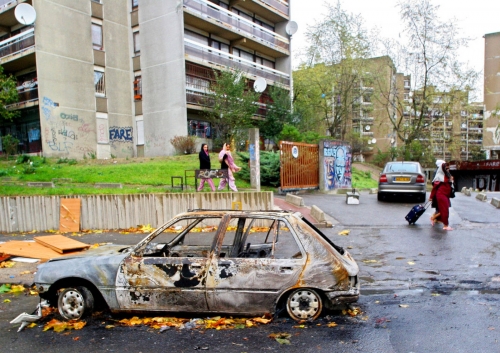
Nous sommes le Tiers-Monde
Un continent entre hédonisme et changement, entre anarchie et autoritarisme
par Andreas Mölzer
Source: https://andreasmoelzer.wordpress.com/2022/06/23/wir-sind-...
Le projet d'une Europe unie était sans aucun doute la conséquence des conclusions auxquelles les peuples européens et leurs élites étaient parvenus après deux guerres mondiales désastreuses. Et la promesse de l'intégration européenne visait donc la paix, la liberté et la prospérité. Et en effet, sur une longue période et dans de nombreuses régions du continent, ce projet européen a effectivement réussi à instaurer la paix, à garantir la liberté et à développer la prospérité. D'abord dans la partie occidentale de l'Europe, puis, après l'effondrement du communisme soviétique, dans une grande partie de l'Europe de l'Est. Après des décennies de totalitarisme qui, sous la forme du nazisme et du fascisme, avait opprimé une grande partie de l'Europe centrale, méridionale et occidentale, et après le socialisme réel du système soviétique qui avait asservi les peuples d'Europe de l'Est, les prémisses démocratiques qui étaient et sont nécessaires à l'adhésion à l'UE ont effectivement apporté la liberté.
Après la fin de la confrontation entre les superpuissances, c'est vraiment la paix qui a été instaurée par le projet d'unification européenne. Quant à la prospérité, elle existait déjà dans la partie occidentale de l'Europe depuis les années du miracle économique, c'est-à-dire depuis l'après-guerre, et elle est devenue une perspective bien réelle pour la partie orientale de l'Europe. Les milliards versés et les transferts effectués via Bruxelles ont au moins partiellement tenu cette promesse.
Cependant, des divergences de vues fondamentales sur l'objectif de l'intégration ont également créé des différences massives au cours de cette phase de la réussite européenne. Les uns voulaient les "États-Unis d'Europe", ce que le centralisme bruxellois avait pour objectif d'embellir, les autres rêvaient d'une "Europe des patries" dans laquelle ils pourraient développer librement leur identité nationale et la souveraineté de leurs États.
Les nations de l'Europe de l'Est, en particulier, qui avaient souffert pendant des décennies sous le joug du communisme, pensaient désormais pouvoir vivre dans le cadre de l'Europe unie leur souveraineté et leur culture nationale sans être influencées de l'extérieur. Mais cela n'était guère compatible avec le centralisme bruxellois, raison pour laquelle les pays dits de Visegrád ont rapidement été discrédités au siège de l'UE. Les procédures du traité de l'UE contre la Pologne et la Hongrie le montrent clairement. Seule la guerre d'agression menée actuellement par la Russie contre l'Ukraine et, par conséquent, le danger supposé que courent les pays de l'Est de l'UE qui faisaient autrefois partie du Pacte de Varsovie, occultent actuellement cet antagonisme entre les membres de l'Est de l'UE et le siège central de Bruxelles.
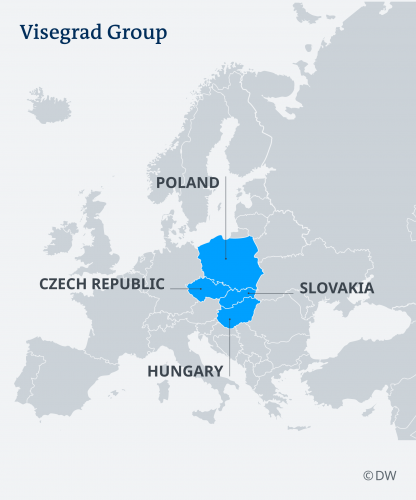
En ce qui concerne la promesse de liberté au sein de l'Union européenne, les années de la pandémie du coronavirus ont montré à quel point les droits des citoyens pouvaient être rapidement restreints et ce, de manière absolument fondamentale. Et les mesures envisagées pour la protection du climat, hissées depuis longtemps au rang d'une religion civile, laissent entrevoir le risque de restrictions encore bien plus importantes pour les libertés civiles. Cela signifie ni plus ni moins que la grande promesse de liberté de l'Union européenne est devenue plutôt creuse. Au fond, la participation démocratique, tant au siège de Bruxelles que dans de nombreux États membres de l'Union, n'est pas mieux lotie que dans certains États du tiers monde dirigés de manière autocratique. Quant à la promesse de paix de l'intégration européenne, la guerre actuelle en Ukraine n'est pas la seule à nous montrer à quel point elle peut s'évaporer rapidement.
Mais la paix intérieure au sein de l'Union et de la plupart des États membres est également fortement menacée depuis longtemps. C'est en premier lieu l'immigration massive et incontrôlée de réfugiés pauvres du tiers monde qui a transformé depuis longtemps les systèmes sociaux des États de l'UE en une société où s'additionnent les conflits et se multiplient les ghettos. Cette évolution, autrefois définie par euphémisme comme une société multiculturelle, pourrait, dans des cas extrêmes, dégénérer en situations de guerre civile. Les récents événements du lac de Garde en Italie et la situation dans les banlieues des grandes villes européennes comme Paris et Londres en sont la preuve. Les valeurs civilisationnelles qui étaient courantes en Europe ne comptent plus guère ici. D'une part, la charia islamique règne, d'autre part, c'est l'anarchie totale. Il n'est plus guère question d'intégration pour la masse des migrants, c'est plutôt la population autochtone qui doit s'adapter aux migrants dans les diverses sociétés parallèles.
A cela s'ajoute désormais l'ère de la paupérisation à grande échelle au sein de la société européenne, qui s'annonce depuis des années. Dans les classes de revenus inférieurs, qui dépendent des transferts publics, l'inflation qui s'abat désormais sur tous les pays de l'UE conduit effectivement à la misère. Les mesures gouvernementales telles que le plafonnement des prix et les aides financières risquent de s'avérer plus ou moins inefficaces pour lutter contre la pauvreté. Le chômage et la réticence à travailler, qui ont été renforcés par les comportements nouveaux nés lors de la période Corona, contribuent en réalité à cet appauvrissement de larges couches de la population. Mais outre les classes à bas revenus, c'est aussi la classe moyenne qui est menacée par cet appauvrissement. Les économies sont largement détruites par l'inflation, les professions libérales et les petits entrepreneurs sont mis à mal. Et les perspectives pour les jeunes générations de se constituer leur propre patrimoine sont proches de zéro.
L'Europe risque donc de passer du statut de continent prospère à celui de perdant de la prospérité au 21e siècle. Les promesses de l'"European way of life" ne valent donc plus grand-chose. Elles suffisent tout juste à ce que l'Europe demeure la destination des migrations de masse venues du monde entier. Certes, d'autres régions de la planète seraient depuis longtemps plus attrayantes, comme les États-Unis d'Amérique ou certains États d'Asie de l'Est, mais ceux-ci ont des lois migratoires bien plus dures que l'Union européenne et sont donc largement exclues de cette migration de masse. Insidieusement, mais de manière indéniable, de nombreux États membres de l'UE, mais aussi leurs systèmes économiques et les différents systèmes sociaux, prennent la forme de pays du tiers-monde. Si l'immigration se poursuit, les systèmes sociaux ne pourront plus être financés, les systèmes de santé s'effondreront ou seront au moins modifiés dans le sens d'une médecine à plusieurs vitesses. Les établissements d'enseignement risquent d'être endommagés par un nivellement qualitatif croissant, et les capacités d'innovation technologique s'affaibliront.
Enfin, l'appauvrissement ne concernera pas seulement la situation matérielle et économique de la population, mais aussi la vie intellectuelle et la culture. La haute culture des différents peuples européens a déjà souffert dans le passé de la mondialisation et du centralisme européen. Elle est désormais complètement détruite par la culture quotidienne triviale de la société générée par le bobo électronique et par notre société du tout-jetable. En fin de compte, l'Europe risque de devenir un "failed state", un État défaillant, absolument insignifiant sur le plan de la politique étrangère et ne jouant aucun rôle dans les questions de pouvoir au niveau mondial, et d'autre part marqué à l'intérieur par le déclin socio-économique, l'insignifiance culturelle et l'anarchie. Une telle Europe ferait partie intégrante du tiers-monde et ne répondrait plus du tout à la promesse initiale de liberté et de prospérité de l'intégration européenne. Les apologistes de la légendaire "culture de l'accueil" et du politiquement correct pourraient alors affirmer à juste titre: nous sommes l'Afrique.
14:17 Publié dans Actualité, Affaires européennes | Lien permanent | Commentaires (0) | Tags : andreas mölzer, europe, affaires européennes, tiers-mondisation, convergence des catastrophes |  |
|  del.icio.us |
del.icio.us |  |
|  Digg |
Digg | ![]() Facebook
Facebook



